
កម្ពុជាដកចេញវិធានការសុខាភិបាលមួយចំនួនទៀត សម្រាប់ជនបរទេស ដែលចូលមកប្រទេសកម្ពុជា (មិនតម្រូវឱ្យបង្ហាញសេចក្ដីប្រកាសសុខភាព ឬវិញ្ញាបនបត្រវ៉ាក់សាំង) ។

សេចក្តីជូនដំណឹងស្តីពីការកែសម្រួលលក្ខខណ្ឌតម្រូវចំពោះអ្នកធ្វើដំណើរចូលប្រទេសកម្ពុជា។

ការកែសម្រួលលក្ខខណ្ឌធ្វើចត្តាឡីស័ក សម្រាប់អ្នកដំណើរបរទេស ដែលមិនទាន់បានចាក់វ៉ាក់សាំងបង្ការជំងឺកូវីដ-១៩ ចូលមកកម្ពុជា ពី ១៤ថ្ងៃ មកត្រឹមតែ ៧ថ្ងៃ ប៉ុណ្ណោះ។

សេចក្តីប្រកាសព័ត៌មានស្តីពីការកែសំរួលការធ្វើដំណើរចូលកម្ពុជា របស់រាជរដ្ឋាភិបាល។

សេចក្តីជូនដំណឹងស្តីពីការដកបំរាមការធ្វើដំណើរចូលកម្ពុជារបស់ប្រទេសអាហ្វ្រិកចំនួន ១០ និងជំនួសមកនូវវិធានការសុខាភិបាលមួយចំនួន។

សេចក្តីជូនដំណឹងស្តីពីការផ្អាកការធ្វើដំណើរចូលកម្ពុជារបស់ប្រទេសអាហ្វ្រិកចំនួន ១០។

THE NEW TRAVEL CONDITIONS AND THE IMPLEMENTATION OF HEALTH AND TOURISM SAFETY MEASURES FOR TRAVELLERS ENTERING CAMBODIA IN THE CONTEXT OF “A NEW NORMAL” .

Permission for fully vaccinated tourists and travelers entering to the Kingdom of Cambodia without quarantine.

We’re sorry, this site is currently experiencing technical difficulties. Please try again in a few moments. Exception: request blocked
- Culture - Sports
- Environment
- Destinations
- Media Center Mega Story Infographics Photos Videos Podcast
- Ho Chi Minh City

Cambodia drops quarantine requirement for unvaccinated foreign visitors

Related News
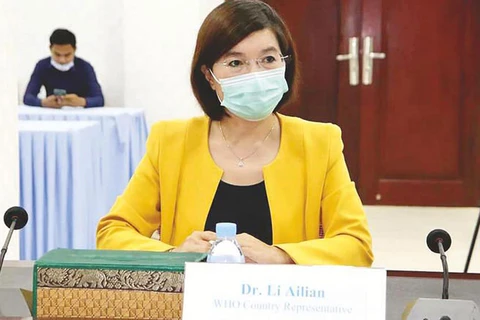
WHO praises Cambodia’s COVID-19 vaccination programme
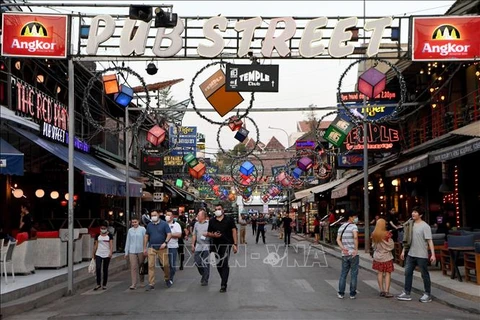
Border opening boost tourism among Cambodia, Thailand, Vietnam
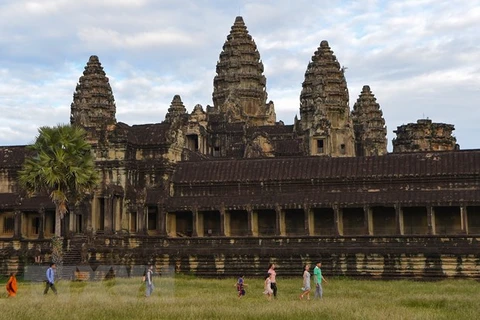
Cambodia sees strong rise in tourist number
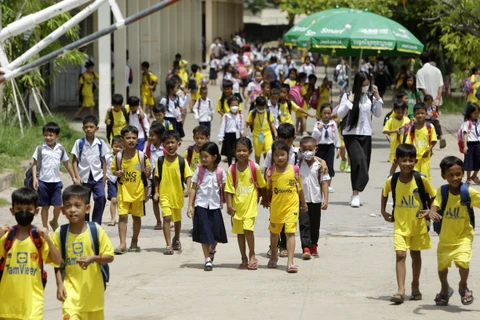
Cambodia announces COVID-free state
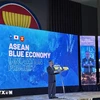
ASEAN Blue Economy Innovation marine protection project launched

Indonesia to host AFF U16, U19 Championships 2024
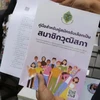
Thailand’s election commission sets date for Senate race applications

Singapore promotes new mindset in public communications

Thai government wants to sell 10-year-old rice
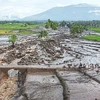
Death toll from floods in Indonesia continues to rise
Laos approves feasibility study of floating solar farm.
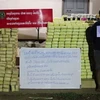
Laos raids big drug trafficking case

Jakarta builds one of global largest waste processing facilities

Indonesia needs over 31 tonnes of rice in 2024
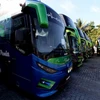
Thai tourist buses allowed to enter Malaysia
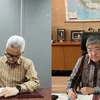
Japan supports Indonesia to build high-speed rail line in capital

Singapore’s robot startups eye global market
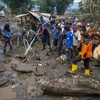
Indonesia urges residents to evacuate following flash floods
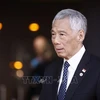
Singaporean PM submits resignation
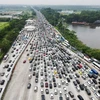
Indonesia increases traffic safety measures for tourism vehicles
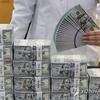
Malaysia, RoK renews currency swap deal
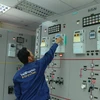
Laos urges consumers to conserve electricity

Malaysia pledges to boost energy connectivity
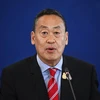
Thai agencies asked to ensure effective use of forest land

Cambodia Lifts the Travel Ban on People Arriving from Indonesia, Malaysia and the Philippines
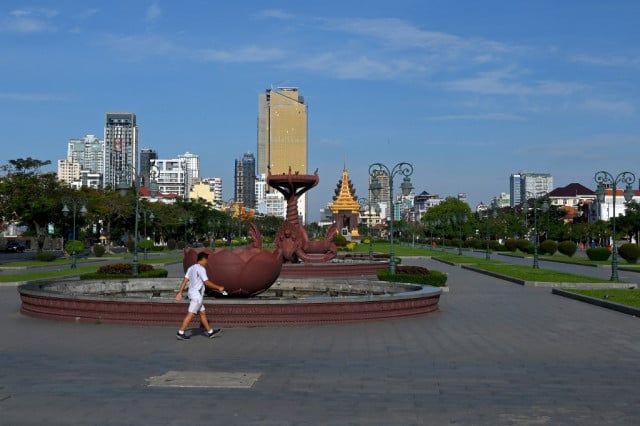
- By Sao Phal Niseiy
- October 24, 2021 3:38 PM
Meanwhile, the number of new COVID-19 cases in the country remains small while the vaccination campaign continues
PHNOM PENH--Cambodia has removed travel restrictions on passengers coming from three Southeast Asian countries as the authorities are gearing up to relaunch the economy.
In a statement issued on Oct. 23, Minister of Health Mam Bunheng said that, in line with the recommendations of Prime Minister Hun Sen, the ministry has decided to end the travel ban on passenger flights from Indonesia, Malaysia and the Philippines, which had been in place since August 2020.
Effective immediately, Dr. Bunheng said, “[this decision] is made in contribution to the gradual relaunch of economic and social activities in a new normal as well as to revive the air travel sector.”
The lifting of travel restrictions on flights from these three countries came a day after the prime minister signaled that the country would look into the possibility of a mutual quarantine-free plan with countries with low levels of COVID-19 transmission and high vaccination rates such as Indonesia, Malaysia and the Philippines.
Cambodia continues to see a decline in new COVID-19 cases
The country is gearing up to introduce its reopening plans in all sectors as the country is seeing a steady decline in new coronavirus cases.
On Oct. 24, the Ministry of Health reported that 128 new cases had been identified. Eleven patients passed away due to the disease, the ministry said in its release, adding that nine among them had not been vaccinated.
Meanwhile, 319 people have made a complete recovery and been discharged from hospital, the Ministry of Health said.
These latest cases have brought the total number of COVID-19 cases to 117,772 since the start of the pandemic in Cambodia, with 112,977 patients having recovered. The death toll due to the coronavirus stands at 2,734 persons.
In terms of vaccination, as of Oct. 23, some 13,658,227 million people from 6 years old on, that is, 85.36 percent of the estimated population of 16 million, had received at least their first dose of a COVID-19 vaccine. More than 12.9 million people have been fully vaccinated in Cambodia, while more than 1.6 million people have received their third, booster shot.
Related Articles
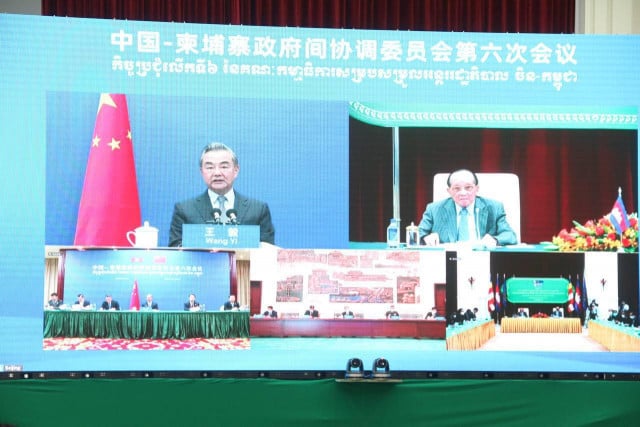
Cambodia Requests China to Keep on Importing its Rice
- July 18, 2022 4:41 PM
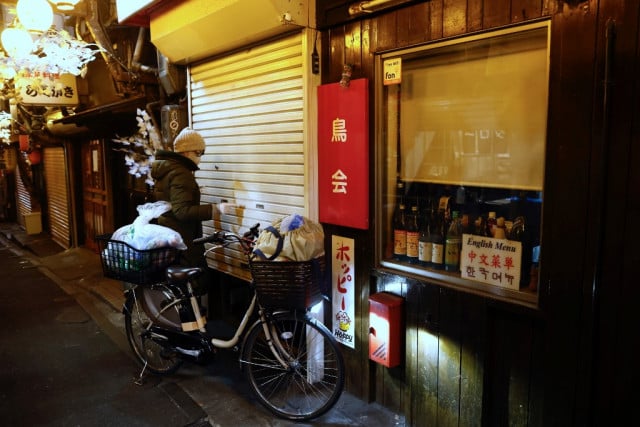
Pandemic reveals hidden poverty in wealthy Japan
- January 19, 2021 4:05 AM
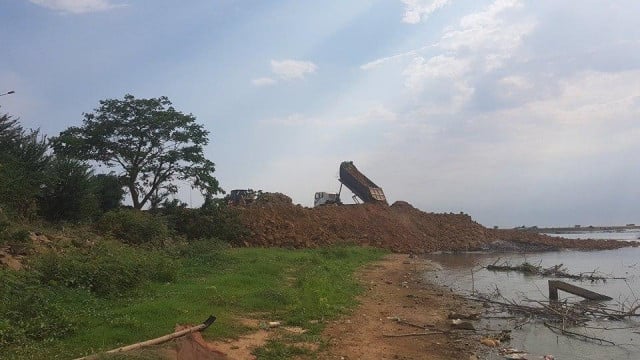
Boeung Tamok Lake to Lose 300 Hectares for Military Command...
- July 6, 2020 11:32 AM

More Popular

Opinion: Healthier Canals Mean Healthier Neighbourhoods
- November 21, 2024 3:00 PM
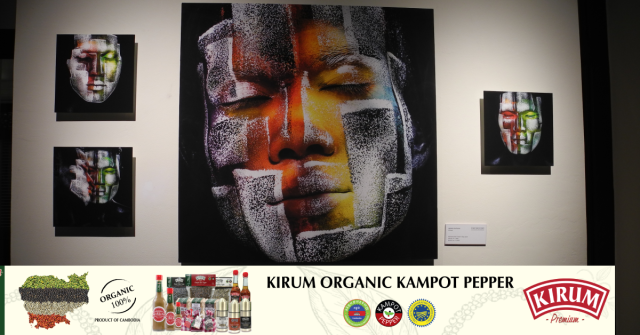
Reflecting People’s Souls through Hair Style and Makeup in P...

Geopolitics and Economy Pivotal in Russia-Cambodia Relations

Funan Techo Canal Benefits’ Overcome Impacts, Sun Chanthol S...

Let Me Talk to Suu Kyi, Hun Sen Urges Junta
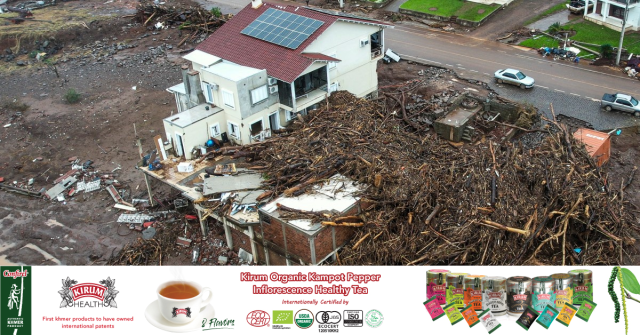
Brazil Authorities Warn of More Floods, Landslides as New Ra...
Cambodianess
- Environment
- The Weekly Dispatch
- Support The Daily

COVID-19: Cambodia lifts entry requirements
Foreigners who enter Cambodia are no longer required to show a health declaration or COVID-19 vaccination certificate upon arrival at land, sea and air entrances from October 3, reported the country’s Health Ministry.
The ministry required keeping remote temperature checkers at the entry and exit gates, as well as officers in charge at the border gates to check and give advice to passengers who have symptoms or patients.
The decision came after Cambodia had recorded only a few COVID-19 cases over the past days.
In full: https://en.vietnamplus.vn/covid19-cambodia-lifts-entry-requirements/239436.vnp
Related Stories
Sex app created by vietnamese in cambodia scams thousands out of $2m, china and cambodia to begin annual military exercise to strengthen cooperation, fight terrorism, extradition worries grow for convicted money launderer after deportation to cambodia, latest news, cambodia’s famed kampot pepper withers in scorching heatwave, cambodian opposition chief arrested after returning from japan, yoon, cambodian pm to hold summit in seoul this week.

The biggest news shaping Cambodia delivered to your inbox every Friday at 11:30am.
A top cambodian opposition politician is charged with inciting disorder for criticizing government, impacts of cambodia’s funan techo canal and implications for mekong cooperation, a cambodian court sentences a union leader to 18 months in prison for comments on facebook, cambodian plan for china-funded mekong canal worries hanoi, popular posts, cambodia’s ‘lords’ form union under hun sen ahead of polls, un chief implicitly criticizes cambodia’s upcoming elections after top opposition party ban, foreign ministry says anwar unaware of cambodian opposition figure’s entry, cambodia disqualifies main opposition party ahead of election, sea games 2023: it’s time to party, cambodia, popular categories.
- Business 3090
- Politics 2815
- Today’s Top News 1604
- Health 1366
- Lifestyle 1251
- In Brief 950
- Environment 944

The Cambodia Daily is an independent non-profit digital news service for Cambodia and Cambodians.
Contact us: editor at cambodiadaily dot com
© 2024 The Cambodia Daily LLC
- Support The Cambodia Daily
- Weekly Dispatch

Never see this again.
CAMBODIA – Cambodia Lifts Entry Requirements for International Travelers
After easing COVID-19 travel restrictions earlier this year, Cambodia has lifted even more of its requirements for international travelers. This news comes just a few days after Thailand ended the remainder of its COVID-19 restrictions.
Effective immediately, whether entering by air, land, or sea, tourists will no longer be required to provide vaccination cards or conduct any test before or after arrival. This also applies to nonvaccinated travelers making it easier than ever to visit the Kingdom of Wonder.
Read this article from the Khmer Times for all the details.
Interested in learning more about Cambodia? Get in touch with our sales team.
Explore more destination news

VIETNAM – My Village Performance

CAMBODIA – Shinta Mani Wild

VIETNAM – Anantara Quy Nhon Villas

VIETNAM – Anantara Hoi An Resort

VIETNAM – The Quintessence of Tonkin

CAMBODIA – Navutu Dreams

CAMBODIA – Sala Lodges

VIETNAM – Naman Retreat

LIKE WHAT YOU SEE?
Our Agent Hub provides an abundance of curated information for travel advisers that not only serves to enhance their offerings, but also gives them greater insight into the Southeast Asian travel industry. Inside are:
- Videos & images of Easia’s activities
- Sales & marketing collateral, brochures
- Factsheets for hotels and activities
- Destination and industry news updates
- Promotional offers only available to Easia clients
Already have an account with us? SIGN IN HERE
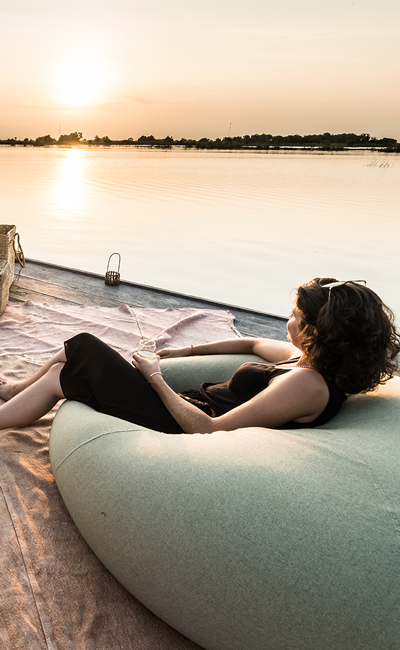
Welcome back, sign in to continue
Remember Me
Agent Login -->
No account yet! SIGN UP HERE
Logging in, you will have access to all the detailed factsheets of our products
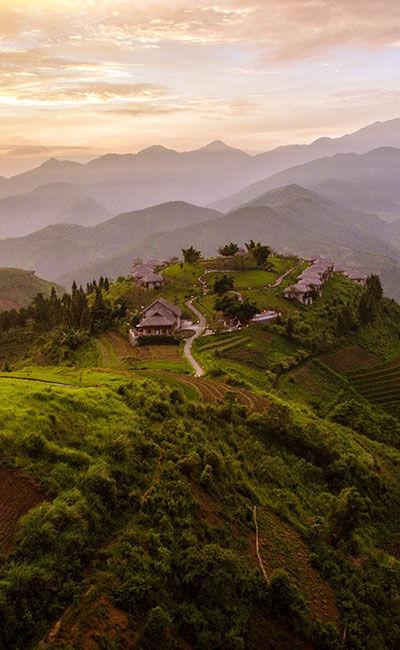
Welcome to Agent Hub by Easia Travel
Created with our partners in mind, within this private resource you will find a collection of easy-to-access, exclusive information that can’t be found on our public website.
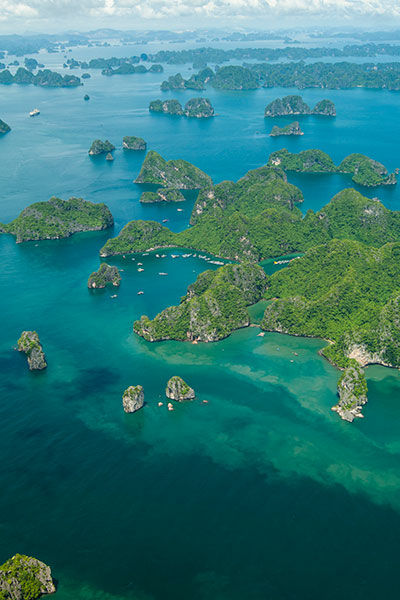
Registration
Tour operator Travel agency Incentive house Other
* obligatory fields
*By clicking “Sign Up”, I agree to Easia Travel’s Terms and Conditions, Privacy Policies . I also agree to let Easia Travel contact me about products and services I may like. I understand that I may opt out of this agreement by leaving the Easia Travel website at any time, as per the General Data Protection Regulation (GDPR)
Already a member? Sign in
Thank you for your registering on Agent Hub by Easia Travel! Your account is being reviewed. The request will be validated and confirmed within 24 hours. You will receive an email sent to your sign – in email when the request is approval.
If you already have an account, please enter your user name and password in the fields below to log in.
If you do not have an account, you can also create one or contact us for further information & assistance
Preferred Correspondence Language

Enquire Now
Please fill in the appropriate information below regarding enquiries. Our team of travel experts will get back to you shortly.
First Name *
Last Name *
Your Contact Number
Your Market * Australia & New Zealand Austria & Germany Belgium, Netherlands & Luxemburg Central & Eastern Europe Denmark, Norway & Sweden France Italy Spain, Portugal & Latin America UK & Ireland USA & Canada Other Markets
Company Name
Enquiry Details *
I am a Travel Advisor
Demande d’information
Veuillez renseigner les informations ci-dessous concernant votre demande. Notre équipe d’experts vous répondra sous peu.
Numéro de téléphone
Votre marché * Australia & New Zealand Austria & Germany Belgium, Netherlands & Luxemburg Central & Eastern Europe Denmark, Norway & Sweden France Italy Spain, Portugal & Latin America UK & Ireland USA & Canada Other Markets
Votre message *
Je suis un conseiller de voyage
Jetzt anfragen
Bitte füllen Sie unten die entsprechenden Informationen zu Ihrer Anfrage aus. Unser Team oder unsere Travel Experts werden Sie schnellstmöglich kontaktieren.
Ihre Kontaktnummer
Ihr Standort * Australia & New Zealand Austria & Germany Belgium, Netherlands & Luxemburg Central & Eastern Europe Denmark, Norway & Sweden France Italy Spain, Portugal & Latin America UK & Ireland USA & Canada Other Markets
Name des Unternehmens
Anfragedetails *
Ich bin ein Reiseberater
Domandate ora
Per favore compilate le seguenti informazioni, il nostro team di esperti vi contattera` il prima possibile.
Numero di cel
la tua posizione * Australia & New Zealand Austria & Germany Belgium, Netherlands & Luxemburg Central & Eastern Europe Denmark, Norway & Sweden France Italy Spain, Portugal & Latin America UK & Ireland USA & Canada Other Markets
Nome di azienda
Dettagli della richiesta *
Sono un consulente di viaggio
Preguntar Ahora
Por favor, complete la información apropiada abaja con respecto a las consultas. Nuestro equipo de expertos en viajes le responderá en breve.
Nombre de pila *
Número de contacto
tu ubicación * Australia & New Zealand Austria & Germany Belgium, Netherlands & Luxemburg Central & Eastern Europe Denmark, Norway & Sweden France Italy Spain, Portugal & Latin America UK & Ireland USA & Canada Other Markets
Nombre de empresa
Detalles de encuesta *
Soy un asesor de viajes
To ensure you have access to the most relevant information, please fill in the form below
Email Address *
Contact Number
Which destinations in Southeast Asia interest you & your clients?
What product types are you interested in.
Water Sport
Other Sports
All details provided by you will be held by Easia Travel and used in accordance with our Privacy Policy .
Sign Up for Our Newsletter
Stay up to date with our latest news and products

Sign Up For Our Newsletter
Easia Travel will use the information you provide on this form to be in touch with you and to provide Sales proposal, marketing material and news about our destinations and services. Please let us know all the ways you would like to hear from us:
You can change your mind at any time by clicking the unsubscribe link in the footer of any email you receive from us, or by contacting us at [email protected]. We will treat your information with respect. For more information about our privacy practices please visit our website. By clicking below, you agree that we may process your information in accordance with these terms.
We use Mailchimp as our marketing platform. By clicking below to subscribe, you acknowledge that your information will be transferred to Mailchimp for processing. Learn more about Mailchimp's privacy practices here.
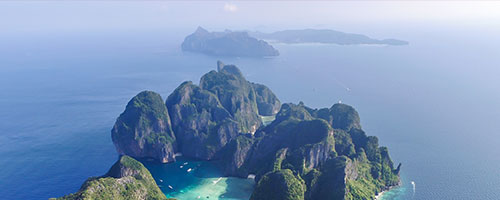
I am a Travel Advisor Easia-Travel would like to send you latest update news. To join our mailing list simply tick this box You can unsubscribe at any time.
By clicking “Sign Up”, I agree to Easia Terms and Conditions, Privacy Policy . I also agree to Easia Travel contact me about products and services I may like and I understand that I may opt out of Easia Travel website at any time follow General Data Protection Regulation (GDPR).

A Little Bit More About You
Please tell us about your customers and their travel trends, what travel experiences most interest you & your clients.
Active Honeymoon Group Travel
Incentive Art & Culture Solo Travel
Exclusive Gastronomy
Family Wellness Retreat
Beach Sustainability
Ask a question about:
Tell us a little bit more about your business and provide us with the details of your question below, and one of our travel experts will get back to you as soon as possible
Your Question *
Notifications
Accessibility links
- Skip to main content
- Skip to main Navigation
- Skip to Search

Cambodia Lifts Travel Ban on Six Countries Including the U.S.
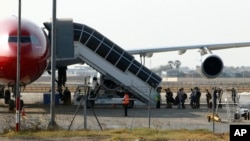
Cambodia on Wednesday lifted its travel ban on six countries, including the United States, nearly two months after the government first imposed restrictions on incoming travel due to concerns of the spread of COVID-19.
The six countries listed in the ministry’s statement released on May 20, 2020, are the United States, France, Germany, Italy, Spain and Iran. These countries were part of a travel ban issued in late March, even though at the time nearly all countries were reporting cases.
The government announced this weekend that all 122 patients with COVID-19 had recovered and that there were no new cases for more than 30 days.
“All passengers, both Cambodian and foreign, travelling to Cambodia are required to have a Covid-19 free health certificate issued by health authorities recognized by their respective countries within 72 hours,” the statement reads.
Foreigners are also required to have health insurance, with at least $50,000 in coverage. This requirement excluded embassy officials and international organization staffers who hold type A and type B visas.
On arrival, the statement added, all passengers will be transferred to a waiting center for COVID-19 testing and if they are cleared they will be asked to self-quarantine for 14 days.
The government never clarified if all citizens from these countries were prevented from entering Cambodia, irrespective their country of departure.

Kung Raiya Trial Completed in the Absence of Government Critic

ASEAN Bloc Fights Impulse to Hoard Medical Goods

HK Public Broadcaster Suspends Satirical Show After Government Reprimand
Cambodian spolight.
Update May 10, 2024
Information for u.s. citizens in the middle east.
- Travel Advisories |
- Contact Us |
- MyTravelGov |
Find U.S. Embassies & Consulates
Travel.state.gov, congressional liaison, special issuance agency, u.s. passports, international travel, intercountry adoption, international parental child abduction, records and authentications, popular links, travel advisories, mytravelgov, stay connected, legal resources, legal information, info for u.s. law enforcement, replace or certify documents.
Before You Go
Learn About Your Destination
While Abroad
Emergencies
Share this page:
Travel Advisory July 24, 2023
Cambodia - level 1: exercise normal precautions.
Reissued with obsolete COVID-19 page links removed.
Exercise normal precautions in Cambodia. Some areas have increased risks. Read the entire Travel Advisory.
Exercise increased precautions in:
- Phnom Penh due to crime.
- Very remote areas of Battambang, Banteay Meanchey, Pursat, Siem Reap, Pailin, and Kampong Thom provinces due to land mines.
Read the country information page for additional information on travel to Cambodia.
If you decide to travel to Cambodia:
- Enroll in the Smart Traveler Enrollment Program (STEP) to receive Alerts and make it easier to locate you in an emergency.
- Follow the Department of State on Facebook and Twitter .
- Review the Country Security Report for Cambodia.
· Visit the CDC page for the latest Travel Health Information related to your travel.
- Prepare a contingency plan for emergency situations. Review the Traveler’s Checklist .
Phnom Penh – Level 2: Exercise Increased Caution
Street crime, particularly phone and bag snatchings, occurs frequently in areas where foreigners gather; resistance can result in injury. Be aware of your surroundings at all times and to be extra vigilant when displaying items like jewelry, bags and cell phones in public. Violent crime, such as sexual assault and homicide, is common, sometimes against foreigners.
Do not physically resist any robbery attempt. Use caution when walking or driving at night.
Battambang, Banteay Meanchey, Pursat, Siem Reap, Pailin, and Kampong Thom provinces – Level 2: Exercise Increased Caution
Land mines and unexploded ordnance are found in very remote areas throughout Cambodia, and especially in Battambang, Banteay Meanchey, Pursat, Siem Reap, Pailin, and Kampong Thom provinces.
Do not touch unknown metal objects; instead notify the Cambodia Mine Action Center at 012-800-473/023-995-437. Use a local guide when walking in forested areas or dry rice paddies in these areas.
Embassy Messages
View Alerts and Messages Archive
Quick Facts
Six months.
One page is required per entry stamp; please note endorsement pages are not considered blank passport pages.
The import of local currency (Riel) is prohibited. When entering Cambodia foreign currency amounts over US $10,000 must be declared.
The export of local currency (Riel) is prohibited. Foreign currency can be taken out of the country up to the limit declared at customs on arrival.
Embassies and Consulates
U.s. embassy phnom penh.
#1, St. 96 (entrance on St. 51 between St. 96 and 102), Phnom Penh Telephone: 855-23-728-402, 051, or 234 Monday thru Friday 8:00 a.m. to 5:00 p.m. Emergency after-hours telephone: 855-23-728-000 Fax: 855-23-728-700 Email: [email protected] Facebook Twitter
Destination Description
Learn about the U.S. relationship to countries around the world.
Entry, Exit and Visa Requirements
Please visit the Embassy’s COVID-19 page for more information on entry/exit requirements related to COVID-19 in Cambodia.
You will need a valid passport and a Cambodian visa to enter Cambodia. Tourist and business visas are valid for one month from the date of entry into Cambodia. Cambodia offers on-line visa processing . You may also apply in person at the Cambodian Embassy located at 4530 16th Street NW, Washington, DC 20011, tel. 202-726-7742, fax 202-726-8381.
Tourists, diplomats, and business travelers may also obtain a Cambodian visa at the airports in Phnom Penh, Siem Reap, and at all major border crossings. Cambodian immigration officials at airports now collect fingerprints upon entry using an inkless, electronic process. You will need a passport valid for a minimum of six months beyond the date of entry into Cambodia.
If you remain in Cambodia beyond the date of your authorized stay, Cambodian immigration officials will likely impose a fine of $10 per day overstayed. In cases of excessive overstays, you may be arrested for violating immigration laws and detained as you undergo official deportation proceedings at your own expense. Deportation from Cambodia may result in your being prohibited from reentering Cambodia in the future. You should contact the nearest Cambodian embassy or consulate, or visit the Embassy of the Kingdom of Cambodia website for the most current visa information.
The U.S. Department of State is unaware of any HIV/AIDS entry restrictions for visitors to or foreign residents of Cambodia
Safety and Security
The Department of State is concerned that individuals and groups may be planning terrorist actions against U.S. citizens and interests, including at sites frequented by Westerners in Southeast Asia. Extremist groups in Southeast Asia have transnational capabilities to carry out attacks against locations where Westerners congregate. Although the extremist threat in Cambodia is considered low and terrorist attacks are not common, U.S. citizens residing in, or traveling to, Cambodia should exercise caution in clubs, discos, bars, restaurants, hotels, places of worship, schools, outdoor recreation venues, tourist areas, beach resorts, and other places frequented by foreigners. U.S. citizens should remain vigilant with regard to their personal security and avoid ongoing police enforcement actions, crowds, and demonstrations. See Department of State’s Worldwide Caution .
Land mines and unexploded ordnance are found in remote rural areas throughout Cambodia, and especially in Battambang, Banteay Meanchey, Pursat, Siem Reap, Kampong Thom, and Oddar Meanchey provinces. Travelers in these regions should never walk in forested areas or even in dry rice paddies without a local guide. Areas around small bridges on secondary roads are particularly dangerous. Travelers should not touch anything that resembles a mine or unexploded ordnance; they should notify the Cambodia Mine Action Center at 012-800-473/023-995-437.
Crime: Cambodia has a critical crime rate, including street crime. Military weapons and explosives are readily available to criminals despite authorities’ efforts to collect and destroy such weapons. Armed robberies occur frequently, and foreign residents and visitors, including U.S. citizens, are among the victims. The Embassy has also received reports that residences and hotel rooms of U.S. citizens in Phnom Penh were burglarized while the occupants were asleep.
The most common type of theft is “snatch and grab” robbery, and anything that can be quickly grabbed is at risk: cameras, jewelry, purses, backpacks, mobile phones, etc. Exercise caution and keep belongings out of sight if you travel via “tuk-tuk,” as passengers in these open-air vehicles have been targeted by thieves. If walking along the street, make yourself less of a target by carrying bags or items in your hand or on the shoulder that is furthest from the street. If someone attempts to rob you, you should surrender your valuables immediately, since any perceived resistance may be met with physical violence, including lethal force. The U.S. Embassy has received reports of violent robberies escalating into fatalities.
Pickpockets, some who are masquerading as beggars, are present in the markets and at the tourist sites. Sometimes they may act overly friendly, placing their hand on your shoulder or back to distract you in order to pick your pocket.
To avoid the risk of theft or confiscation of original documents, the U.S. Embassy advises its personnel and all U.S. citizens traveling to, or residing in, Cambodia to carry photocopies of their U.S. passport, driver's license, and other important documents and to leave the originals in a hotel safe or other secure place. The U.S. Embassy advises citizens not to give their passport as collateral for motorcycle rentals, hotels, etc. Local police rarely investigate reports of crime against tourists, and travelers should not expect to recover stolen items. It has also been reported that some police stations charge foreigners between $20 and $100 to file a police report.
Foreigners travelling to Cambodia should be aware of common scams targeting tourists, often involving card games. [MWP(P1] The Embassy has received reports of U.S. citizens being approached by individuals in public locations, such as popular shopping malls, and being invited to their homes where they end up participating in card games. These are often scams to steal tourists’ money. If you find yourself a victim of one of these scams, you should contact the U.S. Embassy.
Foreigners travelling to Cambodia should be aware of crime targeting tourists involving drugged drinks. The Embassy has received reports of U.S. citizens’ drinks being drugged at bars in order to incapacitate them for theft or sexual assault. Do not accept drinks from strangers and do not leave drinks unattended.
The U.S. Embassy advises citizens to be wary of scams involving individuals claiming they are in Cambodia and need financial assistance from the United States. The Embassy has determined that many of these requests are fraudulent and the individuals making the requests use false identities. In the past year, numerous confirmed media reports of large-scale scam operations have led to a crackdown by Cambodian authorities. These operations have been reported to lure non-Cambodians with false promises of gainful employment. Victims of this false recruitment have then been made to participate in the online/phone-based financial confidence scams.
See the Department of State and the FBI pages for information on scams.
There have been numerous reports of visitors receiving fake or novelty $50 and $100 bills from ATM machines and banks across Cambodia. When receiving money from ATMs or bank tellers, you should count and examine the money while still in the presence of the ATM camera or bank teller. The fake money typically has a different feel than real U.S. currency and often has markings on the lower left that indicate it is for novelty purposes. If a suspicious bill is discovered, it should be shown to the ATM camera or teller, and the bank should be notified immediately.
The U.S. Embassy advises its personnel who travel to the provinces outside of Phnom Penh to exercise caution outside the provincial towns at all times. Many rural parts of the country remain without effective policing. Avoid walking alone after dusk anywhere in Sihanoukville, especially along the waterfront. You should be particularly vigilant during annual festivals and at tourist sites in Phnom Penh, Siem Reap, and Sihanoukville, where there have been marked increases in motorcycle “snatch and grab” thefts of bags and purses.
If you are visiting Cambodia, you should practice sound personal security awareness by varying your routes and routines, maintaining a low profile, not carrying or displaying large amounts of cash, not wearing flashy or expensive jewelry, and not walking alone after dark. In addition, you should travel by automobile and not use local moto-taxis or cyclos (passenger-carrying bicycles). These vehicles are more vulnerable to armed robberies and offer no protection against injury when involved in traffic accidents.
U.S. citizens are advised not to engage in commercial surrogacy arrangements in Cambodia. In October 2016, the Government of Cambodia issued an official proclamation banning commercial surrogacy in Cambodia. Please keep in mind that U.S. citizens and other foreigners in Cambodia are subject to Cambodian laws and procedures.
Although gambling and casinos are legal in Cambodia, the U.S. Embassy strongly encourages all travelers to be cautious in choosing to visit casinos or related gambling centers in Cambodia. The U.S. Embassy is aware of numerous reported incidents at casinos throughout Cambodia. In the past year, these incidents such as fires at casinos resulting in multiple fatalities, violent assaults, murders, and suicides under suspicious circumstances have occurred.
Victims of Crime: Report crimes to the local police and contact the U.S. Embassy at 023-728-000. Remember that local authorities are responsible for investigating and prosecuting crimes.
In cases of sexual assault, U.S. citizen victims should contact the U.S. Embassy first before contacting local police or authorities.
See our webpage on help for U.S. victims of crime overseas .
- help you find appropriate medical care
- assist you in reporting a crime to the police
- contact relatives or friends with your written consent
- explain the local criminal justice process in general terms
- provide a list of local attorneys
- provide our information on victim’s compensation programs in the U.S .
- provide an emergency loan for repatriation to the United States and/or limited medical support in cases of destitution
- help you find accommodation and arrange flights home
- replace a stolen or lost passport
Domestic Violence: U.S. citizen victims of domestic violence may contact the Embassy for assistance.
Tourism: The tourism industry is unevenly regulated, and safety inspections for equipment and facilities do not commonly occur. Hazardous areas/activities are not always identified with appropriate signage, and staff may not be trained or certified either by the host government or by recognized authorities in the field. In the event of an injury, appropriate medical treatment is typically available only in/near major cities. First responders are generally unable to access areas outside of major cities and to provide urgent medical treatment. U.S. citizens are encouraged to purchase medical evacuation insurance .
Local Laws & Special Circumstances
Criminal Penalties: You are subject to local laws. If you violate local laws, even unknowingly, you may be expelled, arrested, or imprisoned. Penalties for possessing, using, or trafficking in illegal drugs in Cambodia are severe, and convicted offenders can expect long jail sentences and heavy fines. If you break local laws in Cambodia, your U.S. passport won’t help you avoid arrest or prosecution.
The same rights and protections afforded those accused of a crime in the U.S. are not guaranteed in Cambodia, and the judicial process may be influenced by political, personal, and financial connections. In both the criminal and civil judicial systems, resources devoted to the investigation/discovery and trial process fall far below the standard expected in the United States. Cambodia routinely employs pre-trial detention for those charged with criminal offenses, sometimes for long periods of time before a trial is scheduled. Prison conditions in Cambodia are substandard and overcrowded, with little access to health care or basic nutritional requirements.
U.S. citizens in Cambodia should be aware that there are limits to the assistance the Embassy can offer to those with concerns about due process or the fairness of their trial, as the Embassy is unable to interfere in the legal processes of a host country.
You can be prosecuted in the United States for engaging in sexual conduct with children or for using or disseminating child pornography in a foreign country regardless of the legality of these activities under that country’s laws. Counterfeit and pirated goods are illegal in the United States, and if you purchase them in a foreign country, you may be breaking local law as well.
Arrest Notifications: If you are arrested or detained, ask police or prison officials to notify the U.S. Embassy immediately. See our webpage for further information.
Faith-Based Travelers: See our following webpages for details:
- Faith-Based Travel Information
- International Religious Freedom Report – see country reports
- Human Rights Report – see country reports
- Hajj Fact Sheet for Travelers
- Best Practices for Volunteering Abroad
LGBTI Travelers: While there are no legal restrictions on same-sex sexual relations or the organization of LGBTI events in Cambodia, same sex marriage is not permitted. While Cambodians are relatively tolerant toward foreigners, LGBTI Cambodians routinely face discrimination and harassment, especially outside major urban areas. Public displays of affection are generally frowned upon for couples of any sexual orientation.
See our LGBTI Travel Information page and section six of our Human Rights report for further details.
Travelers Who Require Accessibility Assistance: While in Cambodia, individuals with disabilities may find accessibility and accommodation very different from what they find in the United States. Currently, except for buildings and hotels that have been built under international standards, most public places and public transportation are not accessible. Persons with disabilities will face difficulties with Cambodia’s sidewalks, rest rooms, road crossings, and tourist areas.
Students: See our Students Abroad page and FBI travel tips .
Women Travelers: There have been reports of sexual assaults in the vicinity of drinking establishments and possible drugs being used to incapacitate female travelers. See our travel tips for Women Travelers .
Water Festival: During this annual festival, which takes place in November, the population in Phnom Penh increases significantly as millions of Cambodians from every town and province flock to the capital for three days. For personal safety and security, you should avoid crowded areas near the riverfront during the Water Festival holiday.
Customs: Cambodian customs authorities may enforce strict regulations concerning temporary importation into or export from Cambodia of items such as medications, firearms, antiquities, or ivory. It is advisable to contact the Embassy of Cambodia in Washington D.C. for specific information regarding customs requirements.
Restrictions on Freedom of Expression and Association: There are freedom of speech restrictions in Cambodia. Anyone who criticizes or insults the King by any means could face between one to five years in prison. This ban includes insults or criticism made online and via social media. The government of Cambodia has used libel and slander laws to restrict public discussion on topics it deems sensitive or against its interests.
Dual Nationality: Dual nationality is allowed under Cambodia's 1996 nationality law. However, if you have Cambodian nationality and possess another nationality, you may be viewed as a Cambodian citizen in any court proceedings and face stricter sentences.
Business Transactions: Some U.S. citizens have reported threats of personal injury, extortion, detention, or kidnapping related to personal business disputes, in particular those involving real estate. If you are planning to engage in real estate or other significant financial transactions, please proceed with caution and retain the appropriate legal counsel.
Financial Transaction: The U.S. dollar is widely used, especially for larger transactions, and most prices are quoted in dollars. Ripped, torn, or stained U.S. bills are not accepted. Authorities encourage greater use of the Cambodian riel, but it is less favored and is mostly given to tourists as change for dollar purchases. The riel is commonly used in smaller towns and rural areas. Credit cards are accepted at some establishments within Cambodia, and a number of banks in Phnom Penh accept credit cards for cash advances. Credit cards are often subject to a service charge. Banks and major hotels accept travelers' checks but usually charge a service fee. Several international banks operate ATM machines that allow travelers to obtain U.S. dollar currency in Phnom Penh, Siem Reap, and other urban centers. Personal checks are not generally accepted. Several banks serve as Western Union agents, to which funds can be wired, including in Phnom Penh, Siem Reap, Sihanoukville, and other provincial cities. Information on Western Union can be found at their website .
Photography: Taking photographs of anything that could be perceived as being of military or security interest — including government buildings, military installations, airfields, and bridges — may result in problems with the authorities and confiscation of your camera.
Medical facilities and services in Cambodia do not meet international standards. Both Phnom Penh and Siem Reap have a limited number of internationally run clinics and hospitals that can provide basic medical care and stabilization. Medical care outside of these two cities is almost non-existent. Local pharmacies provide a limited supply of prescription and over-the-counter medications. Because the quality of locally obtained medications can vary greatly, make sure to bring a supply of your medications adequate for the duration of your stay in Cambodia. You should be wary of purchasing local medication. Counterfeit medication is readily available, often indiscernible from authentic medication, and potentially lethal.
Be aware that neither U.S. Medicare nor Medicaid apply overseas.
Medical Insurance: Make sure your health insurance plan provides coverage overseas. Most care providers overseas only accept cash payments. See our webpage for more information on insurance coverage overseas. Visit the U.S. Centers for Disease Control and Prevention for more information on what type of insurance you should consider before you travel overseas.
Supplemental insurance to cover medical evacuation is strongly recommended.
Always carry your prescription medication in original packaging, along with your doctor’s prescription. Check with the government of Cambodia to ensure the medication is legal in Cambodia. Always, carry your prescription medication in the original packaging with your doctor’s prescription.
Be careful if purchasing off-brand medication from pharmacies in Cambodia. Drugs sold in pharmacies can be fake and possibly dangerous.
Malaria, Dengue and Tuberculosis are serious health concerns in Cambodia. For further information, please consult the CDC .
Vaccinations: Be up-to-date on all vaccinations recommended by the U.S. Centers for Disease Control and Prevention.
Further health information:
- World Health Organization
- U.S. Centers for Disease Control and Prevention (CDC)
Air Quality: Visit AirNow for information on air quality at U.S. Embassies and Consulates.
Travel and Transportation
Road Condition and Safety: You should not drive at night in Cambodia outside of city limits. Roads between major areas are adequate; however, roads leading to rural areas are poor. During the rainy season, road conditions deteriorate considerably, and roadside assistance is non-existent. Cambodian drivers routinely ignore traffic laws and vehicles are poorly maintained. Intoxicated drivers are commonplace, particularly during the evening hours. Travel is recommended in daylight between the hours of 6:30 a.m. and 5:30 p.m. There are also frequent bus accidents. Serious flooding occurs throughout Cambodia from June through November. Travel on unpaved or dirt roads is difficult after heavy rainfall. The National Route highways are the only roads that can be traveled, with caution, during this time of the year.
Traffic Laws: In the event you are in a traffic accident, you should cooperate with the police. You should also contact your insurance company for guidance in dealing with the other party and the police. To avoid the risk of theft or confiscation of original documents, the U.S. Embassy advises its personnel and all U.S. citizens traveling to, or residing in, Cambodia to carry photocopies of their U.S. passport, driver's license, and other important documents and to leave the originals in a hotel safe or other secure place.
While in Cambodia, you may encounter road conditions that differ significantly from those in the United States. Traffic in Cambodia is composed of a mix of automobiles, commercial trucks, motorcycles, bicycles, and tuk tuks. As a result of poor roads, driver intoxication, and disregard for traffic laws, traffic accidents are a common occurrence. You should exercise great caution in moving through the country, regardless of mode of transportation.
Public Transportation: Travelers should exercise caution when using inter-city buses, including those to popular tourist destinations such as Siem Reap and Sihanoukville. Despite the wide availability of moto-taxis, you should not use them due to safety concerns. Be vigilant if traveling by “tuk-tuk” or “cyclo” as personal belongings can be easily stolen. Organized emergency services for victims of traffic accidents are non-existent outside of major urban areas, and those available in major urban areas are inadequate.
See our Road Safety page for more information. Visit the website of Cambodia’s national tourist office and national authority responsible for road safety .
Aviation Safety Oversight: As there is no direct commercial air service to the United States by carriers registered in Cambodia, the U.S. Federal Aviation Administration (FAA) has not assessed the government of Cambodia’s Civil Aviation Authority for compliance with International Civil Aviation Organization (ICAO) aviation safety standards. Further information may be found on the FAA’s safety assessment page .
Maritime Travel: The Commandant of the Coast Guard has determined that effective anti-terrorism measures are not in place in Cambodia ports and has imposed conditions of entry on vessels that arrive in U.S. ports having visited ports in Cambodia. Mariners and passengers on commercial vessels traveling through the ports of Cambodia should exercise increased caution.
Mariners planning travel to Cambodia should also check for U.S. maritime advisories and alerts at Maritime Security Communications with Industry (MSCI) Web Portal | MARAD (dot.gov) . Information may also be posted to the U.S. Coast Guard homeport website , and the NGA broadcast warnings website (select “broadcast warnings”).
For additional travel information
- Enroll in the Smart Traveler Enrollment Program (STEP) to receive security messages and make it easier to locate you in an emergency.
- Call us in Washington, D.C. at 1-888-407-4747 (toll-free in the United States and Canada) or 1-202-501-4444 (from all other countries) from 8:00 a.m. to 8:00 p.m., Eastern Standard Time, Monday through Friday (except U.S. federal holidays).
- See the State Department’s travel website for the Worldwide Caution and Travel Advisories .
- Follow us on Twitter and Facebook .
- See traveling safely abroad for useful travel tips.
Review information about International Parental Child Abduction in Cambodia . For additional IPCA-related information, please see the International Child Abduction Prevention and Return Act ( ICAPRA ) report.
Travel Advisory Levels
Assistance for u.s. citizens, cambodia map, learn about your destination, enroll in step.

Subscribe to get up-to-date safety and security information and help us reach you in an emergency abroad.
Recommended Web Browsers: Microsoft Edge or Google Chrome.
Make two copies of all of your travel documents in case of emergency, and leave one with a trusted friend or relative.
Afghanistan
Antigua and Barbuda
Bonaire, Sint Eustatius, and Saba
Bosnia and Herzegovina
British Virgin Islands
Burkina Faso
Burma (Myanmar)
Cayman Islands
Central African Republic
Cote d Ivoire
Curaçao
Czech Republic
Democratic Republic of the Congo
Dominican Republic
El Salvador
Equatorial Guinea
Eswatini (Swaziland)
Falkland Islands
France (includes Monaco)
French Guiana
French Polynesia
French West Indies
Guadeloupe, Martinique, Saint Martin, and Saint Barthélemy (French West Indies)
Guinea-Bissau
Isle of Man
Israel, The West Bank and Gaza
Liechtenstein
Marshall Islands
Netherlands
New Caledonia
New Zealand
North Korea (Democratic People's Republic of Korea)
Papua New Guinea
Philippines
Republic of North Macedonia
Republic of the Congo
Saint Kitts and Nevis
Saint Lucia
Saint Vincent and the Grenadines
Sao Tome and Principe
Saudi Arabia
Sierra Leone
Sint Maarten
Solomon Islands
South Africa
South Korea
South Sudan
Switzerland
The Bahamas
Timor-Leste
Trinidad and Tobago
Turkmenistan
Turks and Caicos Islands
United Arab Emirates
United Kingdom
Vatican City (Holy See)
External Link
You are about to leave travel.state.gov for an external website that is not maintained by the U.S. Department of State.
Links to external websites are provided as a convenience and should not be construed as an endorsement by the U.S. Department of State of the views or products contained therein. If you wish to remain on travel.state.gov, click the "cancel" message.
You are about to visit:
- Skip to main content
- Skip to "About this site"
Language selection
Search travel.gc.ca.
Help us to improve our website. Take our survey !
COVID-19: travel health notice for all travellers
Cambodia travel advice
Latest updates: The Need help? section was updated.
Last updated: May 13, 2024 07:11 ET
On this page
Safety and security, entry and exit requirements, laws and culture, natural disasters and climate, cambodia - exercise a high degree of caution.
Exercise a high degree of caution in Cambodia due to an increase in petty crime.
Back to top
Petty crime
Petty crime, such as phone and bag snatching, occurs frequently. Thieves, sometimes on motorcycles, grab bags and other valuables, including passports. Theft targeting foreigners is frequent on sidewalks, on motorcycles and tuktuks (rickshaws) in:
- Phnom Penh, particularly the riverfronts and the Boeung Keng Kang areas
- Sihanoukville
Personal belongings have been stolen from locked rooms, particularly in low-cost accommodations. Items have been removed from luggage stored in the luggage compartments of buses, especially on the journey between Phnom Penh and Siem Reap.
These crimes occur any time of day or night.
During your stay in Cambodia:
- ensure that your personal belongings, including your passport and your other travel documents are secure at all times
- do not leave your belongings unattended
- if you are robbed, hand over cash, electronic devices and valuables without resistance
Violent crime
Violent crimes, such as stabbings, sometimes occur. Foreigners have encountered difficulties when reporting crimes to police and military personnel lacking discipline.
Organized crime
There are reports of criminal operations in the seaside resort of Sihanoukville and the Special Economic Zone. The criminal activity includes employment scams, drug and human trafficking.
During your trip:
- exercise a high degree of caution at all times
- avoid walking alone after dark
- report any criminal incidents to the local police of the jurisdiction, before leaving Cambodia
Cambodia is one of the most heavily mined countries in the world. Landmines pose a threat to the safety of travellers.
There are still reports of landmines in the following areas:
- the Preah Vihear Phnom Kulen temple areas
- the border areas, including with Thailand
- the River of a Thousand Lingas
There are also landmines in rural areas, especially in the following provinces:
- Banteay Meanchey
- Kampong Thom
- Siem Reap except in the town of Siem Reap and the Angkor temples, which are considered clear by the Cambodian government
If you are travelling through the affected areas:
- be especially vigilant in remote areas, near small bridges and secondary roads
- do not walk in forested areas, fields or in dry rice paddies without a local guide
- don't handle suspicious items and report them to local authorities
- pay attention to signs indicating the possible presence of landmines
- stay on paved and main roads and avoid roadside ditches, shoulders and unmarked trails
- cross only at official border crossings
Although there have been no recent reports of terrorist activity, the global risk of terrorism should not be ruled out.
Always be aware of your surroundings when in public places.
Demonstrations
Demonstrations take place and even peaceful demonstrations can turn violent at any time. They can also lead to disruptions to traffic and public transportation.
- Avoid areas where demonstrations and large gatherings are taking place
- Follow the instructions of local authorities
- Monitor local media for information on ongoing demonstrations
Mass gatherings (large-scale events)
Credit card and ATM fraud
There is bank and ATM fraud. When using debit or credit cards:
- pay careful attention if other people are handling your cards
- use ATMs located in public areas or inside a bank or business
- count and examine your cash at the ATM or with your teller
- avoid using card readers with an irregular or unusual feature
- cover the keypad with one hand when entering your PIN
- check for any unauthorized transactions on your account statements
Scams targeting tourists occur, including card games. The criminals sometimes take travellers to ATMs and force them to withdraw money.
Travellers have been the victim of scams and extortion at border crossings. Some have reported that border officials demanded they pay extra charges before they can enter Cambodia.
Carefully consider accepting assistance from individuals offering to help with documentation or transportation.
Reports of scam operations have increased, especially in the city of Sihanoukville and Poipet.
- Be wary of fake job offers on social media, through agencies, or from unknown employers.
- Verify the business's legitimacy before making the decision.
Telephone scams
Foreigners have received calls from scammers claiming to be local authorities or financial institutions. The caller may try to collect personal information or request a fund transfer to resolve administrative or customs issues.
Do not send any money or personal information in this type of situation.
Romance scams
Romance scams through dating sites or social media have occurred. Be alert to attempts at fraud by persons who profess friendship or romantic interest over the internet. It may be an attempt to get you to send money to pay off fake debts.
- Beware of people who show a keen interest online
- Keep in mind that you may be the victim of a scam if you go to Cambodia to meet someone that you met online
- Always meet new acquaintances in a secure and familiar location
- Be mindful of the risk of inviting new acquaintances in your hotel room or apartment
Useful links
- Overseas fraud
- Cyber security while travelling
Women's safety
Sexual assault has been committed, including against foreign women, in Cambodia. Some of the reported incidents happened in hostels.
- Be cautious of strangers who are helpful and friendly
- Do not accept offers of transportation from strangers
- Avoid dark alleys and isolated areas
- Avoid unattended beaches
- Keep your hotel or hostel doors and windows locked
If you are victim of a sexual assault, you should seek medical attention and report the situation immediately to local authorities and the nearest Canadian embassy or consulate.
Advice for women travellers
Road safety
Driving habits.
Road safety can vary considerably across the country. Drivers do not drive safely or respect traffic laws.
Drinking and driving is common, and frequently the cause of accidents, especially around major holidays. Some vehicles, especially motorcycles, may drive against the flow of traffic and on the sidewalks.
- Exercise caution when driving or walking
- Be particularly vigilant when driving during the holiday periods
In the event of a car accident:
- remain at the scene
- report the accident to the police and your insurance company as soon as possible
- if you are found to be at fault, you may be detained until all fines are paid
Road conditions
The road system outside of major cities is in poor condition. Main roads are paved but secondary roads may not be. Narrow and unpaved roads affect rural driving. Conditions may be more hazardous during the rainy season.
Travel by road during daylight hours.
Travel by motorcycle
Motorcycles are a common in urban areas. Motorcycle accidents kill or maim several Canadians in Cambodia each year.
Riding motorcycles in Cambodia as it is dangerous, even for experienced motorcyclists.
Rental agencies often request passports as a guarantee when renting motorcycles.
You should not use your Canadian passport as collateral or assurance for debts or rental of motorcycles. If your passport is inaccessible or stolen because of such misuse, you may be subject to investigation by Passport Canada and may receive limited passport services.
Checkpoints
Expect checkpoints and have your up-to-date documents ready for traffic police to inspect.

Public transportation
Exercise caution when taking buses in Cambodia.
- Only use reputable transportation companies
- Contact your travel agency for a list of recommended intercity bus companies
Taxis and ridesharing services
Taxis are available in major cities and are easy to obtain at hotels or taxi stands. Self-drive (rental), chauffeur-driven cars and ridesharing services are also available in major cities.
Confirm fares before entering a taxi, and/or request that the taxi driver use the meter.
Travel can be affected by the poor track maintenance and drivers trying to beat the train at crossings.
Boats are often overcrowded and lack adequate safety equipment. Boat owners do not accept liability for accidents.
Each year, illicit drug use leads to the death of several Canadians in Cambodia. Seek medical assistance if you begin to feel sick after using drugs.
More information on how to avoid difficult and dangerous situations related to illegal drugs
Pirate attacks and armed robbery against ships occur in coastal waters. Mariners should take appropriate precautions.
Live piracy report – International Maritime Bureau's Piracy Reporting Centre
We do not make assessments on the compliance of foreign domestic airlines with international safety standards.
Information about foreign domestic airlines
Every country or territory decides who can enter or exit through its borders. The Government of Canada cannot intervene on your behalf if you do not meet your destination’s entry or exit requirements.
We have obtained the information on this page from the Cambodian authorities. It can, however, change at any time.
Verify this information with the Foreign Representatives in Canada .
Entry requirements vary depending on the type of passport you use for travel.
Before you travel, check with your transportation company about passport requirements. Its rules on passport validity may be more stringent than the country’s entry rules.
Regular Canadian passport
Your passport must be valid for at least 6 months beyond the date of entry into Cambodia. If you wish to extend your stay in Cambodia, make sure that your passport is valid for at least 6 months beyond the extension period.
Passport for official travel
Different entry rules may apply.
Official travel
Passport with “X” gender identifier
While the Government of Canada issues passports with an “X” gender identifier, it cannot guarantee your entry or transit through other countries. You might face entry restrictions in countries that do not recognize the “X” gender identifier. Before you leave, check with the closest foreign representative for your destination.
Other travel documents
Different entry rules may apply when travelling with a temporary passport or an emergency travel document. Before you leave, check with the closest foreign representative for your destination.
- Foreign Representatives in Canada
- Canadian passports
Tourist visa: required Business visa: required Student visa: required
Tourist and business visas allow entry to Cambodia for 30 days only, counting from the date of entry.
Travellers must pay a fee in cash of US$30 for tourist visas or US$35 for business visas and provide two passport-sized photos. The photos can be purchased at the airport for US$3 each.
Make sure Cambodian officials stamp your passport when you arrive. Keep your immigration card intact in your passport or put it in a safe place. You will have to contact Cambodian immigration officials if you lose your immigration card before you can leave the country.
You can request a single-entry tourist visa online through Cambodia's e-Visa service.
Apply for an e-visa – Cambodian Ministry of Foreign Affairs and International Cooperation
Visa expiry date
When issued outside Cambodia, visas have an expiry date, which refers to the date by which the visa must be used, not the length of time allowed in the country. Visas must be renewed for stays over 30 days and may only be extended once.
Where to get a visa
Tourist and business visas can be obtained at:
- a Cambodian embassy abroad
- upon arrival at the airports in Phnom Penh and Siem Reap
- certain land borders as e-visas
For more information, contact the nearest Cambodian embassy or consulate.
Other entry requirements
In January 2024, the Government of Cambodia introduced the Cambodia e-Arrival application (CeA). As of July 1, 2024, the electronic form in the app will replace the standard immigration, customs and health forms.
Travellers can try the CeA app until June 30, 2024, after which time it becomes a mandatory requirement. You must complete your e-Arrival forms within 7 days of your scheduled arrival.
Cambodia e-Arrival (CeA) application – Government of Cambodia
An onward or return ticket and proof of sufficient funds are required to visit Cambodia.
Foreigners Presence in Cambodia System (FPCS)
Cambodian immigration has required that foreign nationals in Cambodia be registered on the FPCS – an online registration system aiming to protect foreigners' safety and security in case of an emergency while living or staying in Cambodia. If you don't register, you may be denied a visa extension. Verify with your accommodation staff or owners if they have registered your information on the system. If you own your accommodation, you can self-register by downloading the mobile app.
Children and travel
Learn more about travelling with children .
Yellow fever
Learn about potential entry requirements related to yellow fever (vaccines section).
Relevant Travel Health Notices
- Global Measles Notice - 13 March, 2024
- Zika virus: Advice for travellers - 31 August, 2023
- COVID-19 and International Travel - 13 March, 2024
- Dengue: Advice for travellers - 6 May, 2024
This section contains information on possible health risks and restrictions regularly found or ongoing in the destination. Follow this advice to lower your risk of becoming ill while travelling. Not all risks are listed below.
Consult a health care professional or visit a travel health clinic preferably 6 weeks before you travel to get personalized health advice and recommendations.
Routine vaccines
Be sure that your routine vaccinations , as per your province or territory , are up-to-date before travelling, regardless of your destination.
Some of these vaccinations include measles-mumps-rubella (MMR), diphtheria, tetanus, pertussis, polio, varicella (chickenpox), influenza and others.
Pre-travel vaccines and medications
You may be at risk for preventable diseases while travelling in this destination. Talk to a travel health professional about which medications or vaccines may be right for you, based on your destination and itinerary.
Yellow fever is a disease caused by a flavivirus from the bite of an infected mosquito.
Travellers get vaccinated either because it is required to enter a country or because it is recommended for their protection.
- There is no risk of yellow fever in this country.
Country Entry Requirement*
- Proof of vaccination is required if you are coming from or have transited through an airport of a country where yellow fever occurs.
Recommendation
- Vaccination is not recommended.
- Discuss travel plans, activities, and destinations with a health care professional.
- Contact a designated Yellow Fever Vaccination Centre well in advance of your trip to arrange for vaccination.
About Yellow Fever
Yellow Fever Vaccination Centres in Canada * It is important to note that country entry requirements may not reflect your risk of yellow fever at your destination. It is recommended that you contact the nearest diplomatic or consular office of the destination(s) you will be visiting to verify any additional entry requirements.
There is a risk of hepatitis A in this destination. It is a disease of the liver. People can get hepatitis A if they ingest contaminated food or water, eat foods prepared by an infectious person, or if they have close physical contact (such as oral-anal sex) with an infectious person, although casual contact among people does not spread the virus.
Practise safe food and water precautions and wash your hands often. Vaccination is recommended for all travellers to areas where hepatitis A is present.
Hepatitis B is a risk in every destination. It is a viral liver disease that is easily transmitted from one person to another through exposure to blood and body fluids containing the hepatitis B virus. Travellers who may be exposed to blood or other bodily fluids (e.g., through sexual contact, medical treatment, sharing needles, tattooing, acupuncture or occupational exposure) are at higher risk of getting hepatitis B.
Hepatitis B vaccination is recommended for all travellers. Prevent hepatitis B infection by practicing safe sex, only using new and sterile drug equipment, and only getting tattoos and piercings in settings that follow public health regulations and standards.
Measles is a highly contagious viral disease. It can spread quickly from person to person by direct contact and through droplets in the air.
Anyone who is not protected against measles is at risk of being infected with it when travelling internationally.
Regardless of where you are going, talk to a health care professional before travelling to make sure you are fully protected against measles.
Japanese encephalitis is a viral infection that can cause swelling of the brain. It is spread to humans through the bite of an infected mosquito. Risk is very low for most travellers. Travellers at relatively higher risk may want to consider vaccination for JE prior to travelling.
Travellers are at higher risk if they will be:
- travelling long term (e.g. more than 30 days)
- making multiple trips to endemic areas
- staying for extended periods in rural areas
- visiting an area suffering a JE outbreak
- engaging in activities involving high contact with mosquitos (e.g., entomologists)
Malaria is a serious and sometimes fatal disease that is caused by parasites spread through the bites of mosquitoes. There is a risk of malaria in certain areas and/or during a certain time of year in this destination.
Antimalarial medication may be recommended depending on your itinerary and the time of year you are travelling. Consult a health care professional or visit a travel health clinic before travelling to discuss your options. It is recommended to do this 6 weeks before travel, however, it is still a good idea any time before leaving. Protect yourself from mosquito bites at all times: • Cover your skin and use an approved insect repellent on uncovered skin. • Exclude mosquitoes from your living area with screening and/or closed, well-sealed doors and windows. • Use insecticide-treated bed nets if mosquitoes cannot be excluded from your living area. • Wear permethrin-treated clothing. If you develop symptoms similar to malaria when you are travelling or up to a year after you return home, see a health care professional immediately. Tell them where you have been travelling or living.
The best way to protect yourself from seasonal influenza (flu) is to get vaccinated every year. Get the flu shot at least 2 weeks before travelling.
The flu occurs worldwide.
- In the Northern Hemisphere, the flu season usually runs from November to April.
- In the Southern Hemisphere, the flu season usually runs between April and October.
- In the tropics, there is flu activity year round.
The flu vaccine available in one hemisphere may only offer partial protection against the flu in the other hemisphere.
The flu virus spreads from person to person when they cough or sneeze or by touching objects and surfaces that have been contaminated with the virus. Clean your hands often and wear a mask if you have a fever or respiratory symptoms.
In this destination, rabies is commonly carried by dogs and some wildlife, including bats. Rabies is a deadly disease that spreads to humans primarily through bites or scratches from an infected animal. While travelling, take precautions , including keeping your distance from animals (including free-roaming dogs), and closely supervising children.
If you are bitten or scratched by a dog or other animal while travelling, immediately wash the wound with soap and clean water and see a health care professional. In this destination, rabies treatment may be limited or may not be available, therefore you may need to return to Canada for treatment.
Before travel, discuss rabies vaccination with a health care professional. It may be recommended for travellers who are at high risk of exposure (e.g., occupational risk such as veterinarians and wildlife workers, children, adventure travellers and spelunkers, and others in close contact with animals).
Coronavirus disease (COVID-19) is an infectious viral disease. It can spread from person to person by direct contact and through droplets in the air.
It is recommended that all eligible travellers complete a COVID-19 vaccine series along with any additional recommended doses in Canada before travelling. Evidence shows that vaccines are very effective at preventing severe illness, hospitalization and death from COVID-19. While vaccination provides better protection against serious illness, you may still be at risk of infection from the virus that causes COVID-19. Anyone who has not completed a vaccine series is at increased risk of being infected with the virus that causes COVID-19 and is at greater risk for severe disease when travelling internationally.
Before travelling, verify your destination’s COVID-19 vaccination entry/exit requirements. Regardless of where you are going, talk to a health care professional before travelling to make sure you are adequately protected against COVID-19.
Safe food and water precautions
Many illnesses can be caused by eating food or drinking beverages contaminated by bacteria, parasites, toxins, or viruses, or by swimming or bathing in contaminated water.
- Learn more about food and water precautions to take to avoid getting sick by visiting our eat and drink safely abroad page. Remember: Boil it, cook it, peel it, or leave it!
- Avoid getting water into your eyes, mouth or nose when swimming or participating in activities in freshwater (streams, canals, lakes), particularly after flooding or heavy rain. Water may look clean but could still be polluted or contaminated.
- Avoid inhaling or swallowing water while bathing, showering, or swimming in pools or hot tubs.
Travellers' diarrhea is the most common illness affecting travellers. It is spread from eating or drinking contaminated food or water.
Risk of developing travellers' diarrhea increases when travelling in regions with poor standards of hygiene and sanitation. Practise safe food and water precautions.
The most important treatment for travellers' diarrhea is rehydration (drinking lots of fluids). Carry oral rehydration salts when travelling.
Typhoid is a bacterial infection spread by contaminated food or water. Risk is higher among children, travellers going to rural areas, travellers visiting friends and relatives or those travelling for a long period of time.
Travellers visiting regions with a risk of typhoid, especially those exposed to places with poor sanitation, should speak to a health care professional about vaccination.
There is a risk of schistosomiasis in this destination. Schistosomiasis is a parasitic disease caused by tiny worms (blood flukes) which can be found in freshwater (lakes, rivers, ponds, and wetlands). The worms can break the skin, and their eggs can cause stomach pain, diarrhea, flu-like symptoms, or urinary problems. Schistosomiasis mostly affects underdeveloped and r ural communities, particularly agricultural and fishing communities.
Most travellers are at low risk. Travellers should avoid contact with untreated freshwater such as lakes, rivers, and ponds (e.g., swimming, bathing, wading, ingesting). There is no vaccine or medication available to prevent infection.
Insect bite prevention
Many diseases are spread by the bites of infected insects such as mosquitoes, ticks, fleas or flies. When travelling to areas where infected insects may be present:
- Use insect repellent (bug spray) on exposed skin
- Cover up with light-coloured, loose clothes made of tightly woven materials such as nylon or polyester
- Minimize exposure to insects
- Use mosquito netting when sleeping outdoors or in buildings that are not fully enclosed
To learn more about how you can reduce your risk of infection and disease caused by bites, both at home and abroad, visit our insect bite prevention page.
Find out what types of insects are present where you’re travelling, when they’re most active, and the symptoms of the diseases they spread.
There is a risk of chikungunya in this country. The risk may vary between regions of a country. Chikungunya is a virus spread through the bite of an infected mosquito. Chikungunya can cause a viral disease that typically causes fever and pain in the joints. In some cases, the joint pain can be severe and last for months or years.
Protect yourself from mosquito bites at all times. There is no vaccine available for chikungunya.
- In this country, dengue is a risk to travellers. It is a viral disease spread to humans by mosquito bites.
- Dengue can cause flu-like symptoms. In some cases, it can lead to severe dengue, which can be fatal.
- The level of risk of dengue changes seasonally, and varies from year to year. The level of risk also varies between regions in a country and can depend on the elevation in the region.
- Mosquitoes carrying dengue typically bite during the daytime, particularly around sunrise and sunset.
- Protect yourself from mosquito bites . There is no vaccine or medication that protects against dengue.
Zika virus is a risk in this country.
Zika virus is primarily spread through the bite of an infected mosquito. It can also be sexually transmitted. Zika virus can cause serious birth defects.
- Prevent mosquito bites at all times.
- Use condoms correctly or avoid sexual contact, particularly if you are pregnant.
If you are pregnant or planning a pregnancy, you should discuss the potential risks of travelling to this destination with your health care provider. You may choose to avoid or postpone travel.
For more information, see Zika virus: Pregnant or planning a pregnancy.
Animal precautions
Some infections, such as rabies and influenza, can be shared between humans and animals. Certain types of activities may increase your chance of contact with animals, such as travelling in rural or forested areas, camping, hiking, and visiting wet markets (places where live animals are slaughtered and sold) or caves.
Travellers are cautioned to avoid contact with animals, including dogs, livestock (pigs, cows), monkeys, snakes, rodents, birds, and bats, and to avoid eating undercooked wild game.
Closely supervise children, as they are more likely to come in contact with animals.
Human cases of avian influenza have been reported in this destination. Avian influenza is a viral infection that can spread quickly and easily among birds and in rare cases it can infect mammals, including people. The risk is low for most travellers.
Avoid contact with birds, including wild, farm, and backyard birds (alive or dead) and surfaces that may have bird droppings on them. Ensure all poultry dishes, including eggs and wild game, are properly cooked.
Travellers with a higher risk of exposure include those:
- visiting live bird/animal markets or poultry farms
- working with poultry (such as chickens, turkeys, domestic ducks)
- hunting, de-feathering, field dressing and butchering wild birds and wild mammals
- working with wild birds for activities such as research, conservation, or rehabilitation
- working with wild mammals, especially those that eat wild birds (e.g., foxes)
All eligible people are encouraged to get the seasonal influenza shot, which will protect them against human influenza viruses. While the seasonal influenza shot does not prevent infection with avian influenza, it can reduce the chance of getting sick with human and avian influenza viruses at the same time.
Person-to-person infections
Stay home if you’re sick and practise proper cough and sneeze etiquette , which includes coughing or sneezing into a tissue or the bend of your arm, not your hand. Reduce your risk of colds, the flu and other illnesses by:
- washing your hands often
- avoiding or limiting the amount of time spent in closed spaces, crowded places, or at large-scale events (concerts, sporting events, rallies)
- avoiding close physical contact with people who may be showing symptoms of illness
Sexually transmitted infections (STIs) , HIV , and mpox are spread through blood and bodily fluids; use condoms, practise safe sex, and limit your number of sexual partners. Check with your local public health authority pre-travel to determine your eligibility for mpox vaccine.
Tuberculosis is an infection caused by bacteria and usually affects the lungs.
For most travellers the risk of tuberculosis is low.
Travellers who may be at high risk while travelling in regions with risk of tuberculosis should discuss pre- and post-travel options with a health care professional.
High-risk travellers include those visiting or working in prisons, refugee camps, homeless shelters, or hospitals, or travellers visiting friends and relatives.
HIV (Human Immunodeficiency Virus) is a virus that attacks and impairs the immune system, resulting in a chronic, progressive illness known as AIDS (Acquired Immunodeficiency Syndrome).
High risk activities include anything which puts you in contact with blood or body fluids, such as unprotected sex and exposure to unsterilized needles for medications or other substances (for example, steroids and drugs), tattooing, body-piercing or acupuncture.
Medical services and facilities
Medical facilities are poor and very limited throughout Cambodia, except some foreign hospitals in Phnom Penh and Siem Reap.
Doctors and hospitals may require cash payment or written guarantees from insurance providers in advance for health services.
Medical evacuation to Thailand or Singapore is often required to obtain adequate treatment. You should seek immediate assistance in Phnom Penh or Siem Reap and consider leaving the country if you experience medical problems.
Psychiatric or psychological facilities and services in Cambodia are almost non-existent.
Some prescription medication may not be available in Cambodia. Pharmacies only carry a limited selection compared to Canada. There have been reports of expired and fake medicines being sold in some pharmacies.
If you take prescription medications, you're responsible for determining their legality in Cambodia.
- Bring sufficient quantities of your medication with you
- Always keep your medication in the original container
- Pack them in your carry-on luggage
- Carry a copy of your prescriptions
Make sure you get travel insurance that includes coverage for medical evacuation and hospital stays.
Travel health and safety
You must abide by local laws.
Learn about what you should do and how we can help if you are arrested or detained abroad .
There are severe penalties for the possession, use or trafficking of illegal drugs. If you are convicted, you can expect lengthy jail sentences and steep fines.
Drugs, alcohol and travel
Expulsion, deportation and limitation of visit
Cambodian authorities can expel, deport or limit a traveller's visit if you are accused, or suspected of:
- violating local laws, which include possession of invalid entry documents and requirements
- having a criminal record
- being involved in criminal activities
- suffering from mental illness or serious transmitted diseases
Legal process
Detention during the investigative period is commo and can exceed 6 months before charges are laid.
Illegal or restricted activities
Overstaying a visa.
Immigration regulations are strict. You could face fines, detention and deportation if you overstay your visa. There is a daily fine for overstaying the validity of your visa. There is no limit to this fine. If you overstay more than 30 days, you will need to leave Cambodia in addition to paying the fine.
Exploitation of minors
There are harsh penalties for sexual exploitation of minors. It is a serious offence in Cambodia.
Canadians may also be subject to criminal proceedings in Canada for acts of this nature committed while abroad.
Child Sex Tourism: It’s a Crime
All forms of commercial surrogacy are illegal in Cambodia. Penalties for surrogates, as well as operators of clinics and hospitals providing surrogacy services, may include imprisonment and/or fines. If you have already entered into a surrogacy agreement, you should seek advice from a local lawyer on how these guidelines, including its exit requirements, apply to your situation.
Cultural heritage and antiquities
A permit is required to purchase, export or possess cultural or archaeological artefacts.
To avoid any difficulties, make sure you obtain and carry the required legal paperwork to purchase or export antiquities.
2SLGBTQI+ persons
Cambodian law doesn't prohibit sexual acts between individuals of the same sex.
Travel and your sexual orientation, gender identity, gender expression and sex characteristics
Dual citizenship
Dual citizenship is legally recognized in Cambodia.
If you are a Canadian citizen, but also a citizen of Cambodia, our ability to offer you consular services may be limited while you're there. You may also be subject to different entry/exit requirements .
Travellers with dual citizenship
International Child Abduction
The Hague Convention on the Civil Aspects of International Child Abduction is an international treaty. It can help parents with the return of children who have been removed to or retained in certain countries in violation of custody rights. It does not apply between Canada and Cambodia.
If your child was wrongfully taken to, or is being held in Cambodia by an abducting parent:
- act as quickly as you can
- consult a lawyer in Canada and in Cambodia to explore all the legal options for the return of your child
- report the situation to the nearest Canadian government office abroad or to the Vulnerable Children’s Consular Unit at Global Affairs Canada by calling the Emergency Watch and Response Centre.
If your child was removed from a country other than Canada, consult a lawyer to determine if The Hague Convention applies.
Be aware that Canadian consular officials cannot interfere in private legal matters or in another country’s judicial affairs.
- International Child Abduction: A Guidebook for Left-Behind Parents
- Travelling with children
- Canadian embassies and consulates by destination
- Emergency Watch and Response Centre
You must have and carry a Cambodian driver's licence.
Helmets are mandatory for motorcycle riders, but many helmets do not meet international safety standards. Ensure your medical insurance will cover you when riding as a driver or passenger.
Dress and behaviour
There are reports of local authorities cracking down on events such as pub crawls, raves, booze cruises and pool parties, as well as other events where recreational drugs may be present. Avoid these types of events.
Behaviour that is deemed scandalous, drunken or disorderly is considered highly disrespectful to the local culture and population, especially near the Angkor temples.
To avoid offending local sensitivities:
- dress conservatively
- behave discreetly
- respect religious and social traditions
- do not photograph airports or military installations
- ask permission before photographing individuals, including Buddhist monks
The currency is the riel (KHR).
U.S. dollars are also widely used. Only newer, undamaged notes are accepted. Notes with the slightest tear will not be accepted.
Credit cards are not widely accepted outside major cities. Some banks in Phnom Penh accept certain credit cards for cash advances. There are many ATMs in Phnom Penh, Siem Reap and Sihanoukville but fewer in smaller cities.
The rainy (or monsoon) season extends from May to November. Severe rainstorms can cause flooding and landslides, resulting in loss of life and extensive damage to infrastructure. They can also hamper the provision of essential services. Roads may become impassable and bridges damaged. Flooding can affect wide areas in numerous provinces, including certain parts of Phnom Penh.
- Keep informed of regional weather forecasts
- Avoid disaster areas
- Follow the advice of local authorities
- Tornadoes, cyclones, hurricanes, typhoons and monsoons
- Mekong River conditions – Mekong River Commission
Forest fires
The dry season lasts from November to April. Forest fires can start and spread very quickly during this period.
- Stay clear of active fires
- Always verify local conditions with relevant authorities before travelling near forested areas, particularly during the dry seasons
National Committee for Disaster Management – Government of Cambodia
Local services
In case of emergency, dial:
- police: 117
- medical assistance: 119
- firefighters: 118 or 666
Consular assistance
Siem Reap, Battambang, Banteay Meanchey, Oddar Meanchey, and Preah Vihear
Thailand, Cambodia, Laos
For emergency consular assistance, call the Office of the Embassy of Canada in Phnom Penh and follow the instructions. At any time, you may also contact the Emergency Watch and Response Centre in Ottawa.
The decision to travel is your choice and you are responsible for your personal safety abroad. We take the safety and security of Canadians abroad very seriously and provide credible and timely information in our Travel Advice to enable you to make well-informed decisions regarding your travel abroad.
The content on this page is provided for information only. While we make every effort to give you correct information, it is provided on an "as is" basis without warranty of any kind, expressed or implied. The Government of Canada does not assume responsibility and will not be liable for any damages in connection to the information provided.
If you need consular assistance while abroad, we will make every effort to help you. However, there may be constraints that will limit the ability of the Government of Canada to provide services.
Learn more about consular services .
Risk Levels
take normal security precautions.
Take similar precautions to those you would take in Canada.
Exercise a high degree of caution
There are certain safety and security concerns or the situation could change quickly. Be very cautious at all times, monitor local media and follow the instructions of local authorities.
IMPORTANT: The two levels below are official Government of Canada Travel Advisories and are issued when the safety and security of Canadians travelling or living in the country or region may be at risk.
Avoid non-essential travel
Your safety and security could be at risk. You should think about your need to travel to this country, territory or region based on family or business requirements, knowledge of or familiarity with the region, and other factors. If you are already there, think about whether you really need to be there. If you do not need to be there, you should think about leaving.
Avoid all travel
You should not travel to this country, territory or region. Your personal safety and security are at great risk. If you are already there, you should think about leaving if it is safe to do so.

October 4, 2023
Cambodia: lift travel ban on climate activists, mother nature cambodia blocked from traveling to accept the right livelihood award.
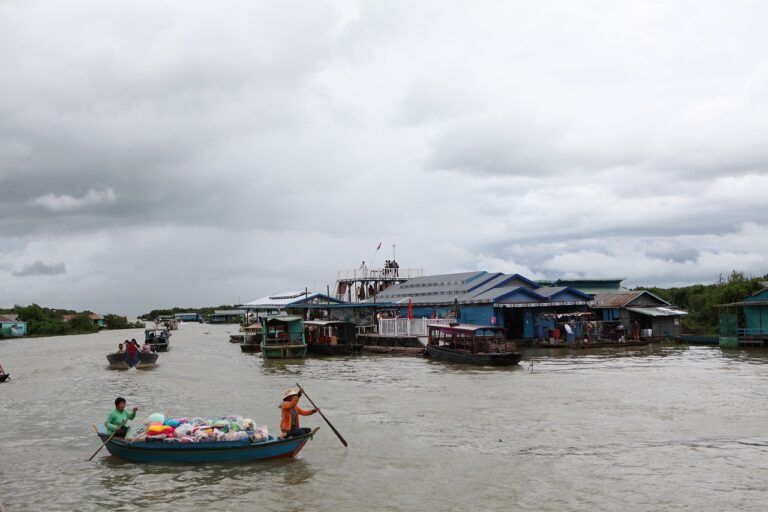
Press Release
- Asia , Defenders , Feature , Latest , Press Release
The Cambodian Government should reverse travel restrictions on three representatives of Mother Nature Cambodia so they can accept the Right Livelihood Award in Stockholm, Climate Rights International said today.
On September 28, 2023, Right Livelihood announced the winners of the Right Livelihood Award , sometimes called the “Alternative Nobel Prize.” The award recognizes individuals and organizations dedicated to creating positive change and addressing pressing human rights issues. Mother Nature Cambodia was honored , “For their fearless and engaging activism to preserve Cambodia’s natural environment in the context of a highly restricted democratic space.”
Thon Ratha, Phuong Keo Reaksmey, and Long Khunthea are currently serving suspended prison sentences after the three were arrested on June 16, 2021, on politically motivated charges of conspiracy and “insulting the king,” stemming from their reporting of sewage entering the Tonle Sap River.
“Prime Minister Hun Manet has just failed the first test of whether his regime will be more open to criticism than his dictatorial father, Hun Sen,” said Brad Adams, Executive Director at Climate Rights International. “Hun Manet still has a chance to show he’s different by not only lifting this ridiculous travel ban, but by also requesting the courts to reverse the equally ridiculous conviction of people whose only crime was trying to protect Cambodia from environmental destruction.”
Mother Nature Cambodia was founded in 2012 to challenge “a small elite of well-connected individuals and corrupt, ruthless government officials to amass vast fortunes, causing widespread destruction of the nation’s natural resources and gross human rights violations.” The organization has used public reporting and participation in peaceful protests to address climate change and environmental protection.
Mother Nature Cambodia’s first campaign in 2012 was to stop the development of a hydro-dam in the Areng Valley. The original plan for the $300 million project would have resulted in the flooding of hundreds of homes in the area, most of them belonging to Indigenous People. The campaign was successful thanks to the joint efforts of Mother Nature Cambodia and the local community. In 2016, Mother Nature Cambodia helped secure a temporary ban on the additional dredging and exporting of sand from Koh Kong, a big victory in Cambodia’s fight against sand mining scams. The organization regularly produces informative and digestible videos that resonate with the youth population and have amassed more than 20 million views.
Cambodian authorities have responded by targeting the organization and its staff. For example, on September 15, 2017, the organization was deregistered by the Ministry of Interior and their founder, Alejandro Gonzalez-Davidson, was expelled from the country.
Cambodia is just one of a number of countries that are targeting climate change defenders with politically motivated criminal charges, all while allowing environmental criminals to operate with impunity. Last week, Vietnam sentenced climate activist Hoang Thi Minh Hong to three years in prison on a fabricated charge of tax evasion, the fifth climate activist to be imprisoned in the country in the last two years. In the United Kingdom, climate protestors have been detained in jail for up to six months before their trials even commenced. As the effects of climate change continue to be felt more each year, countries around the globe must cease the brutal responses to individuals and groups engaged in peaceful protests.
“The Cambodian government seems to think that blocking the award recipients from traveling will decrease the attention Mother Nature Cambodia will receive, but all they have done is shine a spotlight on their work and the repression they face,” said Adams. “Instead of persecuting climate and environmental activists, the government should target the corrupt government officials and tycoons who are profiting from the destruction of the country’s forests, lakes, and rivers.”
Photo Credit: Tonle Sap Lake, Cambodia. Photo via Pixabay ( CC0 ).
Like this article?
Related articles.

Promoting Supply Chain Resilience

Indonesia: President-Elect Should Divest from Fossil Fuels

OPED: New York’s procurement system need not add to forest destruction
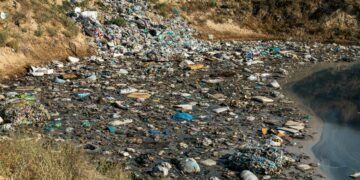
Global Plastics Treaty Negotiators Should Greatly Increase Ambition
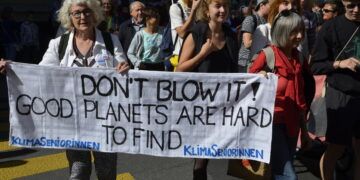
European Court of Human Rights: States Must Act on Climate Change
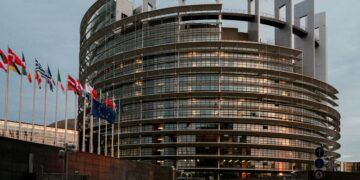
EU: Corporate Due Diligence Law A Bittersweet Victory
- Landing Page
- Support Forum
- Pre-sale Question
- International Court of Justice
- Regional Human Rights Courts
- Just Transition
- Mitigation Commitments
- Adaptation Commitments
- Loss & Damage
- Green Climate Fund
- Climate Change as a Driver of Cultural Destruction
- Supply Chains
- Carbon Capture & Sequestration
- Carbon Offsets
- Critical Minerals
- Oil & Gas
- Plastics & Petrochemicals
- Bottom trawling
- Overfishing
- Ocean Acidification
- Sea-level Rise
- Deforestation
- Key Domestic Law
- Climate Change Glossary
- International Legal Obligations
- The Paris Agreement
- Freedom of Expression
- Assembly and Protest
- Right to Information
- Right to Participation
- Migration and Refugees
- Right to Education
- Right to Health
- Right to a Healthy Environment
- Right to Adequate Housing
- Right to Food
- Right to Life
- Right to Water
- Rights of Indigenous Peoples
- Our Mission
- Advisory Council
- Board of Directors
- CRI in the News
Updated: A country-by-country guide to coronavirus reopenings

Almost three years after the COVID-19 pandemic first upended international travel, many countries have finally returned to pre-pandemic entry requirements by removing vaccination and testing mandates; others have made the process less of a hassle by easing restrictions. Even some of the most restrictive nations are finally open to tourists again. For instance, Japan, announced on Sept. 22 that it would allow visa-free travel there as of Oct. 11. Meanwhile, Taiwan restored visa exemption for U.S passport holders on Sept. 12, and entry for Americans are now able to visit.
Still, a number of countries have restrictions in place, so knowing the rules before you travel internationally remains important.
Related: A country-by-country guide to where you can travel without a COVID-19 test
Reentering the U.S. has also gotten easier since the government on June 12 ended its requirement that all air travelers to the U.S. take a COVID-19 antigen test the day before their flight. The U.S. continues to require that noncitizens and nonresidents be fully vaccinated to enter. For details, visit the Centers for Disease Control and Prevention website .
Warnings from the CDC and U.S. Department of State also continued to evolve, with the CDC in early October dropping its COVID-19 travel notices for individual countries.
To get all the up-to-date travel news at your fingertips, download the free TPG App .
TPG is here to guide you through the latest in these updated rules and regulations. To make sure you have the most current information, please follow the provided links to government, tourism, U.S. Embassy and U.S. State Department websites for the most recent updates.
North America
As of June 12, travelers arriving by air to the U.S. no longer need to present results of a negative COVID-19 test taken within one day of their flight. However, all noncitizen and nonresident travelers need to show proof of full vaccination to enter the U.S.
Related: US dropping international COVID-19 testing requirement
The U.S., which reopened to fully vaccinated international travelers on Nov. 8, 2021, still requires all arriving air passengers to provide contact tracing information to their airline. Current details on requirements for entering the U.S.can be found on the CDC's website .
All U.S. states are open and proof-of-vaccination requirements for many indoor activities in New York, Los Angeles, San Francisco, Boston and other cities have ended.
On March 26, Hawaii ended restrictions for domestic travelers, but international arrivals are still subject to the U.S. government's vaccination rules.
Related: Traveling to Hawaii just got a whole lot easier
Masks are no longer required in public spaces. On April 18, a federal judge vacated the executive order President Joe Biden signed soon after taking office in late January 2021 that mandated the wearing of masks on federal property and domestic public transportation , including planes, buses, subways, trains, airports and train stations. Mask-wearing is optional in airports, on airplanes and on certain other public transportation. New York in early September changed its own public transportation mask mandate on subways, buses and shared rides to recommended from required.
The CDC has updated its domestic travel guidance for fully vaccinated travelers, but still strongly advises unvaccinated individuals to test before and after travel within the U.S. Check the CDC website for the latest updates.
Long-standing U.S. restrictions on visitors , including a ban on tourists driving into the country from Canada and Mexico, were lifted on Nov. 8, 2021, but only for fully vaccinated travelers (at least 14 days past their final dose). The vaccination requirement does not include children under the age of 18.
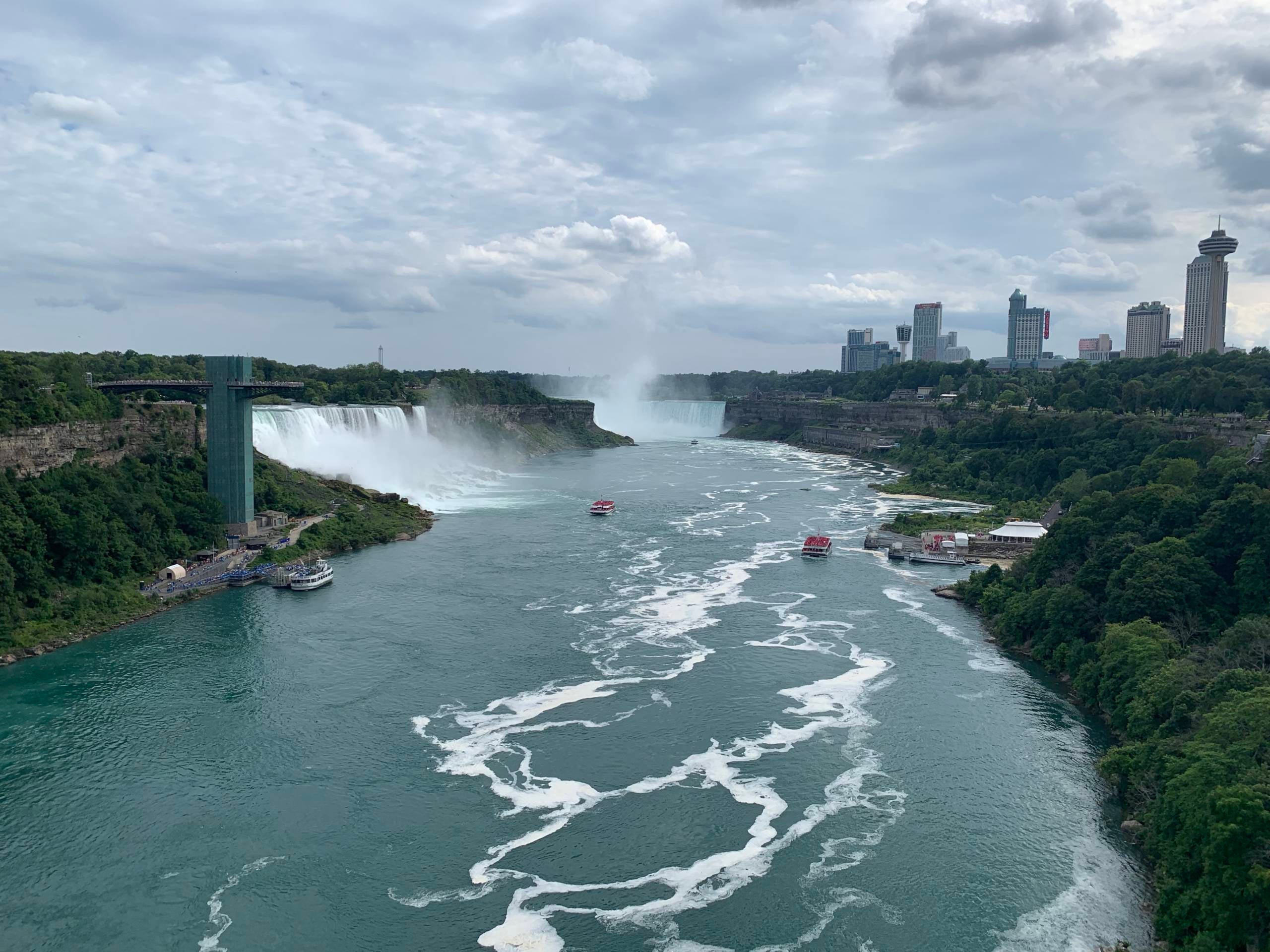
As of Oct. 1, all COVID-19-related entry restrictions for all international visitors to Canada have been eased. Proof of vaccination is no longer required and the electronic ArriveCAN form has been discontinued.
Canada had previously ended its pre-travel testing requirements on April 1 and the rule, in effect since Nov. 30, 2021, that all passengers age 12 and older traveling domestically in Canada by air or by rail need to be fully vaccinated was suspended on June 20.
Find the latest updates here .
Quebec requires anyone seeking to buy alcohol or cannabis at a province-run store to be fully vaccinated.
Fully vaccinated Canadians are again able to enter the U.S. via a land crossing at the border as of Nov. 8, 2021.
For more information and updates, visit the U.S. Embassy in Canada website .
The U.S. Department of State's travel advisory for Canada is Level 1: Exercise Normal Precautions.
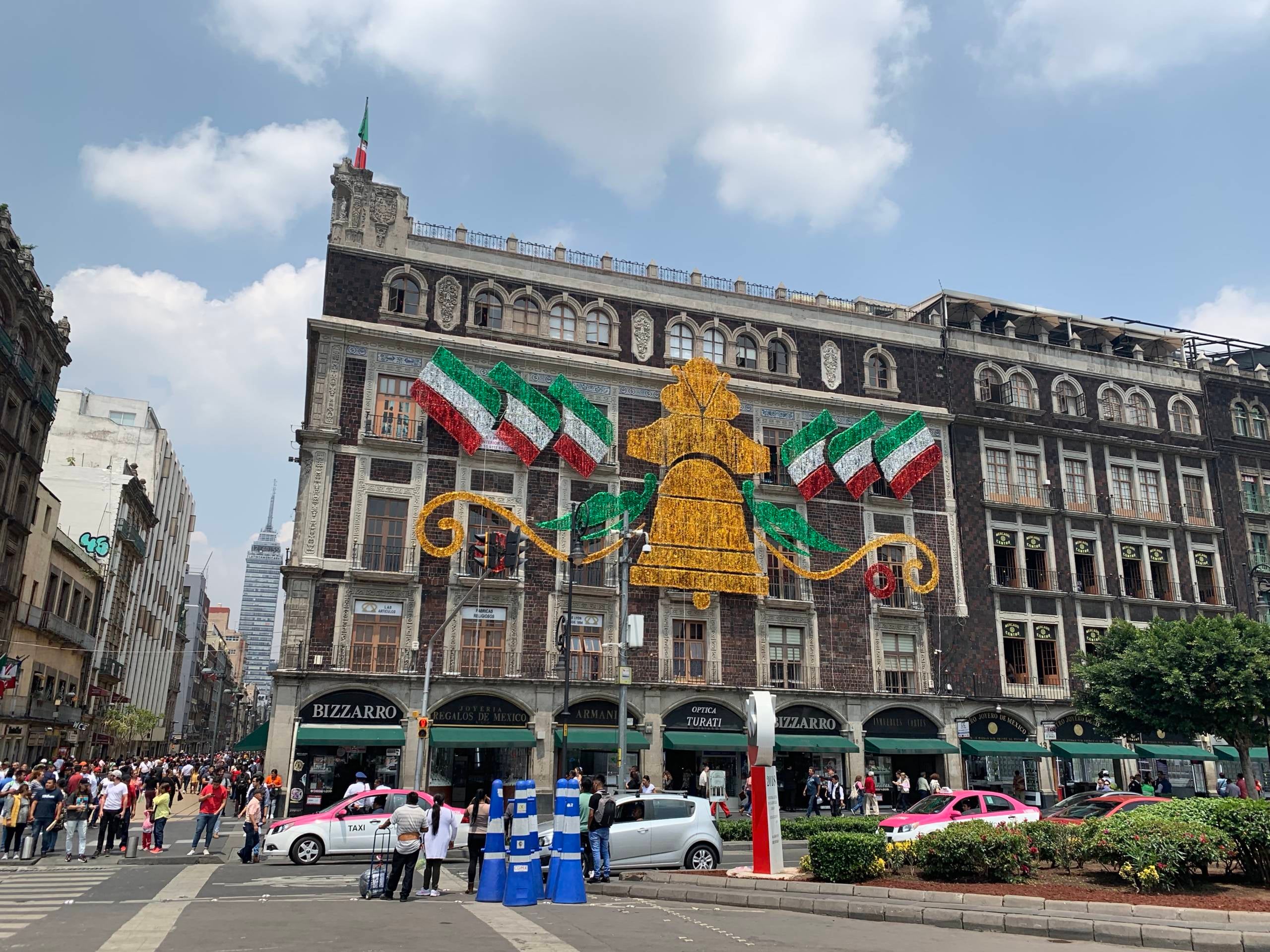
Mexico has never required testing for entry and has lifted most coronavirus restrictions.
According to the U.S. Embassy in Mexico , travelers entering Mexico via land may be subject to health screenings, including temperature checks. Travelers may experience significant delays and face the possibility of being returned to the U.S. or quarantined in Mexico.
An increase in crime against tourists in Cancun and Riviera Maya made the U.S. Consulate General in Merida issue a security alert for Americans traveling in the region in January 2022. Crime in many regions of Mexico is high. The U.S. consulate classifies Colima, Guerrero, Michoacan, Sinaloa, Tamaulipas and Zacatecas as "Do Not Travel" states.
The U.S.-Mexico land border reopened on Nov. 8, 2021, and fully vaccinated travelers are once again allowed to enter the U.S. from Mexico by land. Proof of vaccination is not required for U.S. citizens, but international travelers are required to be vaccinated.
The State Department's advisory for Mexico is now broken down state by state due to threats of crime and kidnapping .
Puerto Rico
Puerto Rico , an unincorporated territory of the U.S., is open to all international travelers, although non- U.S. citizens or permanent residents must present proof of vaccination against COVID-19.
As of March 10, all domestic travelers (U.S. citizens and residents), both vaccinated and unvaccinated, no longer need to provide proof of a negative pre-travel COVID-19 test result to enter Puerto Rico.
International visitors must be fully vaccinated. However, the U.S. rule that required all those arriving by air to provide proof of a negative COVID-19 test taken one day before entry ended on June 12.
All capacity restrictions have also ended. Masks are no longer required in indoor public places, but are recommended on public transportation and when vaccination status cannot be guaranteed. Masks are now optional (as of Oct. 1) at events with more than 1,000 people and attendees are no longer required to provide updated proof of vaccination.
For the latest updates, check here .
Related: Your points and miles guide to Puerto Rico
U.S. Virgin Islands
The U.S. Virgin Islands , which includes St. Thomas, St. John and St. Croix, has been open to tourism since Sept. 19, 2020. As of June 1 , all travelers, whether fully vaccinated or not, no longer need to provide proof of a pre-travel negative test to enter (the test requirement had been dropped for vaccinated domestic travelers as of March 7).
International travelers must still adhere to the U.S. entry requirement that they be fully vaccinated to visit the USVI. Details can be found here .

Antigua and Barbuda
Antigua and Barbuda reopened to tourists on June 4, 2020, and the government's travel advisory as of Aug. 29 lifted all remaining COVID-19 protocols for entry by air and sea. Check for updates here .
Mask-wearing in certain public settings is recommended.
Per the U.S. Embassy for the Eastern Caribbean , the U.S. State Department's advisory for Antigua is Level 1: Exercise Normal Precautions
Anguilla is once again welcoming all international visitors with no COVID-19 entry restrictions in place. The island, which began welcoming preapproved travelers on May 25, 2021, as of Oct. 1 has dropped approval and pre-travel testing requirements for unvaccinated travelers; vaccinated travelers had already been allowed to enter without pre-travel testing since Aug. 8.
The U.S. State Department's advisory for Anguilla is Level 1: Exercise Normal Precautions . Visit the U.S. Embassy in Barbados and the Eastern Caribbean , which oversees Anguilla, for additional information.
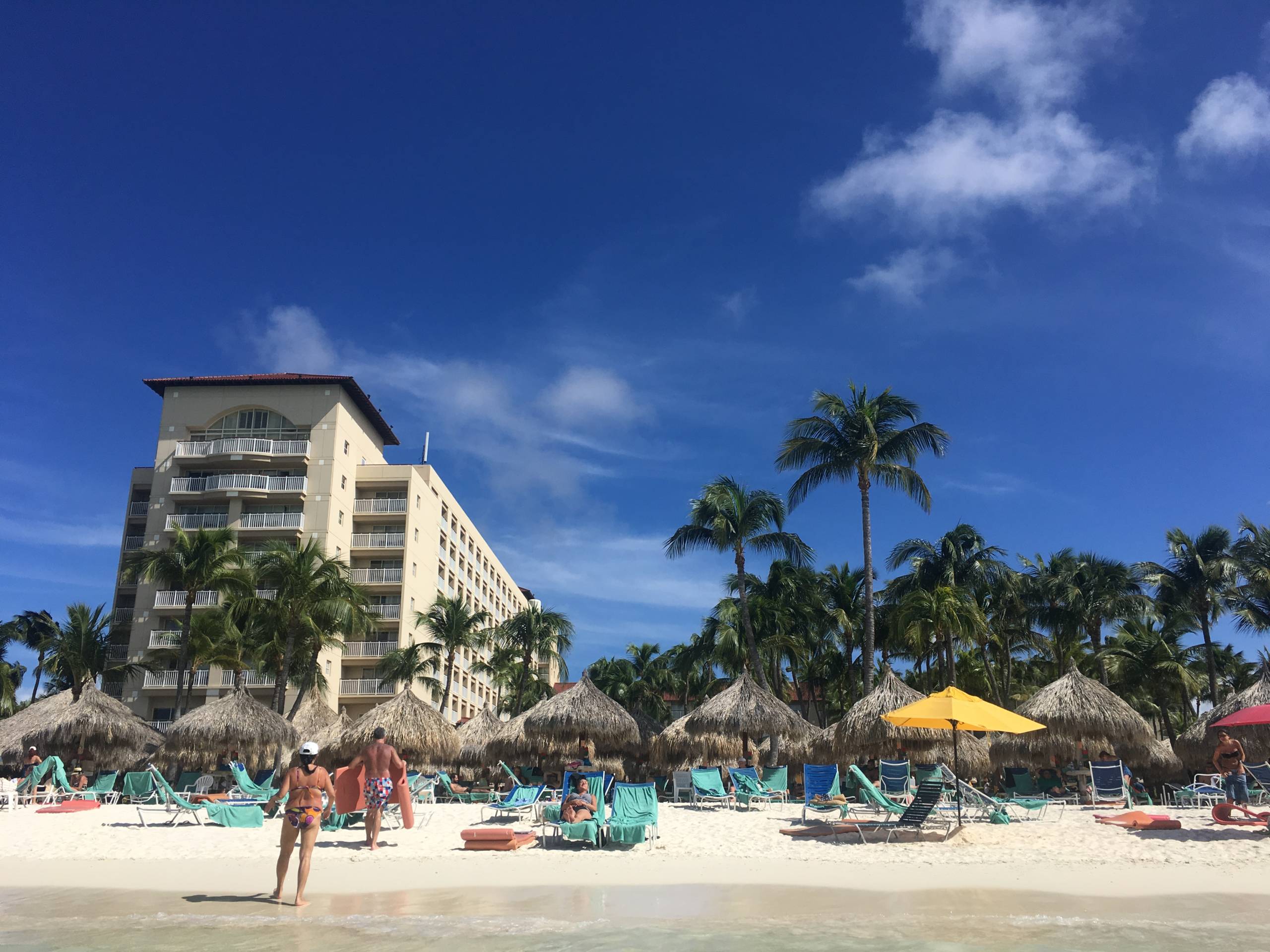
As of March 19, Aruba has relaxed its COVID-19 testing requirements and no longer requires proof of vaccination or a negative test to enter. However, all visitors must still complete an online embarkation/disembarkation card process within 72 to four hours prior to travel. The questionnaire asks for identifying information, including passport details. The form also includes a section where visitors can input their travel plans and answer health questions. Travelers must also download the Aruba Health app as part of the ED card process. Find details here .
Aruba reopened to tourists in the summer of 2020 and American visitors were welcomed back on July 10, 2020. U.S. travelers to Aruba previously had to purchase visitors insurance to cover up to $75,000 in health insurance, but the requirement has been discontinued as of July 8.
Visitors must carry a mask with them and wear one in businesses that require them. As of Feb. 17, all other safety measures have been eased.
Visit the U.S. Consulate General in Curacao , which oversees Aruba, for additional information. The U.S. State Department's advisory for Aruba is Level 1: Exercise Normal Precautions .
For the latest updates related to travel, check Visit Aruba's entry requirements page.
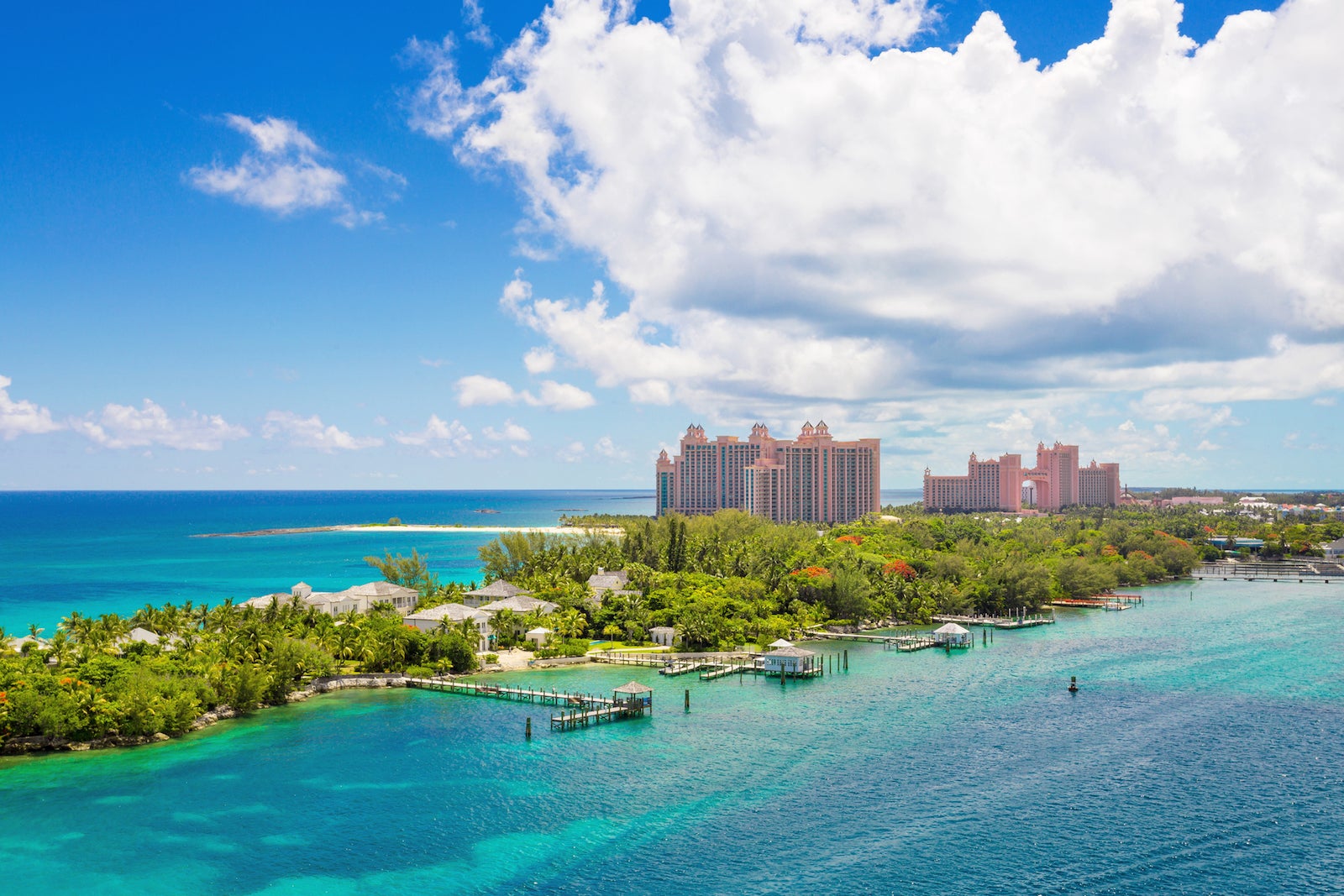
The Bahamas is fully open and as of Sept. 20, all COVID-19 entry restrictions have been lifted, including the need to apply for a Bahamas Health Visa. Details can be found here .
Check the U.S. Embassy in the Bahamas for additional info. The U.S. State Department's advisory for the Bahamas is Level 2: Exercise Increased Caution .
Barbados, which reopened to international travelers in July, 2020, as of Sept. 22 has ended all official COVID-19 entry protocols. Masks are also now optional. Find details here .
The U.S. State Department's advisory for Barbados is Level 1: Exercise Normal Precautions . Check the website of the U.S. Embassy in Barbados for additional information.

Bermuda , which reopened to travelers on July 1, 2020, has ended its pre-travel authorization and pre-travel negative test requirements and as of Nov. 14 visitors only need to fill out an electronic Bermuda Arrival Card , which was in place before the pandemic.
Complete details are available here .
The U.S. State Department's advisory for Bermuda is Level 1: Exercise Normal Precautions .
More information on the coronavirus in Bermuda can be found here .
Americans are welcome to visit Bonaire. As of April 20, proof of vaccination or a negative COVID-19 test result is no longer required for entry.
For the latest details, check here .
The U.S. State Department's advisory for Bonaire is Level 1: Exercise Normal Precautions . For more information, visit the website of the U.S. Consulate General in Curacao , which oversees Bonaire.
British Virgin Islands
The British Virgin Islands officially reopened to tourism on Dec. 1, 2020, and as of July 15, 2022, visitors are no longer required to provide proof of a negative COVID-19 test to enter, even if unvaccinated. Proof of health insurance valid in the British Virgin Islands is also no longer required.
Complete details on travel requirements and restrictions can be found here .
The U.S. State Department's advisory for the British Virgin Islands is Level 1: Exercise Normal Precautions . Check the U.S. Embassy in Barbados and the Eastern Caribbean , which oversees the British Virgin Islands, for additional information.
Cayman Islands
As of Aug. 24, there are no longer any COVID-19 protocols for all travelers, whether vaccinated or unvaccinated, to enter the Cayman Islands and approval via the Cayman Travel Portal has been suspended. Details are here .
The Cayman Islands had been welcoming fully vaccinated tourists since it entered Phase 5 of its reopening on Jan. 20. Cruise tourism resumed on March 21.
Related: After a 2-year absence, cruise ships are returning to the Cayman Islands
The U.S. State Department's advisory for the Cayman Islands is Level 3: Reconsider Travel .
Cuba began welcoming international tourists back Nov. 15, 2021 , and as of April 6, 2022, neither a negative COVID-19 test nor proof of full vaccination is required for entry. Tourists are not required to quarantine but should have medical insurance valid in Cuba and they need to complete a health declaration form prior to travel.
The U.S. State Department has a Level 2: Exercise Increased Caution advisory in place for Cuba. Politics limits Americans' travel to Cuba more than COVID-19. Long-standing travel restrictions were tightened by the U.S. government in late 2019, eliminating many of the reasons Americans were allowed to visit Cuba in recent years. For information on exemptions that allow Americans to travel to Cuba, visit the U.S. Embassy in Cuba's COVID-19 page and "Traveling to Cuba" page .
There are a number of additional restrictions for U.S. travelers visiting Cuba that are not related to the pandemic, and which remain active.
Curacao reopened to U.S. tourists in November 2020. All travelers are required to complete a digital immigration card before departure, but as of June 2, there are no other pre-travel testing requirements for all international visitors. Details are here .
The U.S. State Department's advisory for Curacao is Level 1: Exercise Normal Precautions . Visit the U.S. Consulate General in Curacao' s website for additional information.
Dominica has been open to travelers since Aug. 3, 2020, and as of Aug. 22, all COVID-19-related entry protocols have been dropped. Visitors no longer need to fill out a pre-travel questionnaire or present proof of vaccination or a negative COVID-19 test result.
The U.S. State Department's advisory for Dominica is Level 1: Exercise Normal Precautions .
For more information, see the U.S. Embassy for Barbados and the Eastern Caribbean 's website and Dominica's travel advisory .
Dominican Republic
The Dominican Republic reopened July 1, 2020 and all travelers are currently welcome to visit, with no pre-travel COVID-19 entry requirements.
Related: How to book a trip to the Dominican Republic using points and miles
As of April 23, travelers no longer need to show proof of vaccination or a negative COVID-19 test result to enter and random tests at the airport have ended. The use of masks and social distancing measures in public spaces is now up to the individual. Check for updates here .
All travelers must still fill out and submit an electronic entry ticket (for both arrival into and departure from the Dominican Republic) to declare they have not felt any COVID-19-related symptoms in the last 72 hours and provide contact details for the next 30 days.
The U.S. State Department's advisory for the island is Level 2: Exercise Increased Caution .

Grenada began reopening to foreign tourists on Aug. 1, 2020, with strict protocols, including quarantine, in place for all visitors. But as of April 4, 2022, Grenada has removed all COVID-19-related entry requirements and restrictions for both vaccinated and unvaccinated travelers.
Complete details can be found here .
For more information, check the U.S. Embassy in the Eastern Caribbean's COVID-19 page for Grenada . The U.S. State Department's advisory for Grenada is Level 1: Exercise Normal Precautions .
Haiti — which suffered political and social turmoil following the assassination of its president, Jovenel Moise, on July 7, 2021, as well as a 7.2 magnitude earthquake two weeks later — has reopened its borders to regular international passenger traffic. It has also opened its land borders with the Dominican Republic.
According to the U.S. Embassy in Haiti , as of April 18, all travelers to Haiti age 12 and older will need to present either a vaccination card proving full vaccination or proof of a negative COVID-19 PCR or antigen test taken within 72 hours of travel to their airline; proof of prior COVID-19 infection (a positive test and documentation from the attending physician) is also allowed. Passengers ages 5-11 must only present a negative test result.
The U.S. State Department's advisory for Haiti is Level 4: Do Not Travel .
Jamaica officially reopened for tourism on June 15, 2020, and as of April 16, 2022, passengers no longer need to present proof of a negative COVID-19 test to board their flight to Jamaica.
For faster processing upon arrival at the airport, travelers are encouraged to submit their Immigration/Customs C5 card online anytime before arrival. If the card has not been submitted online, passengers may complete the paper form issued in flight by the airline.
Visit the U.S. Embassy in Jamaica's website for additional information. The U.S. State Department's advisory for Jamaica is Level 3: Reconsider Travel .
Americans can visit Martinique for tourism — and as of Aug. 1 there are no COVID-19-related entry requirements for any traveler, according to the U.S. Embassy for the Eastern Caribbean .
The U.S. State Department's advisory for Martinique is Level 1: Exercise Normal Precautions .
Americans can visit St. Barts for tourism — and as of Aug. 1 there are no COVID-19-related entry requirements for any traveler, according to the U.S. Embassy for the Eastern Caribbean .
Check here for additional information about traveling to the island.
The U.S. State Department's advisory for St. Barts is Level 1: Exercise Normal Precautions .
St. Kitts and Nevis
As of Aug. 15, all travelers are allowed to enter St. Kitts and Nevis without any COVID-19-related restrictions. The only pre-travel requirement is an immigration and customs form .
Details can be found here .
Americans can now stay anywhere on the island, where options include the Park Hyatt St. Kitts , the Four Seasons Nevis and the St. Kitts Marriott Resort.
The U.S. State Department's advisory for St. Kitts and Nevis is Level 1: Exercise Normal Precautions .
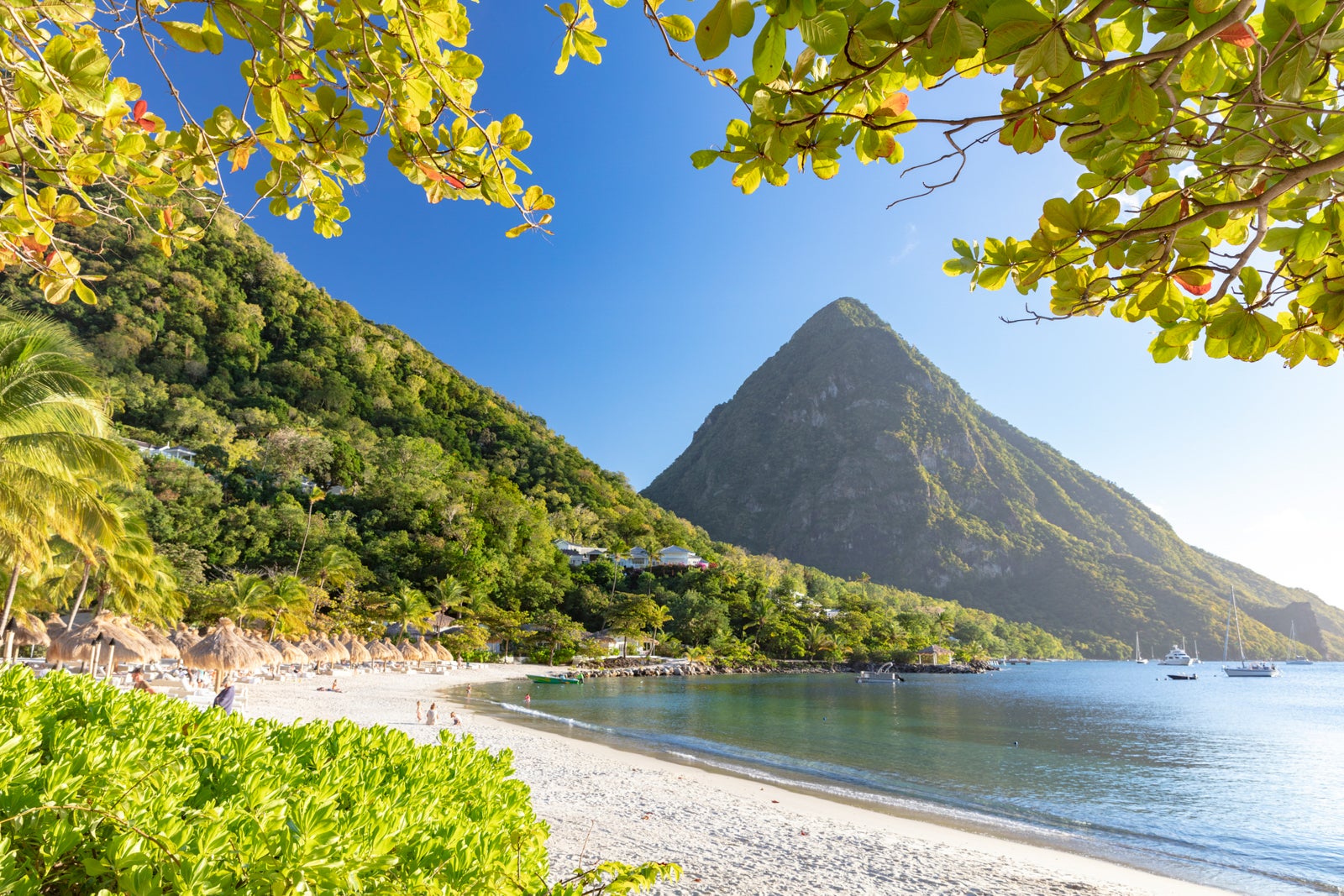
As of Sept. 5, St. Lucia has dropped all previous COVID-19-related entry protocols for both vaccinated and unvaccinated travelers; although, all visitors must complete and have a printed and signed copy of the St. Lucia Health Screening form .
Immediate access to all on-island activities is now available to both fully vaccinated and unvaccinated travelers. Unvaccinated travelers had previously been required to vacation in place at certified properties for the first seven days of their visit.
The U.S. State Department's advisory for St. Lucia is Level 1: Exercise Normal Precautions .
For further details, visit the international arrivals page on the St. Lucia Tourism website and the U.S. Embassy in Barbados and the Eastern Caribbean's website .
St. Vincent and the Grenadines
St. Vincent and the Grenadines began reopening on July 1, 2020 and as of Sept. 18, all COVID-19-related entry protocols have been lifted. Details are here .
The U.S. State Department's advisory for St. Vincent and the Grenadines is Level 1: Exercise Normal Precautions. Check the website of the U.S. Embassy in Barbados and the Eastern Caribbean and Discover St. Vincent and the Grenadines for updates.
St. Maarten
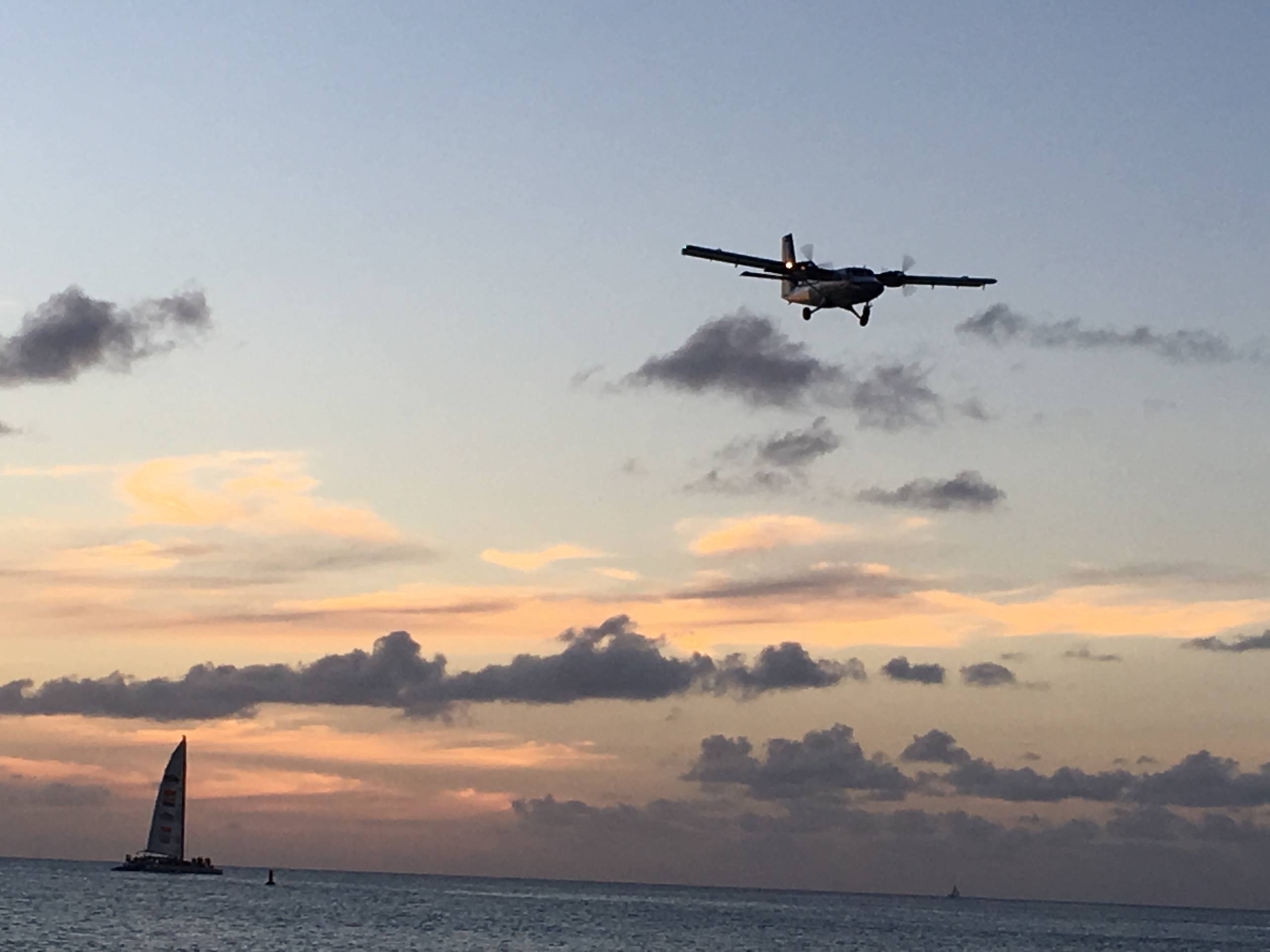
Dutch St. Maarten ended all COVID-19-related entry requirements as of Nov. 1 and is welcoming U.S. and other travelers arriving at Princess Juliana International Airport (SXM) without the need for proof of vaccination, testing or electronic authorization. Details are here.
Tourists can also cross the border from Dutch St. Maarten to French Saint-Martin .
The U.S. State Department advisory is Level 1: Exercise Normal Precautions for both Dutch St. Maarten and French Saint-Martin.
Trinidad and Tobago
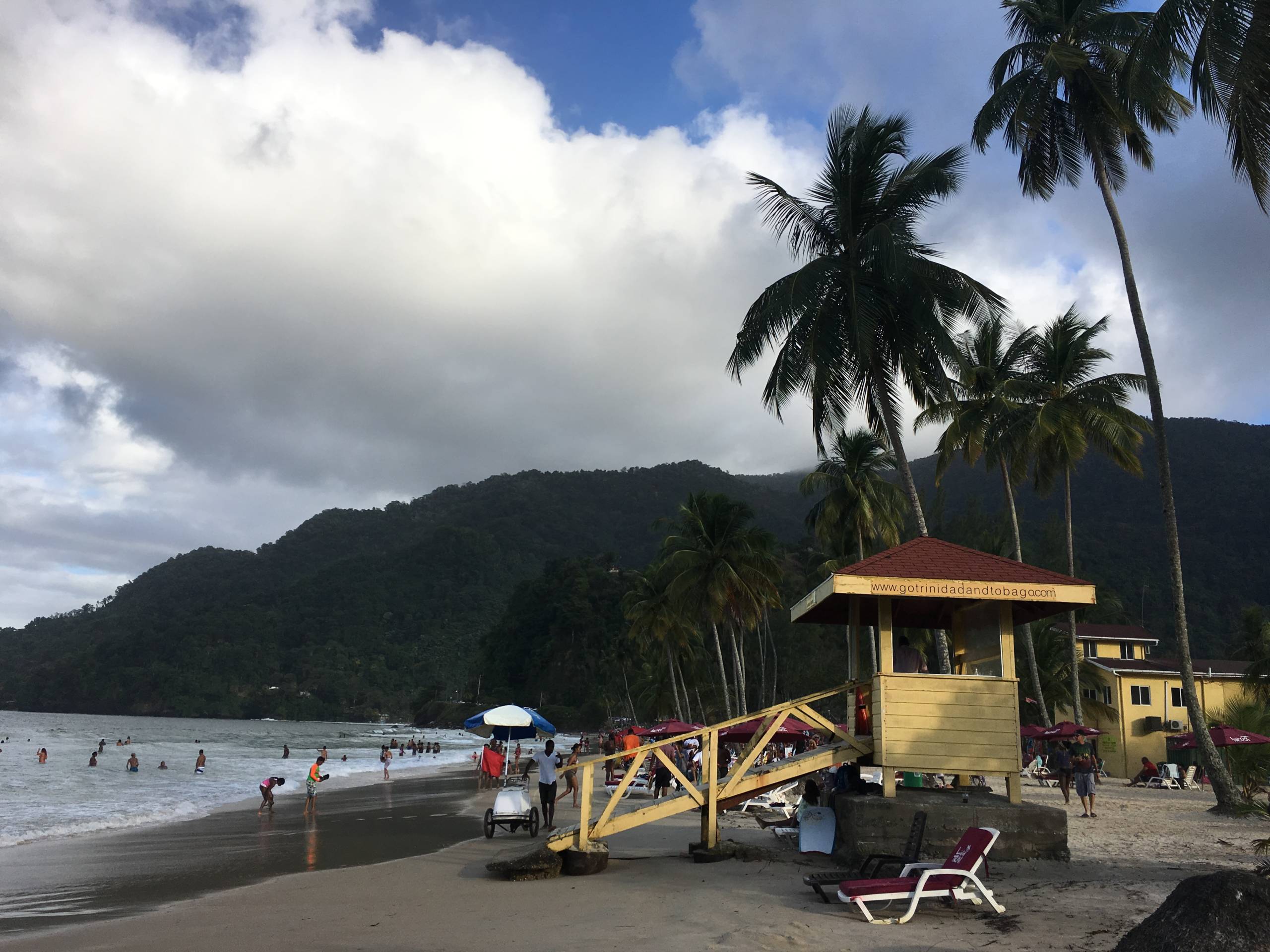
Trinidad and Tobago issued a stay-at-home order in late March 2020 and banned tourists. The country's borders reopened on July 17, 2021, and as of July 1, 2022, pre-travel testing is no longer required for entry.
The U.S. State Department's advisory for Trinidad and Tobago is Level 3: Reconsider Travel . Check the U.S. Embassy in Trinidad & Tobago website for updates.
Turks and Caicos
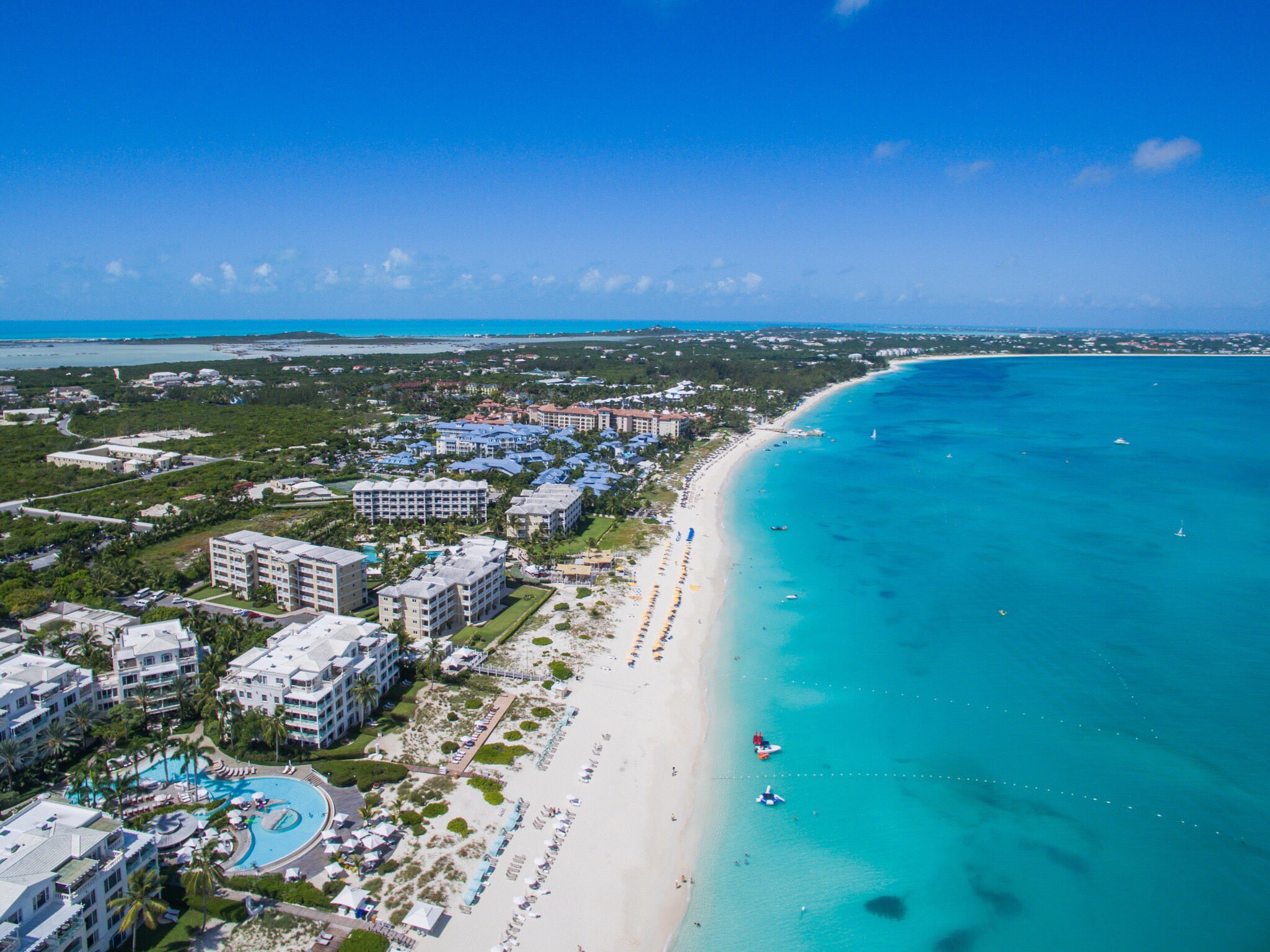
Turks and Caicos, a group of 40 low-lying coral islands popular with tourists in the Caribbean, began welcoming international visitors to Providenciales International Airport (PLS) on July 22, 2020. This British overseas territory includes the island of Providenciales, also known as Provo.
Turks and Caicos currently requires all visitors 18 years of age or older to be fully vaccinated, meaning 14 days must have passed after receiving a single-dose vaccine or a second dose of a two-dose vaccine. Vaccines currently approved are Pfizer, Moderna, AstraZeneca, Johnson & Johnson and others.
To show proof of vaccination, you'll need to provide a digital or paper vaccination record, including the CDC-issued card, or a vaccination letter signed by a medical professional (physician or registered nurse with license number) or one printed from an electronic vaccination database.
Related: Turks and Caicos to require vaccination
As of May 1, travelers to Turks and Caicos are no longer required to present proof of a negative COVID-19 pre-travel test, show proof of medical insurance valid for the treatment of COVID-19 in Turks and Caicos or obtain travel pre-authorization. Masks are no longer required in public places.
For the latest information, visit the Turks and Caicos tourism website and check the website of the U.S. Embassy in the Bahamas , which oversees Turks and Caicos.
The U.S. State Department's advisory for Turks and Caicos is Level 2: Exercise Increased Caution .
Related: Why I love Turks and Caicos
Europe continues to experience COVID-19 waves, although almost all countries have relaxed COVID-19-related entry restrictions and dropped vaccination or testing requirements to access indoor spaces such as restaurants, hotels and museums. The European Council recommended in late February 2022 that its member countries open more broadly to travelers from outside the European Union; by late October, when Spain finally ended its entry requirements, most countries had dropped all COVID-19-related entry requirements for travelers.
The Albanian government reopened for tourism on July 1, 2020, and Americans can visit, according to the U.S. Embassy in Albania .
Effective May 1, 2022, Albania repealed all COVID-19-related entry and public health measures, per the U.S. Embassy.
The U.S. State Department's travel advisory for Albania is now Level 2: Exercise Increased Caution .
Armenia is open to Americans, according to the U.S. Embassy in Yerevan . As of early May, the country no longer requires proof of vaccination or a pre-travel negative test to enter the country.
The U.S. State Department's travel advisory for Armenia is Level 2: Exercise Increased Caution .
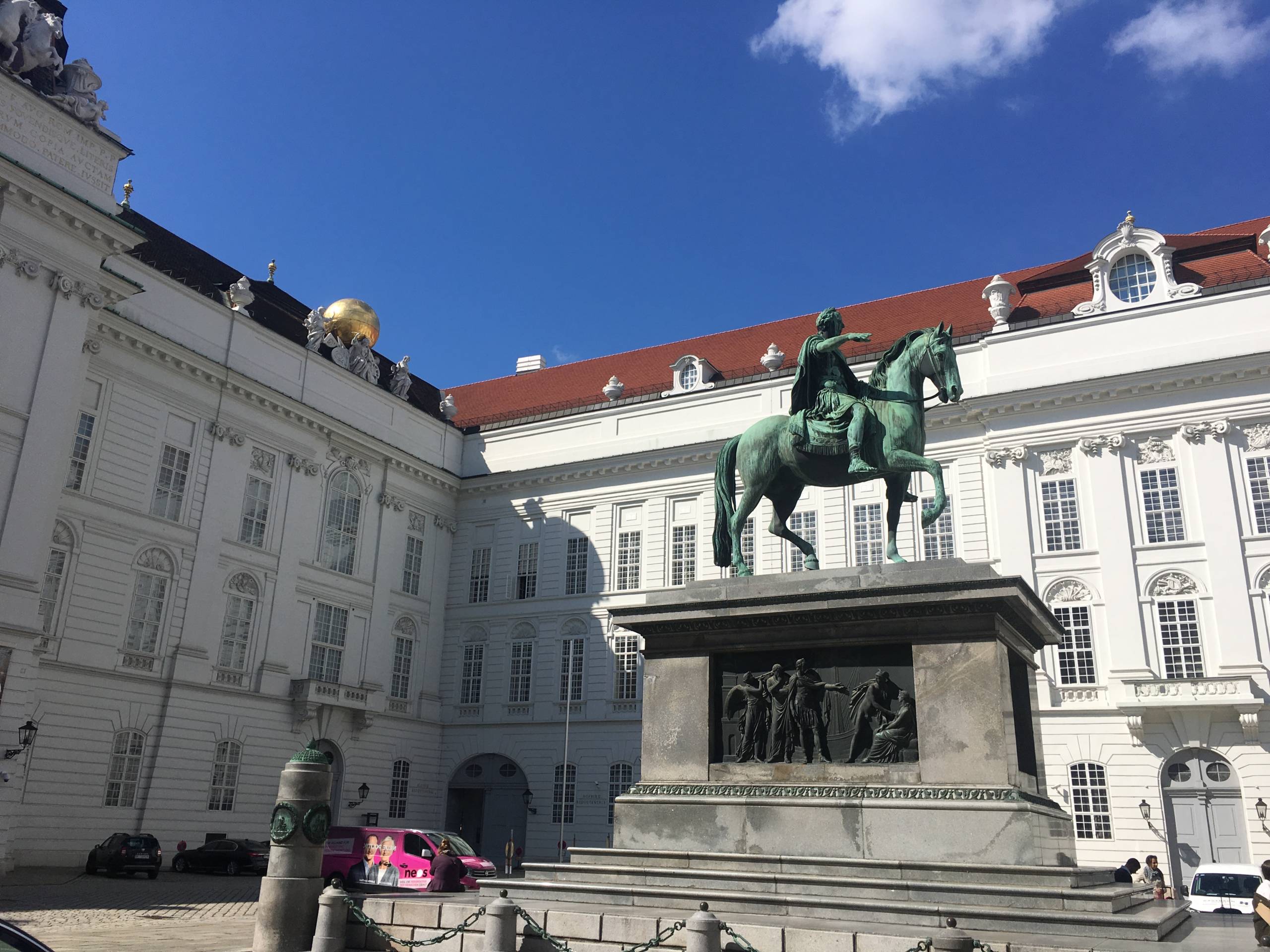
As of May 16, Austria no longer requires visitors from any country to be vaccinated, recovered or tested.
Information can be found here .
As of June 1, FFP2 or KN95 face masks are no longer required on public transportation and in essential shops and pharmacies — but in Vienna, they remain compulsory on public transportation and in pharmacies. For details on current restrictions, check here .
Check the U.S. Embassy in Austria for additional information. The U.S. State Department's advisory for Austria is Level 1: Exercise Normal Precautions .
According to the U.S. Embassy in Azerbaijan , as of June 21, 2021, U.S. citizens can fly to Azerbaijan. Entry by land is not permitted, however, and all travelers over the age of 18 must have proof of vaccination or proof of immunity from a previous infection (the testing requirement was eliminated as of April 14, 2022).
The country is under special restrictions through at least Jan. 1, 2023, to require proof of vaccination for those 18 and older to enter indoor venues, including restaurants, cafes and malls. Masks, however, are no longer required as of May 1.
The U.S. State Department's advisory for Azerbaijan is Level 2: Exercise Increased Caution .
Belarus is on the front lines of the Russia-Ukraine war. The country has also been in the midst of a popular uprising against Alexander Lukashenko, called the "last dictator in Europe."
The U.S. State Department's advisory for the country is Level 4: Do Not Travel ("due to the arbitrary enforcement of laws, the risk of detention, the Russian military attack on neighboring Ukraine, and the buildup of Russian military in Belarus along the border with Ukraine").
It isn't wise to visit — the embassy has suspended operations in Minsk and has asked Americans to depart Belarus if they are there — but the country bordering Russia and Ukraine is open. According to the U.S. Embassy in Belarus , America is on a list of countries that were allowed to enter as of Aug. 15, 2020, but only through Minsk National Airport (MSQ). Land borders are closed to American travelers.
Americans require a visa. A COVID-19 PCR test taken within 72 hours is also required and unvaccinated travelers must self-quarantine for seven days — and complete the full quarantine in Belarus. Travelers also need to fill out a health questionnaire and submit to temperature and health checks on arrival.
Note: On June 29, 2021, the U.S. Department of Transportation prohibited the sale of direct passenger air transportation, including tickets booked through one airline that contain flights operated by multiple airlines, between the U.S. and Belarus. Once this order becomes final, only direct air transportation deemed to be in the national interest of the U.S., including on humanitarian or national security grounds, will be allowed, per the U.S. Embassy.
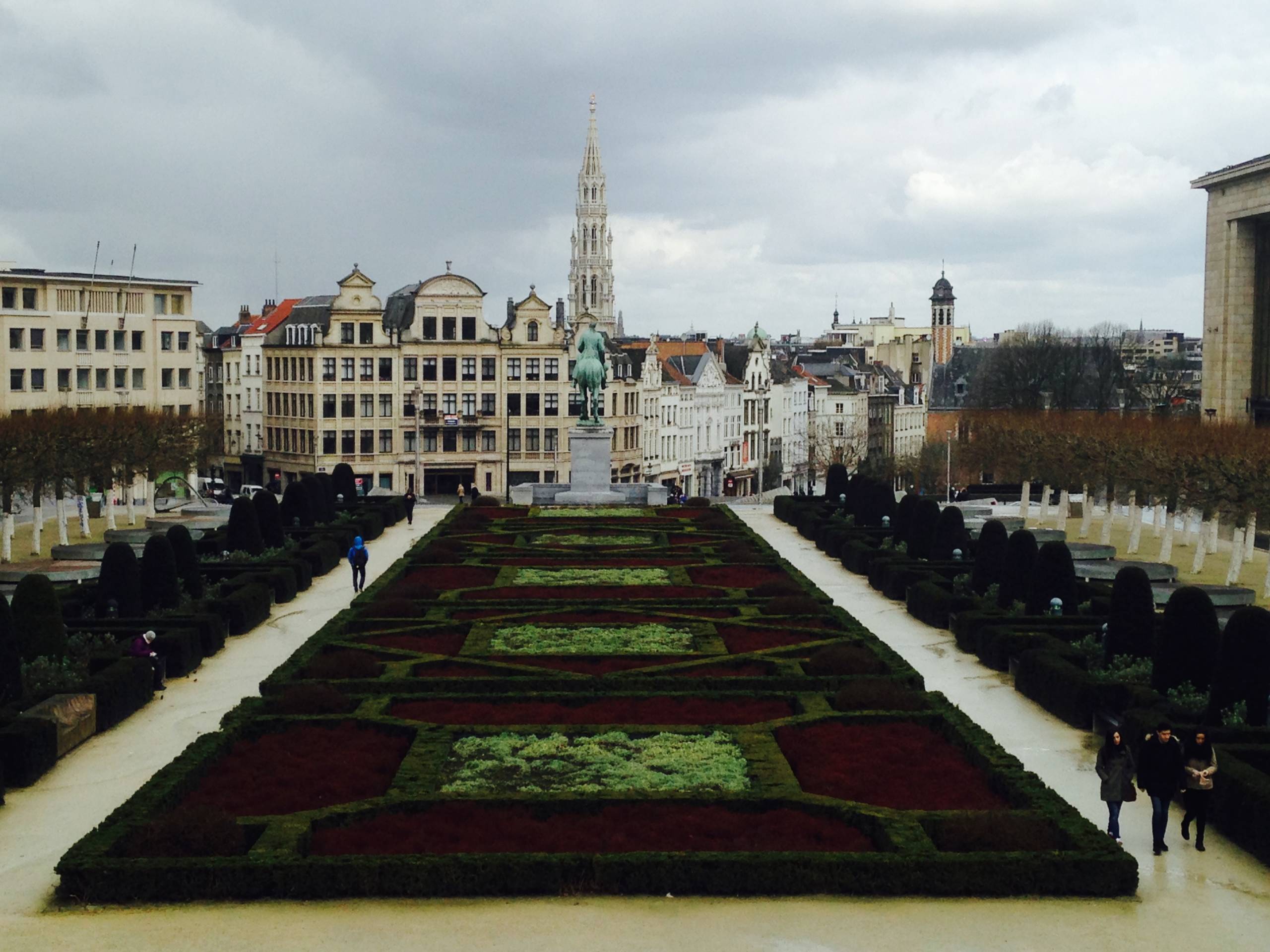
As of May 23, Belgium has lifted entry restrictions for all travelers, except those from "Very High-Risk" countries — but as of early December, no countries are categorized as such.
That means all Americans, whether they are vaccinated or not, can travel to Belgium without the need to test or quarantine, according to the Embassy and Consulates of Belgium in the U.S .
Further information can be found here and on the U.S. Embassy in Belgium's website .
Belgium had also instituted social distancing restrictions, which are being reduced. For more information, check the country's current measures .
The U.S. State Department's advisory for Belgium is Level 2: Exercise Increased Caution .
Bosnia and Herzegovina
Americans can travel to Bosnia and Herzegovina and, according to the U.S. Embassy , as of May 16 all COVID-19-related restrictions have been removed for all visitors.
The U.S. State Department's advisory for Bosnia and Herzegovina is Level 2: Exercise Increased Caution .
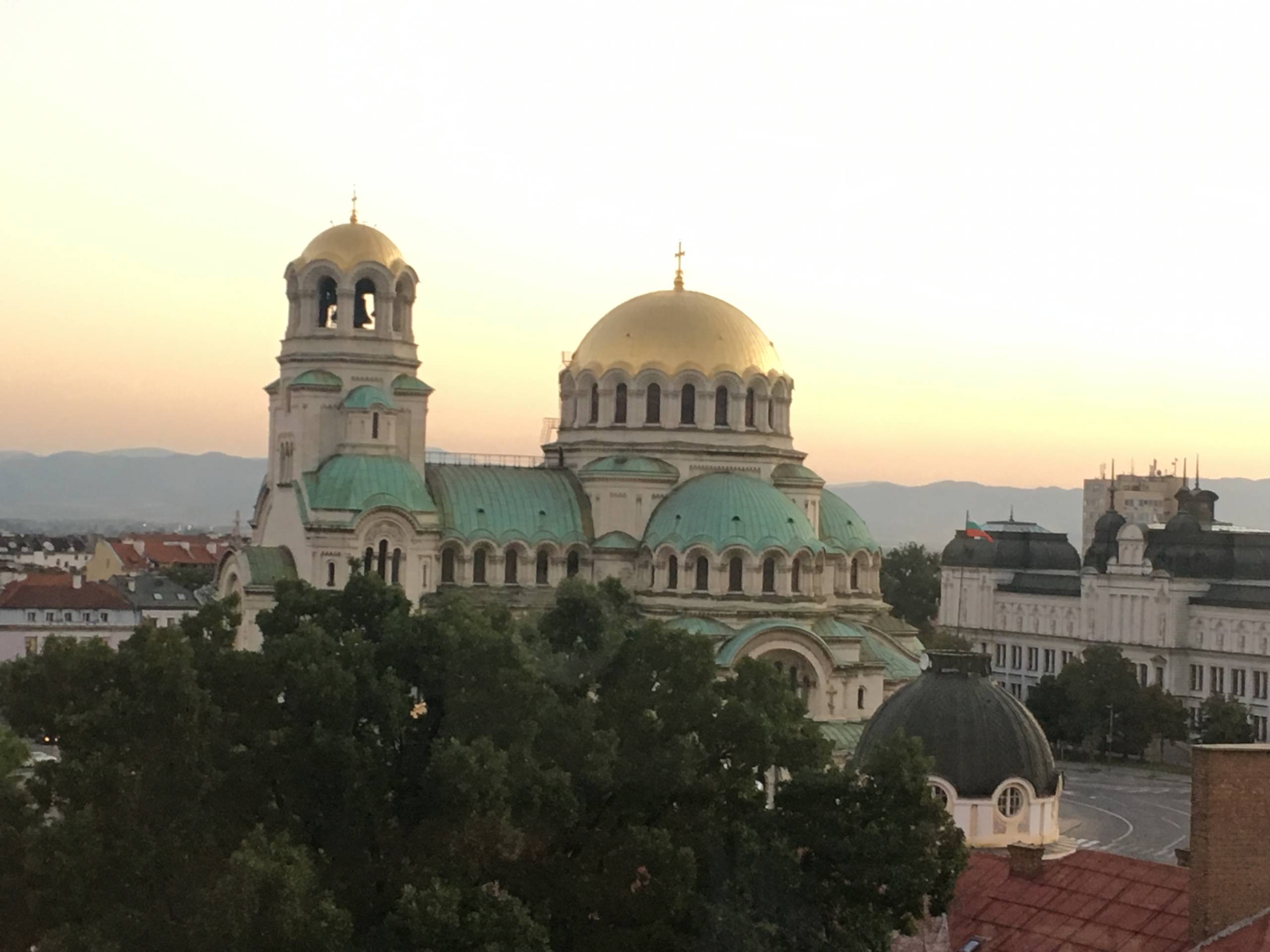
Americans can enter Bulgaria for tourism, per the U.S. Embassy in Bulgaria .
According to the embassy, as of May 1, all COVID-19-related entry restrictions have been lifted and all travelers to Bulgaria no longer need to provide vaccination or testing documents.
The U.S. State Department's advisory for Bulgaria is Level 1: Exercise Normal Precautions .
U.S. travelers can visit Croatia — and as of early May, there are no longer any vaccination or testing requirements for entry, per the U.S. Embassy in Croatia .
The U.S. Embassy does note that entry requirements are subject to change at any time without notice and that the Croatian Border Police have final authority regarding entry into Croatia.
Croatia no longer requires that masks be worn in indoor public spaces, with the exception of health care facilities.
The U.S. State Department's advisory for Croatia is Level 1: Exercise Normal Precautions .
Cyprus, a small island nation off the coast of Turkey, is now open to all international visitors and all previous COVID-19-related entry protocols ended on June 1.
As of July 8 , masks are required in certain indoor areas, including public transportation, for those over 12 years old.
Check the U.S. Embassy in Cyprus for additional information.
The U.S. State Department's advisory for Cyprus is Level 1: Exercise Normal Precautions .
Czech Republic
As of April 9, the Czech Republic has suspended all entry restrictions related to COVID-19. This means Americans can visit for tourism, whether they are vaccinated or not. Details can be found here and here . You can also check the U.S. Embassy in the Czech Republic website .
Direct flights between the U.S. and the Czech Republic resumed this summer on Delta Air Lines.
The U.S. State Department's advisory for the Czech Republic is Level 1: Exercise Normal Precautions .
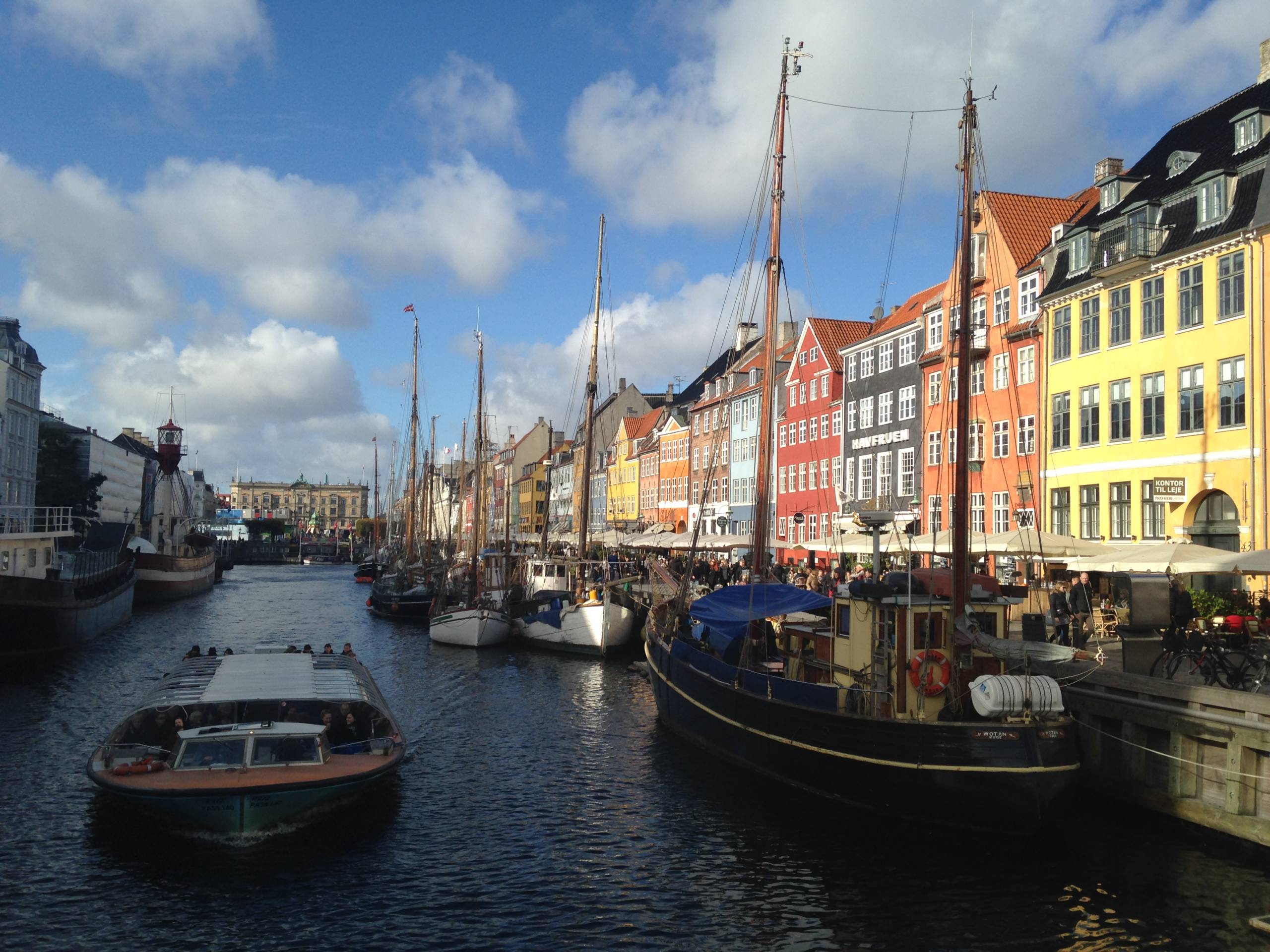
As of March 29, there are no longer any COVID-19-related restrictions for entering Denmark . Americans, whether they are vaccinated or not, can travel there for tourism.
Denmark also dropped all COVID-19-related restrictions within the country as of Feb. 1, although private businesses and cultural institutions may continue to require certain things and there will be recommendations for the use of masks and "corona passports" in certain limited situations. Face masks are no longer required in Danish airports.
Updates to travel restrictions for Denmark can be found here . You can also visit the U.S. Embassy in Denmark for additional information.
The U.S. State Department's advisory for Denmark is Level 2: Exercise Increased Caution .
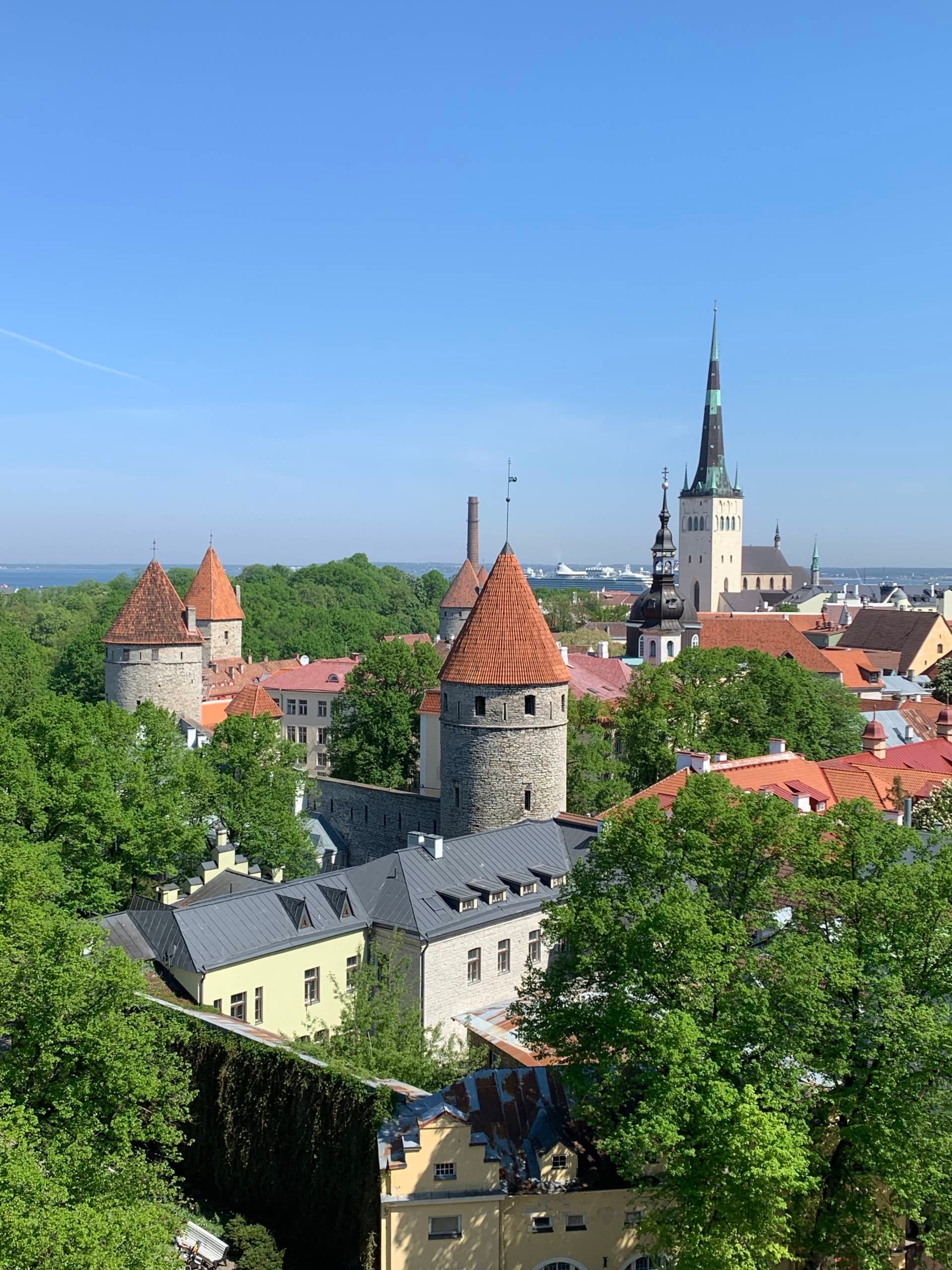
Estonia reopened to Americans as of June 21, 2021, according to the U.S. Embassy in Estonia, including for tourism. As of early July 2022, Estonia has lifted all COVID-19-related entry restrictions. See details here .
Masks are recommended in indoor public spaces.
The U.S. State Department's advisory for Estonia is Level 1: Exercise Normal Precautions .
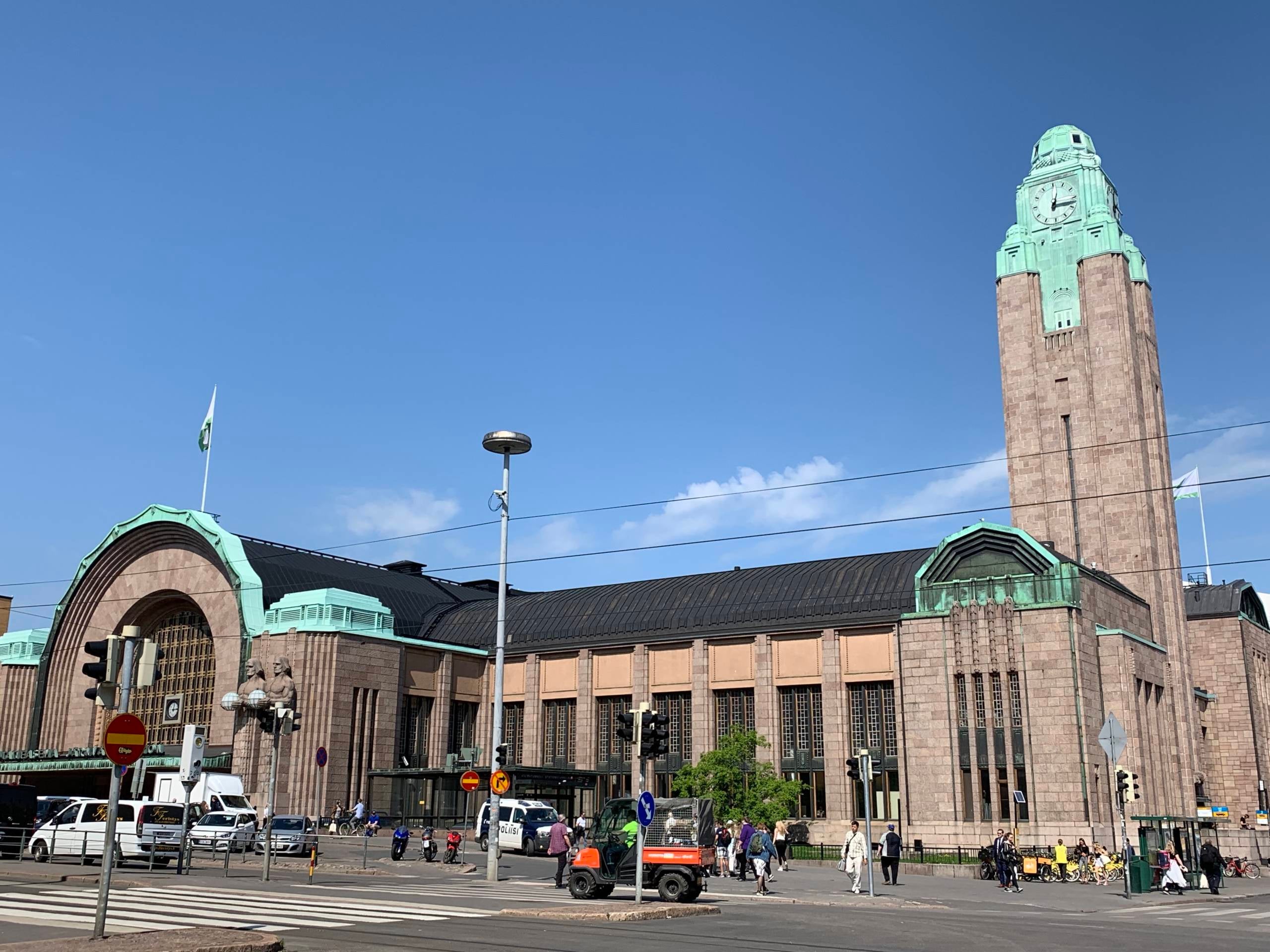
Americans can visit Finland for tourism and all COVID-19-related border restrictions ended as of June 30, per the Visit Finland tourism board .
Check the U.S. Embassy in Finland for additional information. The U.S. State Department's advisory for Finland is Level 1: Exercise Normal Precautions .

As of Aug. 1, all COVID-19-related entry requirements for France have been dropped. This includes proof of COVID-19 vaccination and a negative test result.
Updates to entry restrictions can be found here .
Check the U.S. Embassy & Consulates in France for additional updates. The U.S. State Department's advisory for France is Level 2: Exercise Increased Caution .
Americans are welcome in the country of Georgia, according to the U.S. Embassy in Georgia, and proof of COVID-19 vaccination or a negative pre-travel test is no longer required. Proof of health insurance valid in Georgia is recommended.
The U.S. State Department's current advisory for Georgia is Level 1: Exercise Normal Precautions.
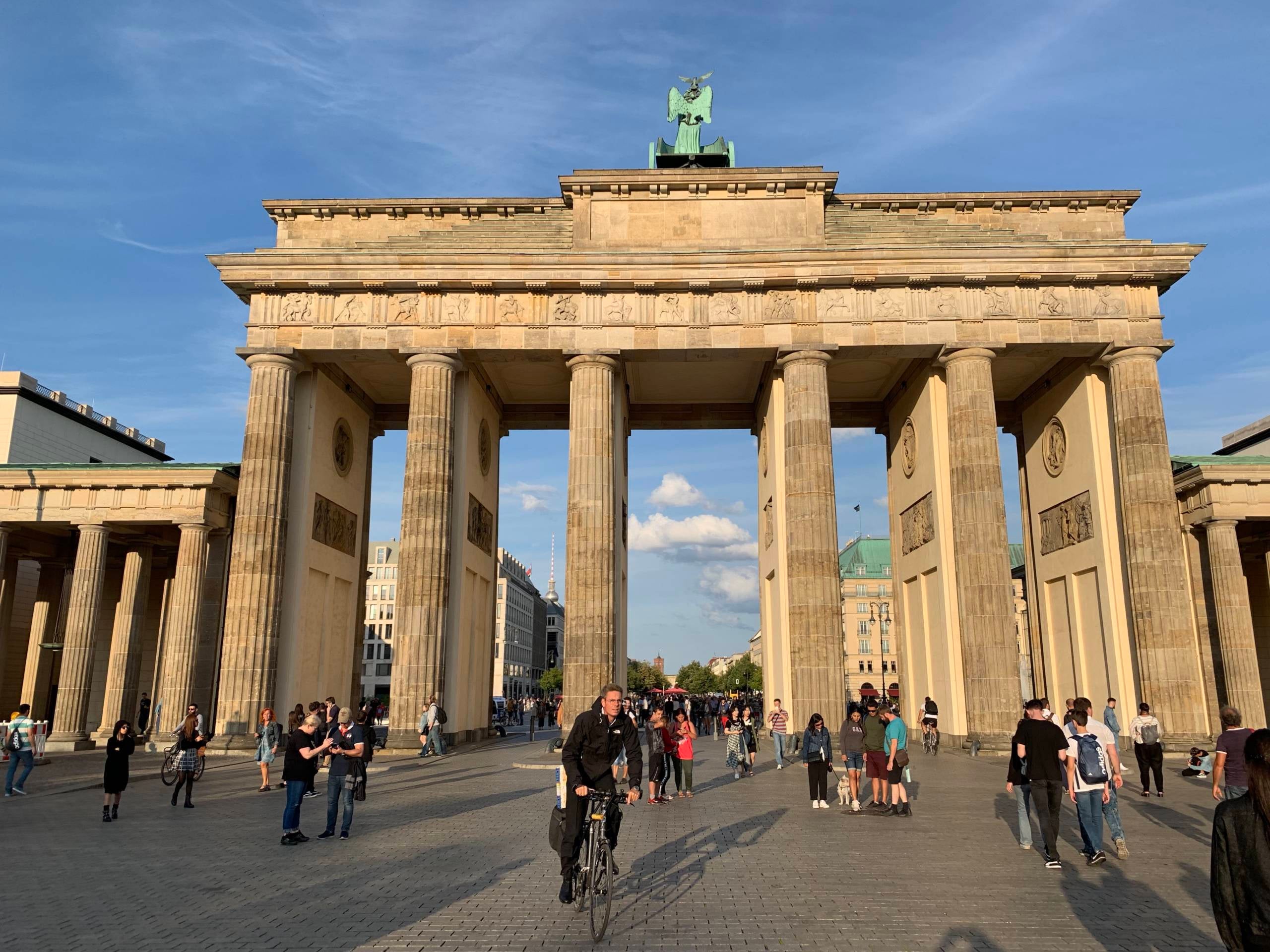
Germany has welcomed all Americans (except those who are residents of China due to reciprocity) since June 20, 2021. As of June 11, 2022, the German government has dropped all COVID-19-related vaccination and testing requirements for entry.
Related: Germany drops COVID-19 travel requirements
Check the U.S. Embassy in Germany or the German Federal Foreign Office for additional information.
Masks are still required on public transportation through at least Jan. 1, 2023.
The U.S. State Department's advisory for Germany is Level 2: Exercise Increased Caution .
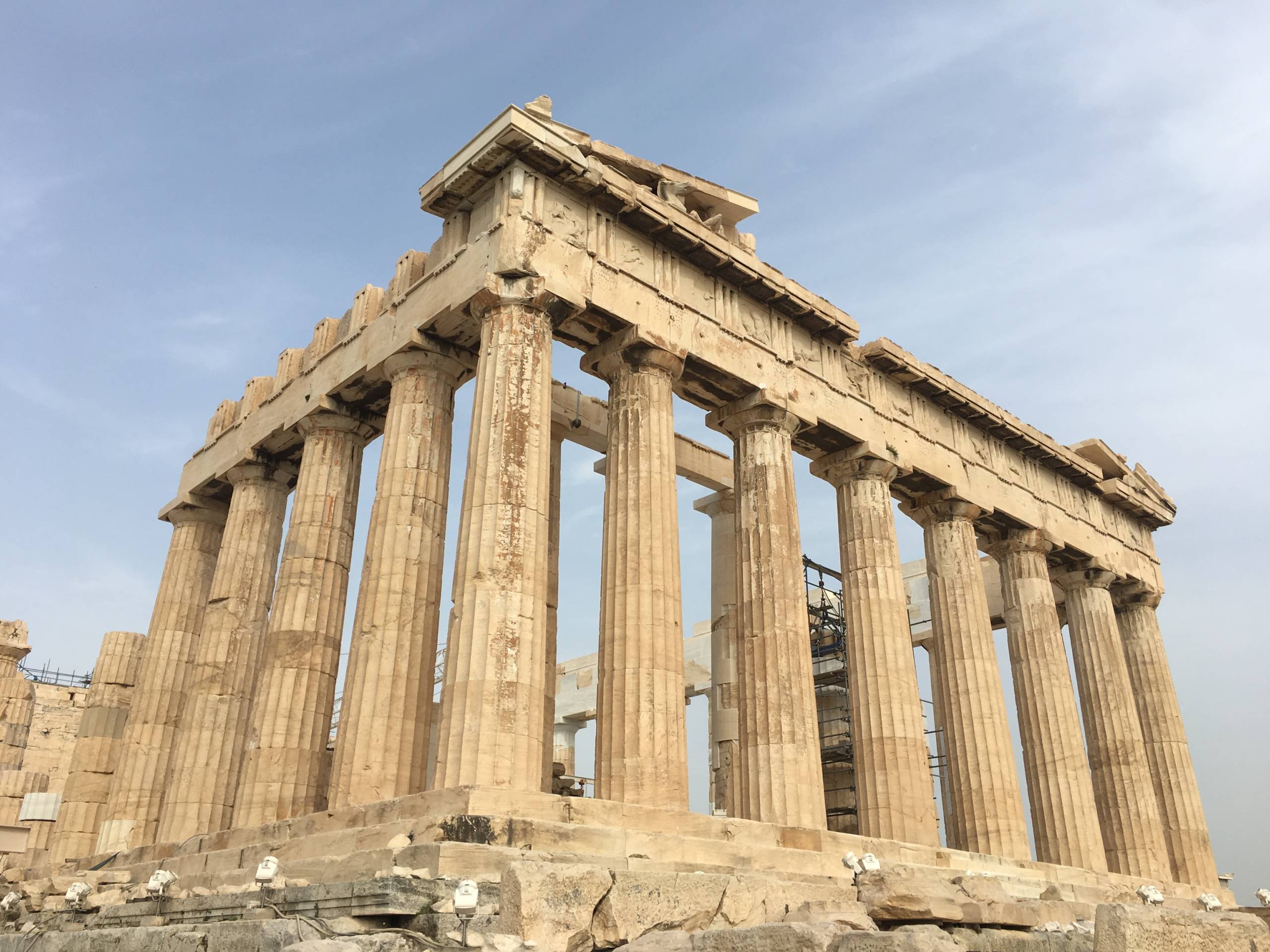
Greece began welcoming U.S. travelers on April 19, 2021. As of May 1, 2022, all travelers to Greece are no longer required to present a vaccination certificate, proof of recovery from COVID-19 or proof of a negative PCR or antigen test. Details can be found here .
As of March 15, 2022, it is also no longer mandatory to complete an online passenger locator form, but filling out a simplified version of the form is recommended.
Face masks are only required on public transportation.
Check the U.S. Embassy in Greece website for additional information.
The U.S. State Department's advisory for Greece is Level 1: Exercise Normal Precautions .
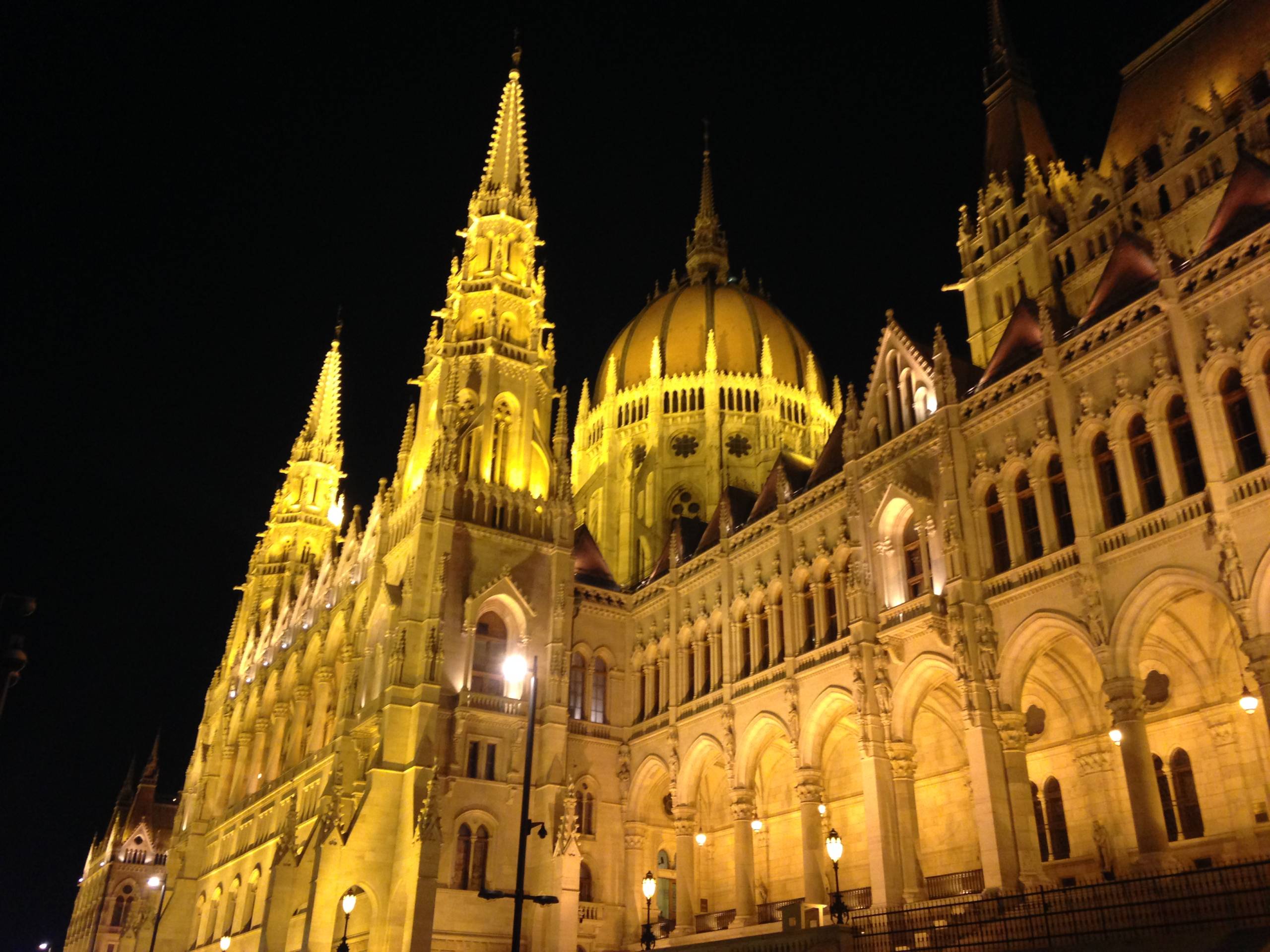
As of March 7, Hungary ended all COVID-19-related travel restrictions for travelers , including Americans, according to the U.S. Embassy in Hungary .
The U.S. State Department's advisory for Hungary is Level 1: Exercise Normal Precautions .

Iceland is welcoming U.S. travelers — and as of Feb. 25, there are no longer any testing or vaccination requirements to enter from any country.
Related: Iceland lifts all COVID-19 restrictions
Read the latest updates on Icelandair's website and check the U.S. Embassy in Iceland for additional information.
The U.S. State Department's advisory for Iceland is Level 1: Exercise Normal Precautions .
Related: 9 reasons you should visit Iceland
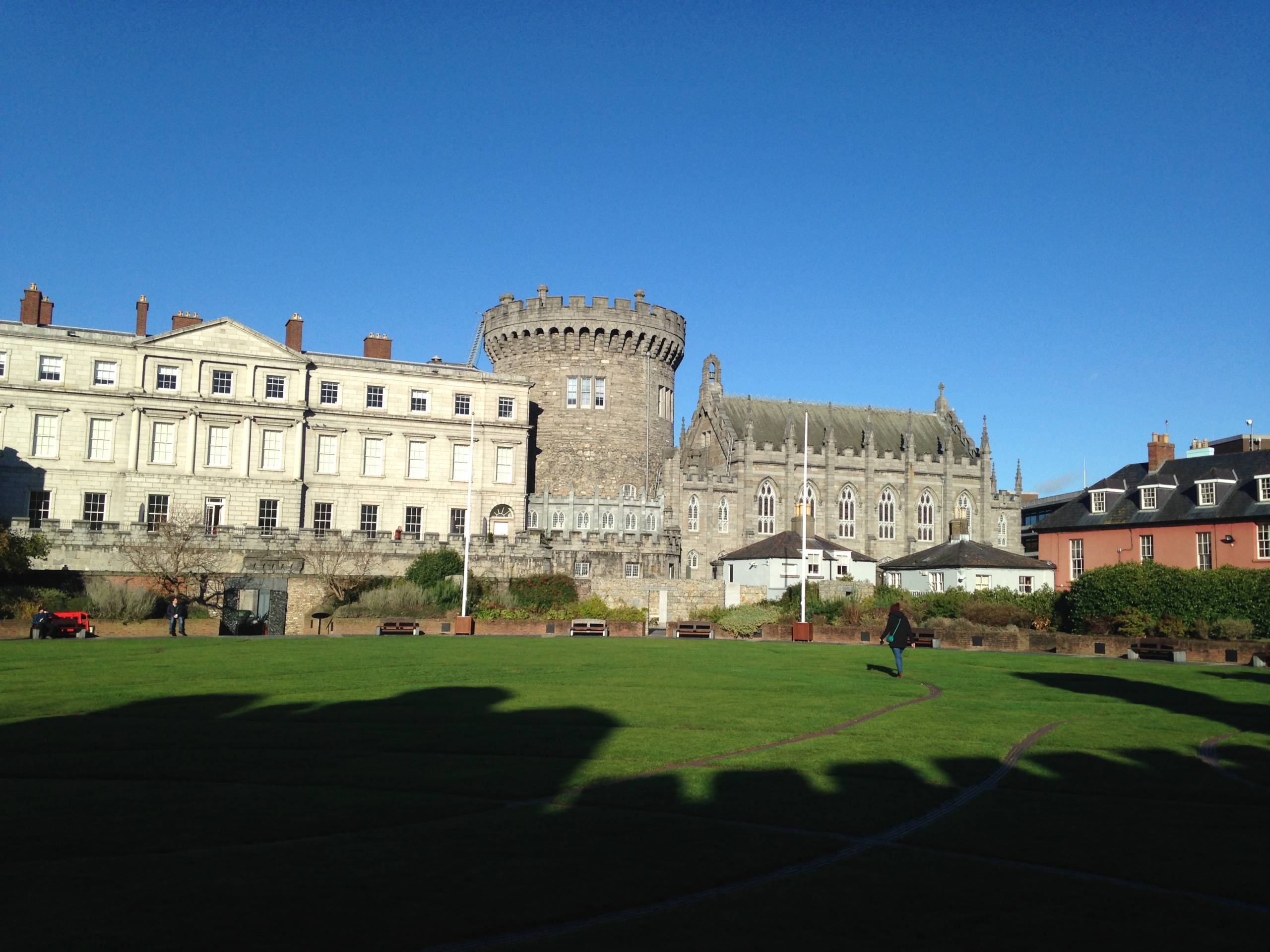
As of March 6, Ireland has dropped all COVID-19-related entry requirements for both vaccinated and unvaccinated travelers; completing a passenger locator form is also no longer required.
Updates on traveling to Ireland are here . Details on loosened restrictions within Ireland can be found here and here .
Masks are no longer required but are still recommended on public transportation and in health care settings.
For additional information, visit the U.S. Mission Ireland's website .
The U.S. State Department's advisory for Ireland is Level 1: Exercise Normal Precautions .
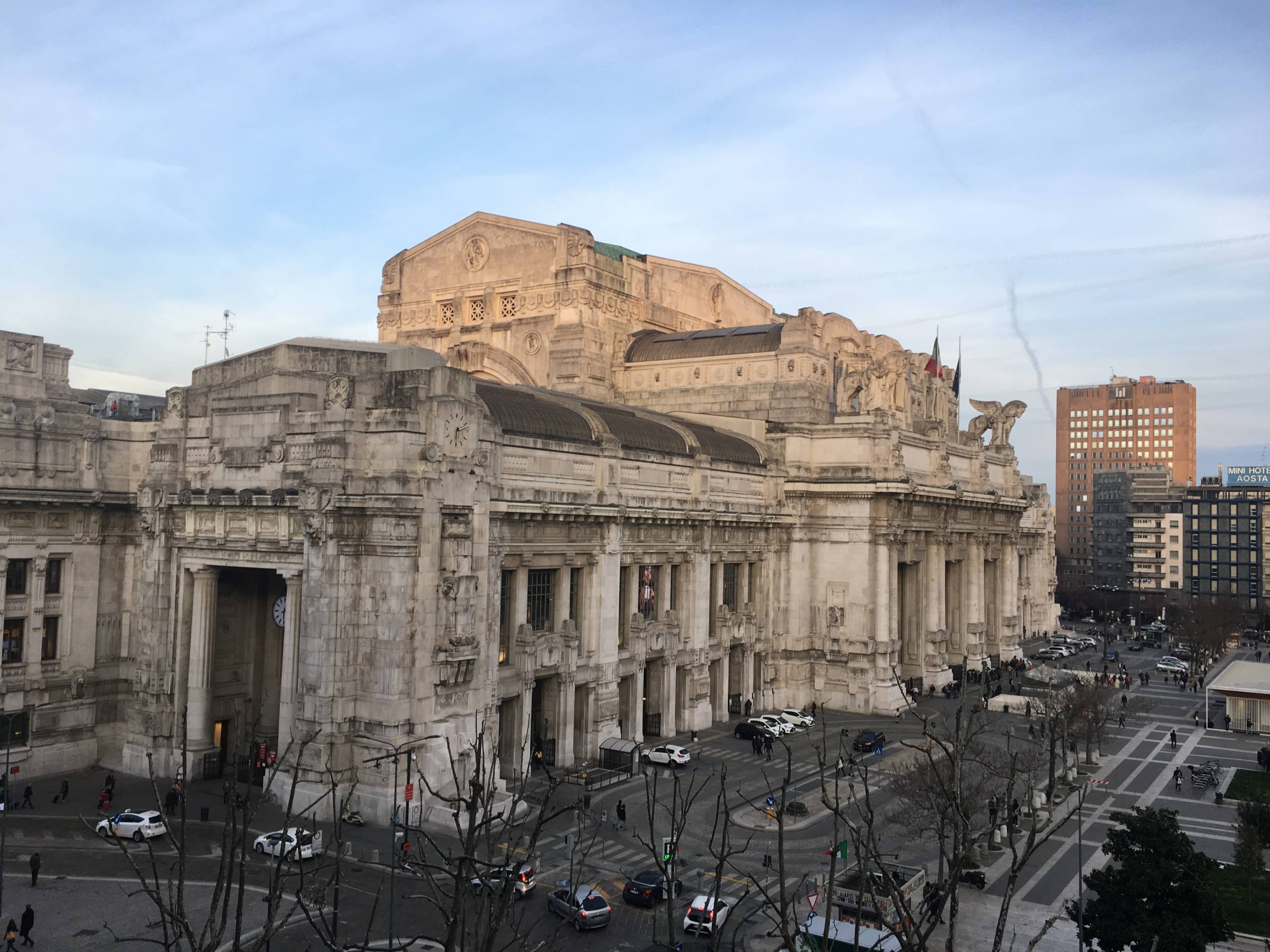
Italy is open for tourism — and as of June 1, both vaccinated and unvaccinated travelers can enter without any COVID-19 vaccination or testing restrictions.
All passengers traveling to Italy had been required to fill out the EU Digital Passenger Locator Form , but that requirement ended on May 1.
In addition, as of June 1 proof of vaccination (the "Green Pass") is no longer required to visit museums, dine in restaurants, use public transportation and access most other indoor venues. Masks are recommended but no longer required on public transport.
Check the U.S. Embassy & Consulates in Italy website for additional information. The latest updates by Italy's Ministry of Foreign Affairs can be found here .
The U.S. State Department's advisory for Italy is Level 2: Exercise Increased Caution .
Kosovo has reopened its borders to Americans and Prishtina International Airport (PRN) is open. According to the U.S. Embassy in Kosovo , as of May 1, travelers can enter Kosovo without proof of vaccination or a negative COVID-19 test, but the embassy says that travelers should bring their vaccination certificate with them because it is still required to enter certain indoor spaces.
The embassy also notes: "Airlines, transit points, and destination countries impose a patchwork of different testing requirements and airlines may refuse boarding for some passengers (including U.S. citizens and Kosovo residents). Airlines have the sole authority to decide who they allow to board their aircraft. Generally, pre-travel testing is recommended."
To dine inside restaurants or enter museums, malls or public institutions, anyone over the age of 16 must show evidence of vaccination or a negative PCR or rapid antigen test.
The U.S. State Department's advisory is Level 2: Exercise Increased Caution .

Americans can visit Latvia and, according to the U.S. Embassy in Latvia , the country ended entry protocols for travelers from non-high-risk countries as of April 1. Currently, the U.S. is not on the high-risk list and Americans can visit whether they are vaccinated or not without the need to pretest or register.
The U.S. State Department's advisory for Latvia is Level 1: Exercise Normal Precautions .
Liechtenstein
Switzerland handles immigration and customs matters for Liechtenstein, meaning that as long as you are qualified to enter Switzerland , you are able to enter Liechtenstein since there's an open border between the two countries.
All Americans had been allowed in for tourism as of June 28, 2021, according to the U.S. Embassy, and as of May 2, 2022, all Americans, no matter their vaccination status, can enter Liechtenstein without any pandemic-related measures.
Travelers can check their eligibility to enter Switzerland and Liechtenstein at the countries' online Travelcheck . They can also check with the Swiss Embassy in Washington, D.C .
All COVID-19-related restrictions for businesses and public transportation have been lifted. Details are here .
The U.S. State Department's advisory for Liechtenstein is Level 1: Exercise Normal Precautions .

Americans can visit Lithuania for any purpose, and as of May 1, according to the U.S. Embassy in Lithuania , all COVID-19-related entry requirements have been lifted.
Information on entry to Lithuania can be found here . Information about the current restrictions and recommendations can be found on the Ministry of Health's webpage .
The U.S. State Department's advisory for Lithuania is Level 1: Exercise Normal Precautions .
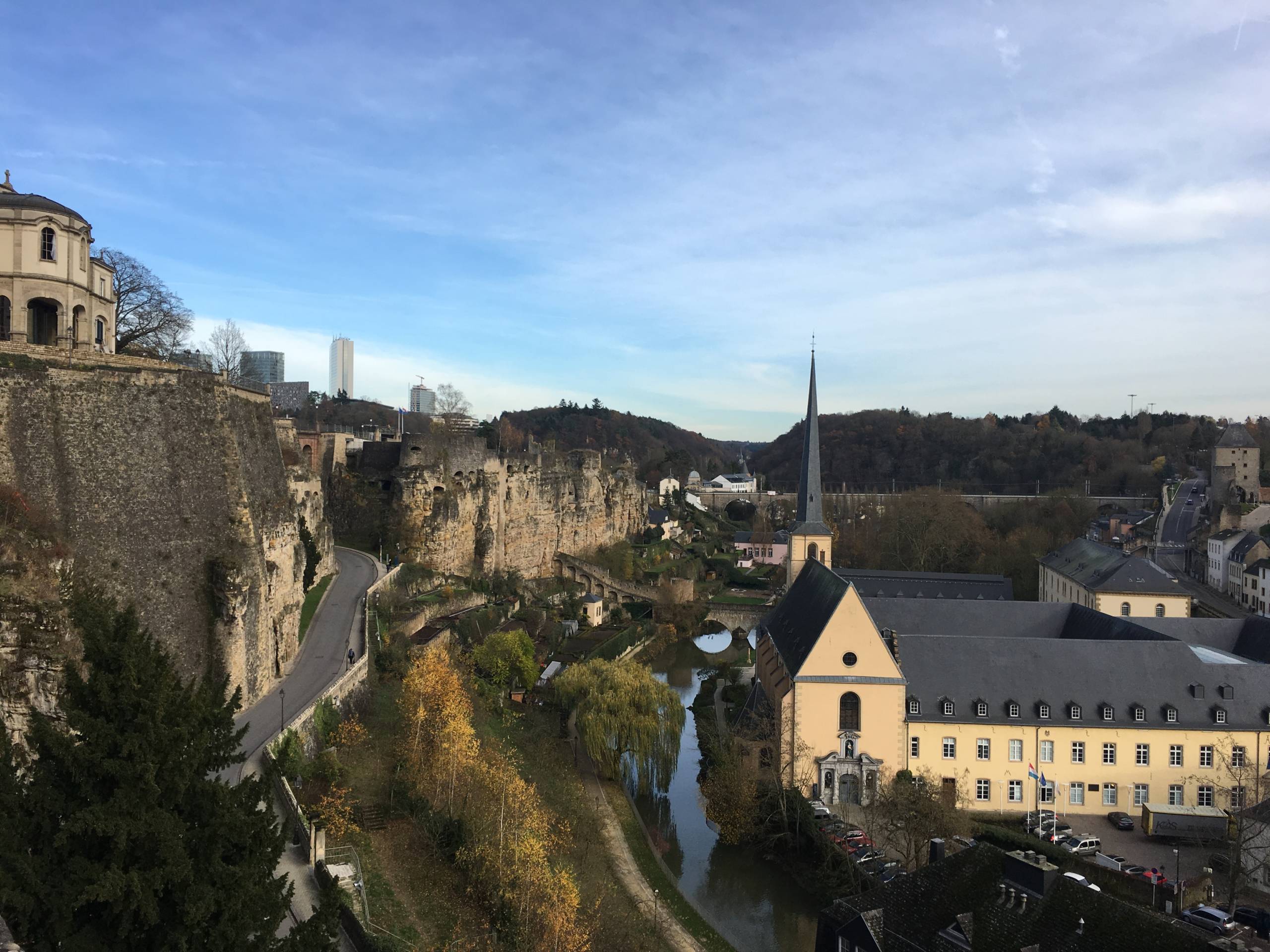
According to the U.S. Embassy in Luxembourg , as of Oct. 1, all travelers from the U.S., regardless of their vaccination status, can enter Luxembourg.
Details on travel to Luxembourg are available here .
Masks and CovidCheck are no longer required for entrance to bars, restaurants, stores or on public transportation (only for hospitals and nursing homes). Read more about Luxembourg's restrictions here .
The U.S. State Department's advisory for Luxembourg is Level 1: Exercise Normal Precautions .
There are no COVID-19-related travel requirements in place for entering Malta.
Details are available on the Ministry of Health website .
Masks are now required only in certain settings such as hospitals and care homes.
The U.S. State Department's advisory for Malta is Level 1: Exercise Normal Precautions.
As of March 16, Moldova has lifted all COVID-19-related entry restrictions and Americans are permitted to enter Moldova.
Check the U.S. Embassy in Moldova's website and the Moldovan Border Police website for more information. Face masks are now recommended but not required in all indoor public spaces.
The U.S. State Department's advisory for Moldova is Level 2: Exercise Increased Caution .
According to the Monaco government's COVID-19 website , as of Aug. 12, access to the principality of Monaco is no longer subject to the presentation of a health pass/vaccination certificate.
France , which dropped all COVID-19-related entry protocols on Aug. 1, handles immigration and customs for Monaco.
The U.S. State Department's advisory for France and Monaco is Level 2: Exercise Increased Caution .
Montenegro is open to Americans and the U.S. Embassy in Montenegro notes that as of March 11, no proof of vaccination, COVID-19 passports/certificates or COVID-19 tests are required to enter Montenegro.
Face masks must be worn on all public transportation and in hospitals and collective accommodations.
The U.S. State Department's advisory for Montenegro is Level 1: Exercise Normal Precautions .
The Netherlands

The Netherlands lifted all remaining COVID-19 entry restrictions as of Sept. 17, meaning all international travelers can visit without proof of vaccination required.
Visit the U.S. Embassy in the Netherlands for additional information and the latest updates from the government of The Netherlands can be found here and here .
The U.S. State Department's advisory for the Netherlands is Level 2: Exercise Increased Caution .
North Macedonia

North Macedonia is now open to all tourists, including Americans, with no testing or vaccination requirements, according to the U.S. Embassy in North Macedonia .
The U.S. State Department's advisory for North Macedonia is Level 1: Exercise Normal Precautions .

As of Feb. 12, Norway's travel restrictions have been lifted. The same rules as prior to the COVID-19 pandemic now apply. There are no requirements for testing, quarantine or registration upon arrival in Norway, according to the U.S. Embassy in Norway .
Detailed information about travel to Norway and national and local COVID-19 prevention measures are available on Health Norway's website .
The U.S. State Department's advisory for Norway is Level 1: Exercise Normal Precautions .

As of March 28, Poland has lifted all vaccination and testing requirements for all arriving travelers, including those from outside the EU/Schengen Area. All U.S. citizens are now permitted to visit.
Details and updates can be found here .
Check with the U.S. Embassy ; additional information is available here .
The U.S. State Department's advisory for Poland is Level 1: Exercise Normal Precautions .
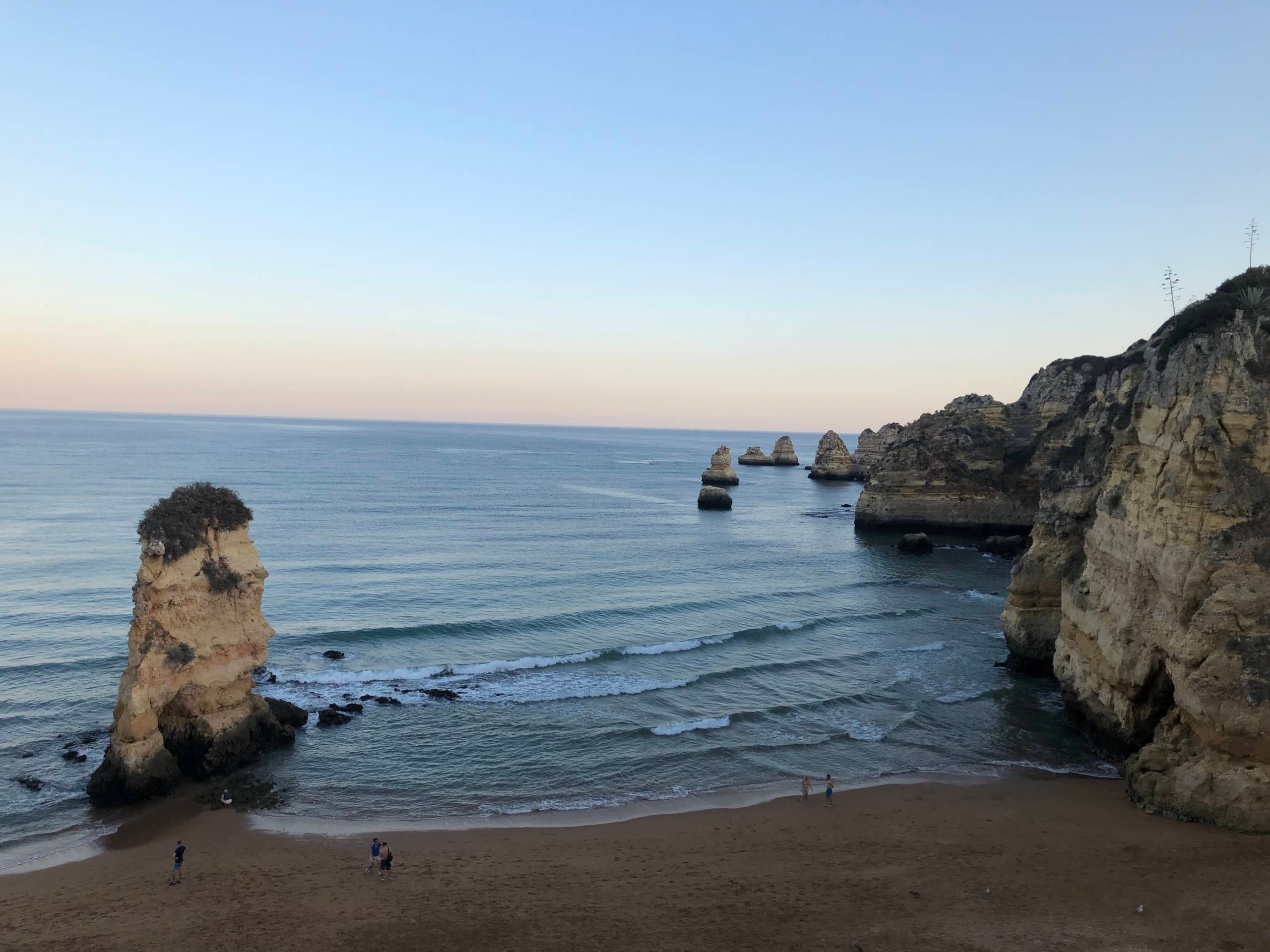
As of July 1, Portugal has dropped all COVID-19-related vaccination and testing restrictions and U.S. travelers can visit without any pre-travel requirements.
More information is available at Visit Portugal and through the U.S. Embassy in Portugal .
Masks are required on public transportation and in health care facilities and nursing homes.
The U.S. State Department's advisory for Portugal is Level 1: Exercise Normal Precautions .
As of March 9, Romania has lifted all COVID-19-related entry restrictions, according to the U.S. Embassy in Romania , and foreign citizens entering Romania no longer need proof of vaccination or a negative test result.
Travelers planning to visit Romania can also check the Embassy of Romania in Washington, D.C. , for updates.
The U.S. State Department's advisory for Romania is Level 1: Exercise Normal Precautions .
Travel to Russia is not advised due to the invasion of Ukraine by Russian forces, which has limited international transportation options as airlines have canceled flights to and from the country. In addition, most cruise lines have canceled scheduled port calls on St. Petersburg .
The Russian government requires that all foreign travelers present proof of a negative COVID-19 PCR test result upon arrival, dated within two days prior to arrival in Russia, along with completion of a digital form that must be printed out and presented to customs in Russia.
The U.S. Embassy in Moscow advises U.S. citizens not to travel to Russia as the country's infrastructure has been unsettled by global sanctions imposed since the Ukraine invasion and because Russia is one of the countries "most affected" by COVID-19. Cases and deaths have surged, hitting record highs through mid-February.
The U.S. State Department's advisory for Russia is Level 4: Do Not Travel .
As of May 3, all travelers entering Serbia no longer need to provide proof of a negative COVID-19 test, according to the U.S. Embassy in Serbia . Most pandemic-related restrictions have gradually been lifted.
The U.S. State Department's advisory for Serbia is Level 2: Exercise Increased Caution .
According to the U.S. Embassy in Slovakia , as of April 6, all COVID-19-related requirements for entry to Slovakia are canceled, regardless of vaccination status, and Americans are allowed to visit for tourism.
As of April 23, most social restrictions were ended and masks are no longer required in public spaces other than health care settings.
The U.S. State Department's advisory for Slovakia is Level 1: Exercise Normal Precautions .
Slovenia has ended its RVT (recovered, vaccinated or tested) rule for entry, according to the Slovenian Tourist Board . Additional information is available here .
Check the U.S. Embassy in Slovenia website for additional information.
All travelers entering Slovenia by air or sea still need to fill out a digital passenger locator form .
The State Department's advisory for Slovenia is Level 1: Exercise Normal Precautions .

On Oct. 21, Spain dropped all remaining COVID-19-related entry requirements , becoming one of the last countries in Europe to do so.
Further details can be found here or on the U.S. Embassy in Spain's website .
The U.S. State Department's advisory for Spain is Level 2: Exercise Increased Caution .

As of April 1, Sweden has lifted all COVID-19-related entry restrictions and bans. Those traveling to the country do not require proof of vaccination or a negative test, according to the Swedish Border Police .
The U.S. Embassy in Sweden also has information on traveling to Sweden.
As of Feb. 9, Sweden has dropped all domestic COVID-19-related restrictions, including the wearing of face masks on public transit and capacity limits and vaccine requirements for restaurants.
The U.S. State Department's advisory for Sweden is Level 1: Exercise Normal Precautions .
Switzerland

According to the U.S. Embassy in Switzerland , as of May 2, 2022, all Americans, vaccinated or not, can visit Switzerland without any COVID-19-related protocols.
Travelers can check their eligibility to enter Switzerland at the country's online Travelcheck . They can also check with the Swiss Embassy in Washington, D.C .
All COVID-19-related restrictions for business and public transportation have also been lifted as of May 2. Details are here .
The U.S. State Department's advisory for Switzerland is Level 1: Exercise Normal Precautions .
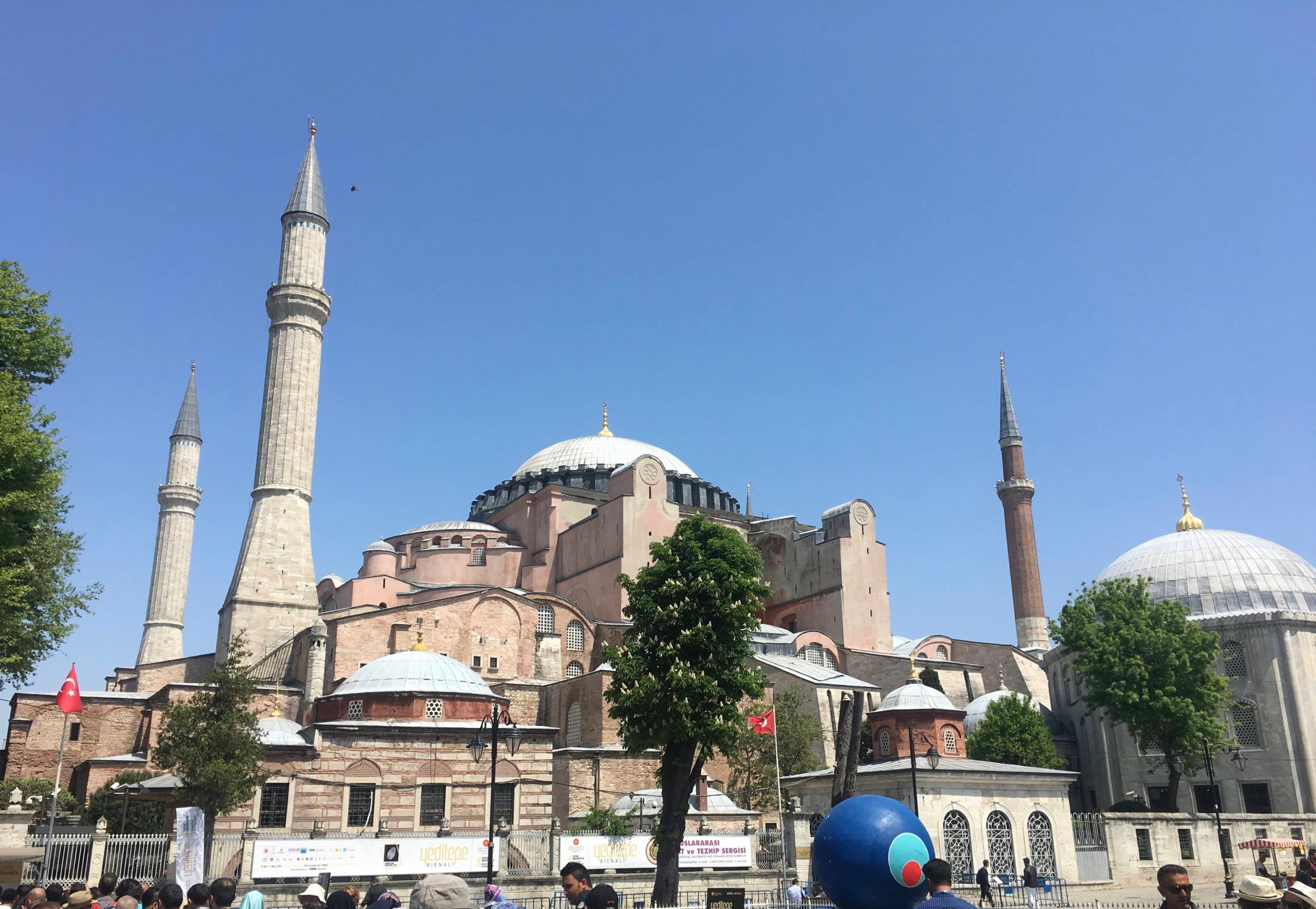
Turkey's international borders are open for travelers from a number of countries, including the U.S., according to the U.S. Embassy in Turkey .
As of June 1, Turkey has dropped all COVID-19-related entry requirements, so proof of vaccination or a negative COVID-19 test is no longer required.
The Turkish Ministry of Health announced on March 2 that masks are no longer required outdoors and indoors if air circulation and social distancing are adequate. Restaurants are open without restrictions.
The U.S. State Department's advisory for Turkey is Level 2: Exercise Increased Caution .
Due to the heavy and sustained armed war with Russia within Ukraine, as well as the government's state of emergency and COVID-19, any travel to Ukraine at this time is not advised. Those U.S. citizens currently in Ukraine should depart immediately, per the U.S. Embassy in Ukraine .
All U.S. citizens age 12 and older who choose to enter Ukraine from the U.S. or another "Red Zone" country must present proof of a negative COVID-19 PCR or rapid antigen test taken within 72 hours of arrival; or, they can present a document confirming the receipt of a full course of vaccination against COVID-19 with vaccines on the WHO's list of approved vaccines.
U.S. citizens traveling to Ukraine must also demonstrate that they have medical insurance covering all expenses related to COVID-19 treatment while in Ukraine.
Since Aug. 5, 2021, all foreign tourists over 18 years old who have not been vaccinated must self-isolate for 10 days and monitor such via the Vdoma mobile app, to be shortened by testing negative within three days. Quarantine is not required if you are in the country for less than 72 hours.
Mask-wearing is mandatory on public transportation and in indoor public spaces.
The U.S. State Department's advisory for Ukraine is Level 4: Do Not Travel .
United Kingdom
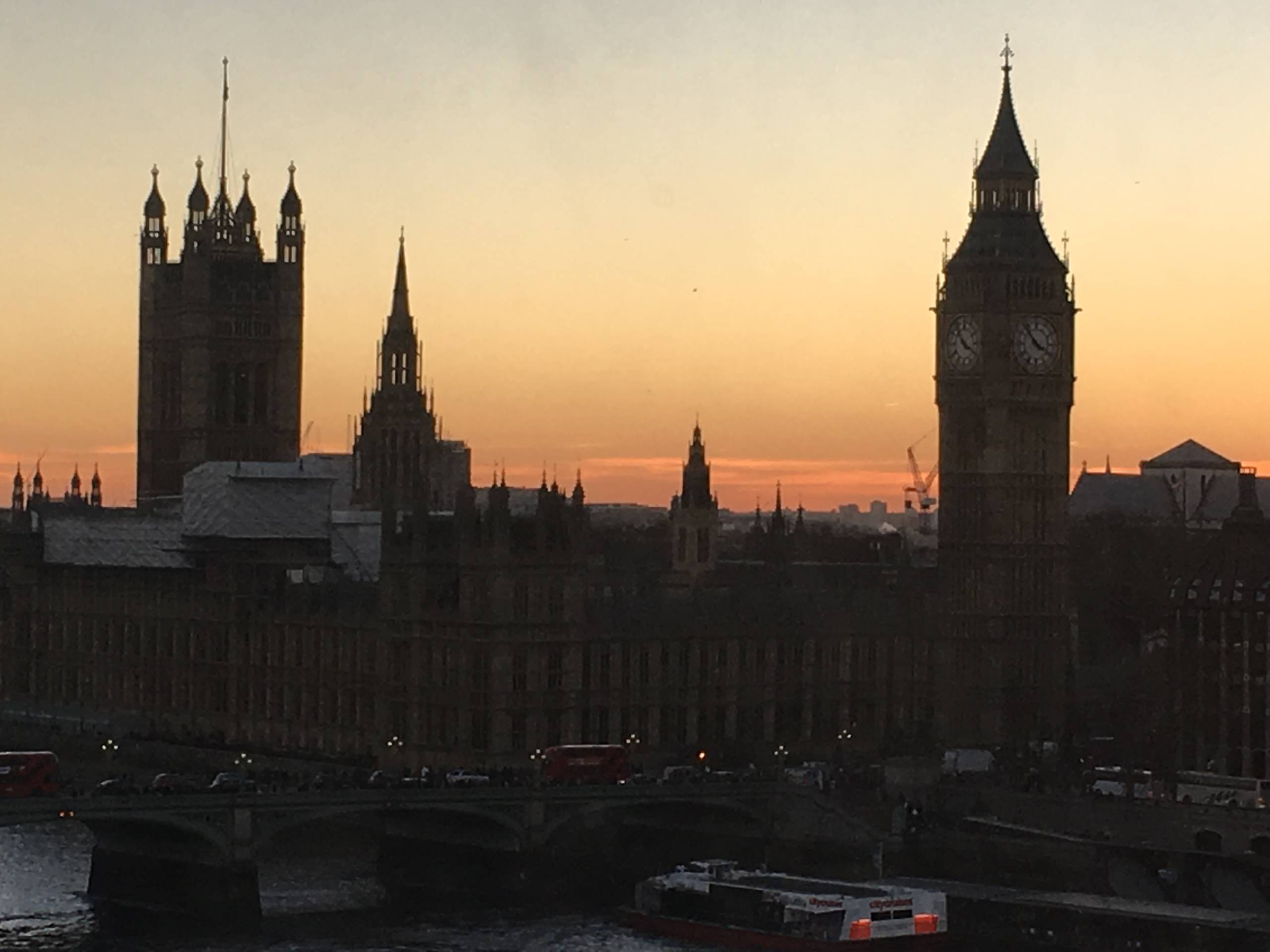
As of March 18, the United Kingdom has lifted all COVID-19-related entry requirements, so U.S. travelers no longer need to show proof of vaccination, recovery or a negative test to enter. The need to fill out an online passenger locator pass has also ended.
All four nations that comprise the U.K. have separate COVID-19 regulations: England's are here , Scotland's are here , Northern Ireland's are here and Wales' are here ..
The U.S. State Department's advisory for the U.K. is Level 2: Exercise Increased Caution .
Visit the U.S. Embassy in the United Kingdom for regular updates.
Central America

Philip Goldson International Airport (BZE) reopened on Aug. 15, 2020, and the return of tourism began on Oct. 1, 2020, with travel requirements in place. But as of July 12, Americans and all international visitors are welcome to visit Belize without any vaccination or testing requirements required. As of April 1, the country also removed all remaining in-country COVID-19-related restrictions, including mask mandates. Details are available here .
All travelers to Belize are advised to purchase local travel health insurance ($18 per person for a visit lasting up to 21 days) from Belize Travel Insurance , but it is not required.
The U.S. State Department's advisory for Belize is Level 2: Exercise Increased Caution .
Costa Rica — which reopened to Americans on Nov. 1, 2020 — repealed its COVID-19-related entry requirements as of April 1, 2022. Details can be found here .
Most businesses are open and face masks are recommended but no longer mandatory in all indoor public settings. Beaches are open and national parks are welcoming visitors at 100% capacity.
Travelers can also check the U.S. Embassy in Costa Rica website for information.
The U.S. State Department's travel advisory for Costa Rica is Level 2: Exercise Increased Caution .
El Salvador
The country of El Salvador reopened for commercial flights to Óscar Arnulfo Romero International Airport (SAL) in San Salvador on Sept. 19, 2020.
Local businesses are open with no restrictions. According to the U.S. Embassy in El Salvador , as of Nov. 17, 2021, the government of El Salvador removed the COVID-19 test and/or vaccination requirements for entry. Travelers are advised to confirm with their airlines that the airline understands and has implemented this change to avoid complications at their departure airport.
The country has said arriving passengers will face temperature checks. A curfew is currently not in place and there are no quarantine requirements for visitors.
The U.S. State Department's travel advisory for El Salvador is Level 3: Reconsider Travel .
Guatemala began slowly reopening to tourism on Sept. 18, 2020, and La Aurora International Airport (GUA) is accepting international arrivals. As of Aug. 12, the country removed all COVID-19-related entry protocols, according to the U.S. Embassy in Guatemala .
Upon arrival, travelers must pass through health checkpoints and masks are required in some public settings.
The U.S. State Department's advisory for Guatemala is Level 3: Reconsider Travel .
Honduras reopened for tourists from all countries on Aug. 17, 2020, with its international airports in operation. Spirit Airlines has resumed service from Fort Lauderdale and Houston, and American Airlines is flying from Miami.
Entering visitors must complete a government registration form and print it, as well as present their original vaccination certificate indicating they are 14 days or more past completing their vaccination or proof of a negative COVID-19 PCR or rapid antigen test taken within 72 hours of check-in at the airport. They will also be required to sign an affidavit and complete customs forms.
Updates on guidelines can be found on the U.S. Embassy in Honduras website .
The U.S. State Department's advisory for Honduras is Level 3: Reconsider Travel .

Nicaragua never really shut down. There were never any stay-at-home or social distancing orders and there are continued questions about how many cases Nicaragua actually has had. In addition, only limited flights from the U.S. have resumed (on Avianca and Copa).
The U.S. Embassy in Nicaragua notes that U.S. travelers are allowed to enter Nicaragua, and proof of COVID-19 vaccination or a negative COVID-19 test result taken within 72 hours of travel is required for entry. Travelers should also be prepared for additional health screenings and may be asked to produce their negative test results. Anyone entering Nicaragua from a country with a known yellow fever risk must also show proof of vaccination at least 10 days prior to arrival.
The U.S. State Department's advisory for Nicaragua is Level 3: Reconsider Travel .
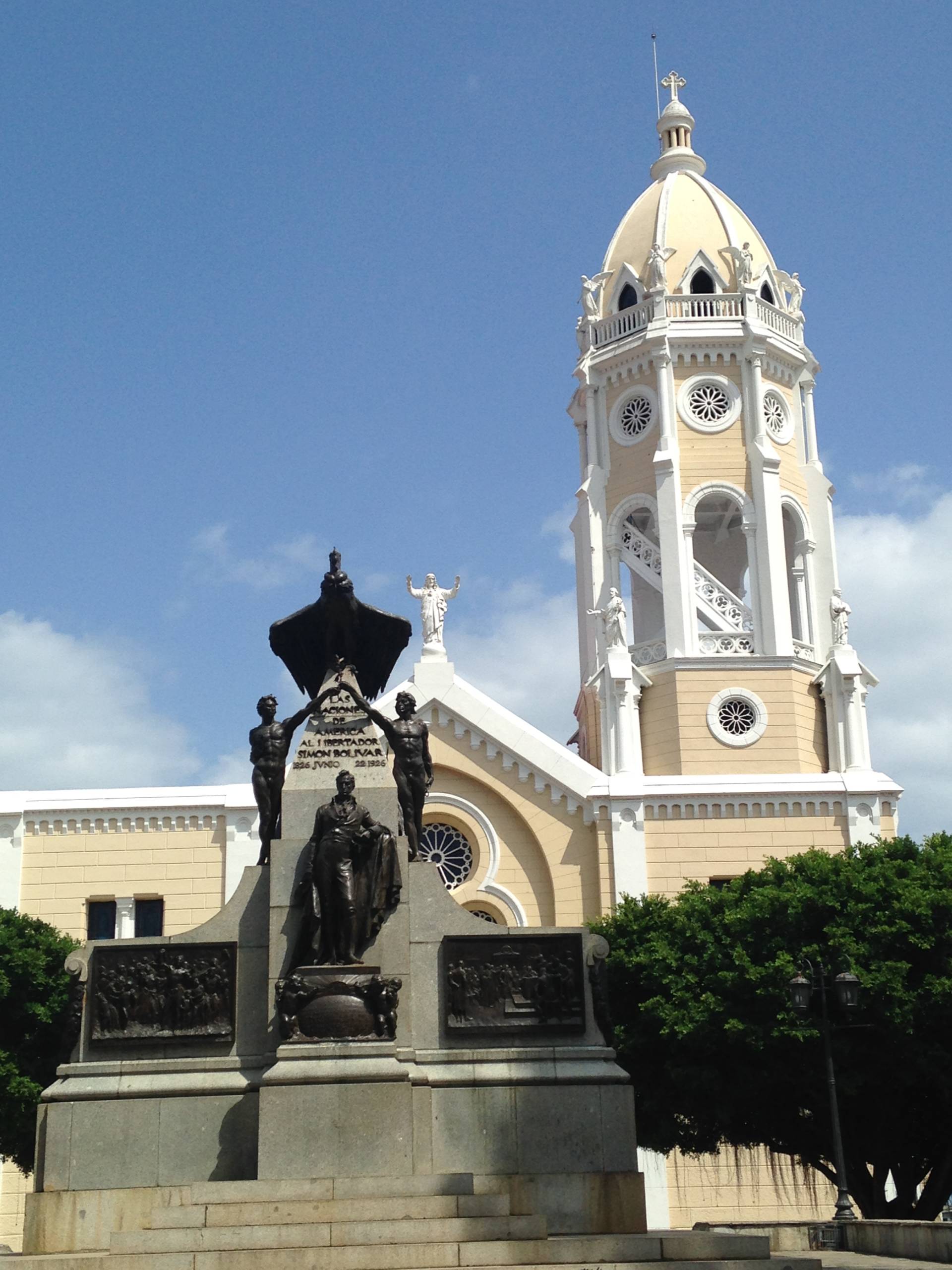
Panama reopened its airport in late August 2020 and tourism resumed on Oct. 12, 2020. The country lifted all remaining COVID-19 entry restrictions for travelers on Sept. 16. Details are available here .
As of July 11, face masks are required only on public transportation and in hospital and health care settings.
The U.S. Embassy in Panama notes on its website that the U.S. State Department has issued a Level 2: Exercise Increased Caution advisory.
South America
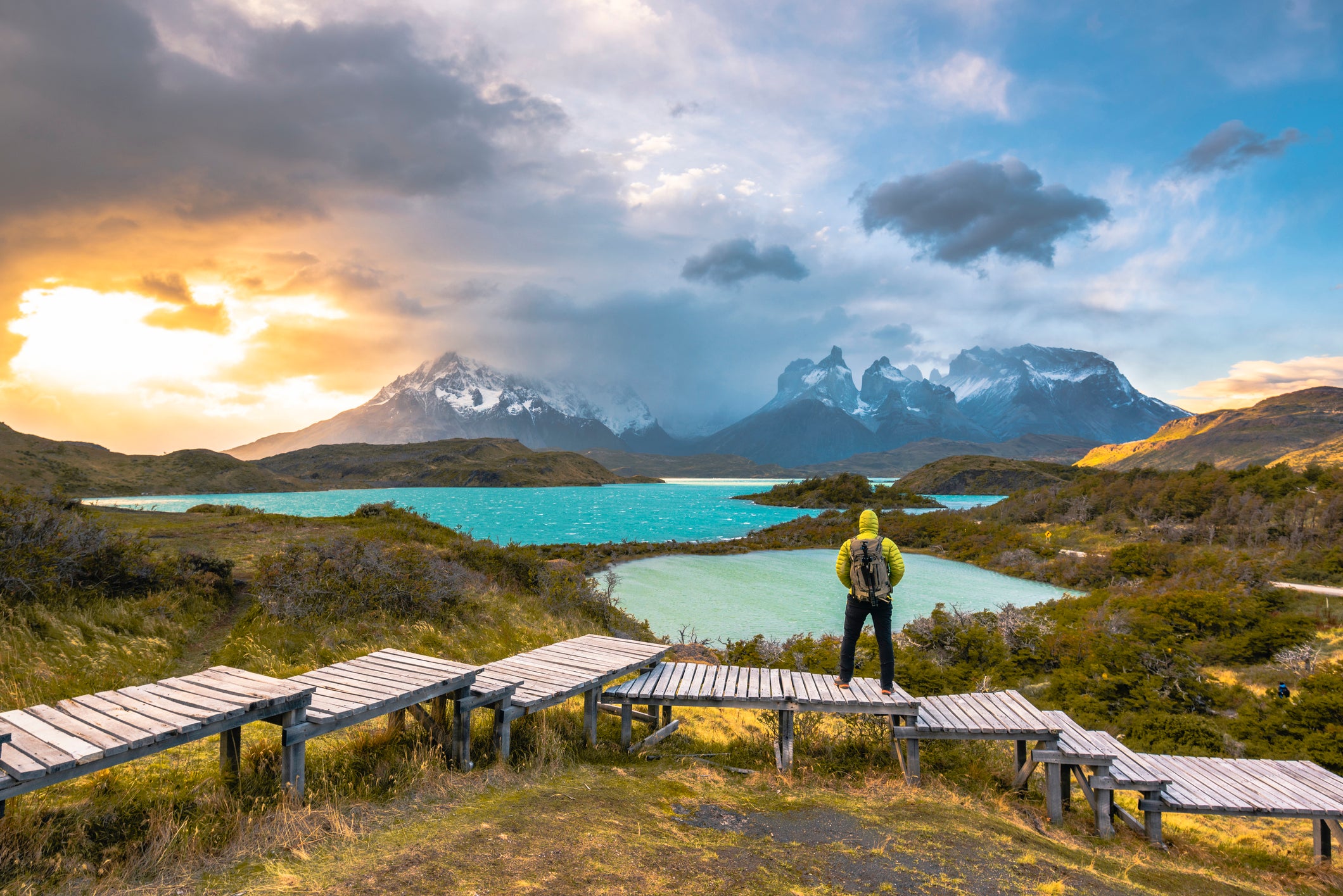
Argentina had one of the world's strictest travel bans, restricting all international visitors until Nov. 1, 2021, when fully vaccinated foreigners (including Americans) were allowed to enter the country. As of early April 2022, all international visitors are welcome, without the need to be vaccinated or tested. See details here .
Visit the U.S. Embassy in Argentina for additional information.
The U.S. State Department advisory for Argentina is Level 1: Exercise Normal Precautions .
Bolivia had been off-limits to tourists, but the country is now open to visitors, according to the U.S. Embassy in Bolivia , with a notation that travelers should be prepared for additional travel restrictions affecting international travel to be put into effect with little or no advance notice.
U.S. citizens will need to obtain a tourist visa ($160 and valid for 30 days).
Entry rules now require travelers to Bolivia, regardless of their country of origin, to present either a COVID-19 vaccination certificate or submit proof of a certified negative COVID-19 PCR test taken within 72 hours of their flight or a negative antigen test taken within 48 hours (children 5 years old and younger are exempt).
Face masks are required in some public spaces.
The U.S. Embassy reports that commercial flights have resumed — Boliviana de Aviacion has flights between La Paz and Miami — but travelers should expect that additional restrictions affecting international travel could be put in place with little advance notice.
The U.S. State Department's travel advisory for Bolivia is Level 2: Exercise Increased Caution .
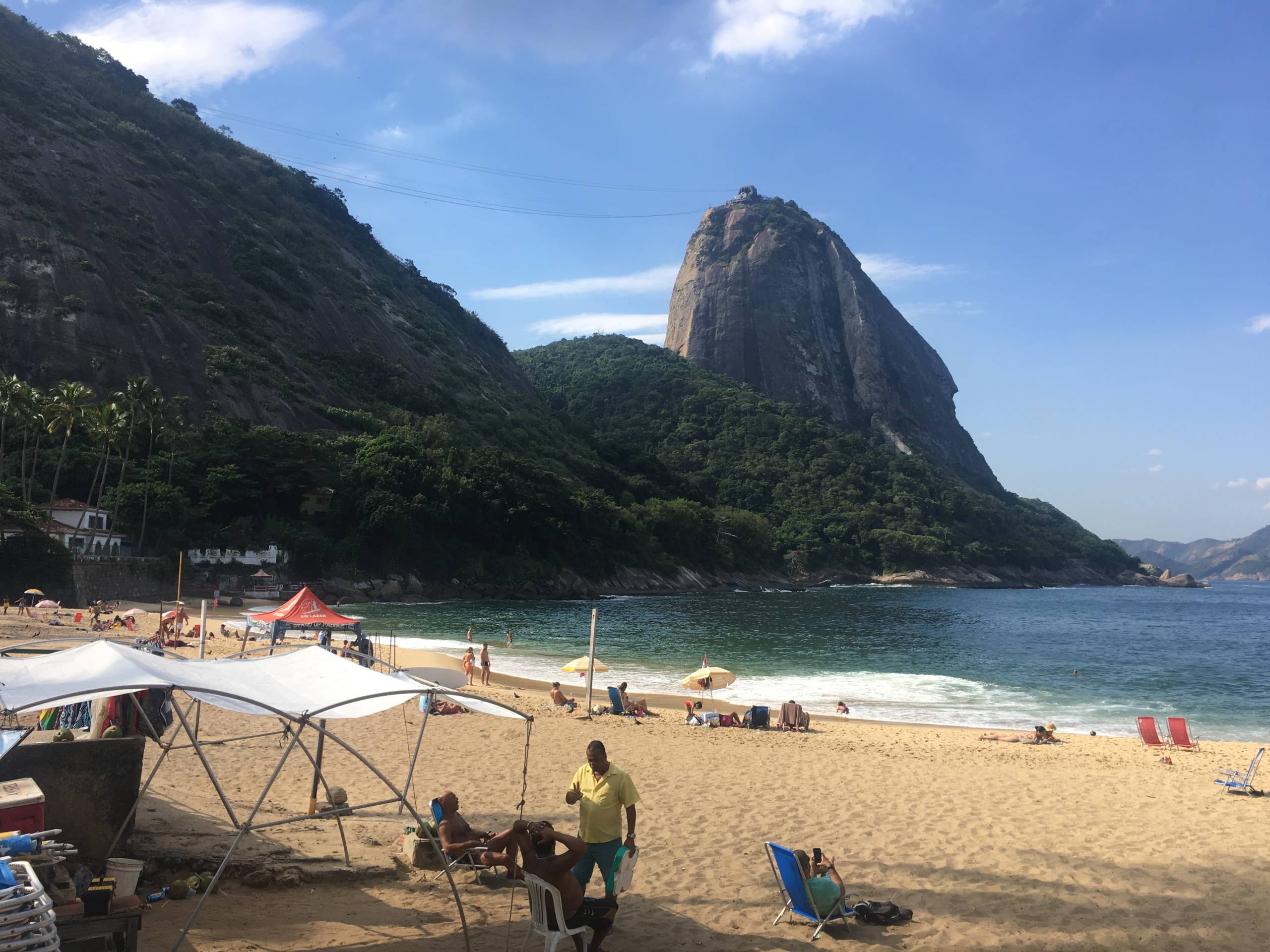
Brazil, a large and populous country, has had the most coronavirus cases in South America. As of Sept. 12, all international travelers, both fully vaccinated and those who are unvaccinated with a negative pre-travel test, are welcome to visit Brazil. Details can be found here .
Fully vaccinated travelers to Brazil are required to present proof of full vaccination to their airline. It can be electronic or printed, but proof in the form of just a QR code will not be accepted.
Unvaccinated travelers must present proof of a negative COVID-19 PCR test or a negative laboratory antigen test taken within one day of boarding.
Brazil no longer requires proof of health insurance for entry, but the U.S. State Department continues to recommend that all travelers purchase insurance before departing the U.S. For updates, check the U.S. Embassy in Brazil's website.
The U.S. State Department's travel advisory for Brazil is Level 2: Exercise Increased Caution .
Chile is welcoming international travelers — and proof of vaccination or a negative COVID-19 test is once again required as of Sept. 1.
According to both the U.S. Embassy in Chile and the Chile Tourism website , any noncitizen or nonresident planning to enter Chile must do the following:
- Travelers age 18 and older to Chile need to provide proof of vaccination when boarding their flight to Chile or proof of a negative COVID-19 PCR test taken within 48 hours of boarding. Random testing may also occur upon or after arrival.
- Travelers visiting the remote Chilean island of Rapa Nui (Easter Island) must be fully vaccinated, have official reservations and fill out a Single Entry Form .
The U.S. State Department's travel advisory for Chile is Level 2: Exercise Increased Caution .
American tourists can visit Colombia, where international flights resumed on Sept. 21, 2020, according to the U.S. Embassy in Colombia . As of May 1, 2022, all visitors age 18 and older need to provide proof of full vaccination or a negative COVID-19 PCR test taken within 72 hours or a negative antigen test taken within 24 hours of their departure to Colombia.
Current requirements also call for all visitors to complete the online pre-travel registration form " Check-Mig " within 72 hours of their flight departure time. Further details are available here .
The U.S. State Department's advisory for Colombia is Level 3: Reconsider Travel .
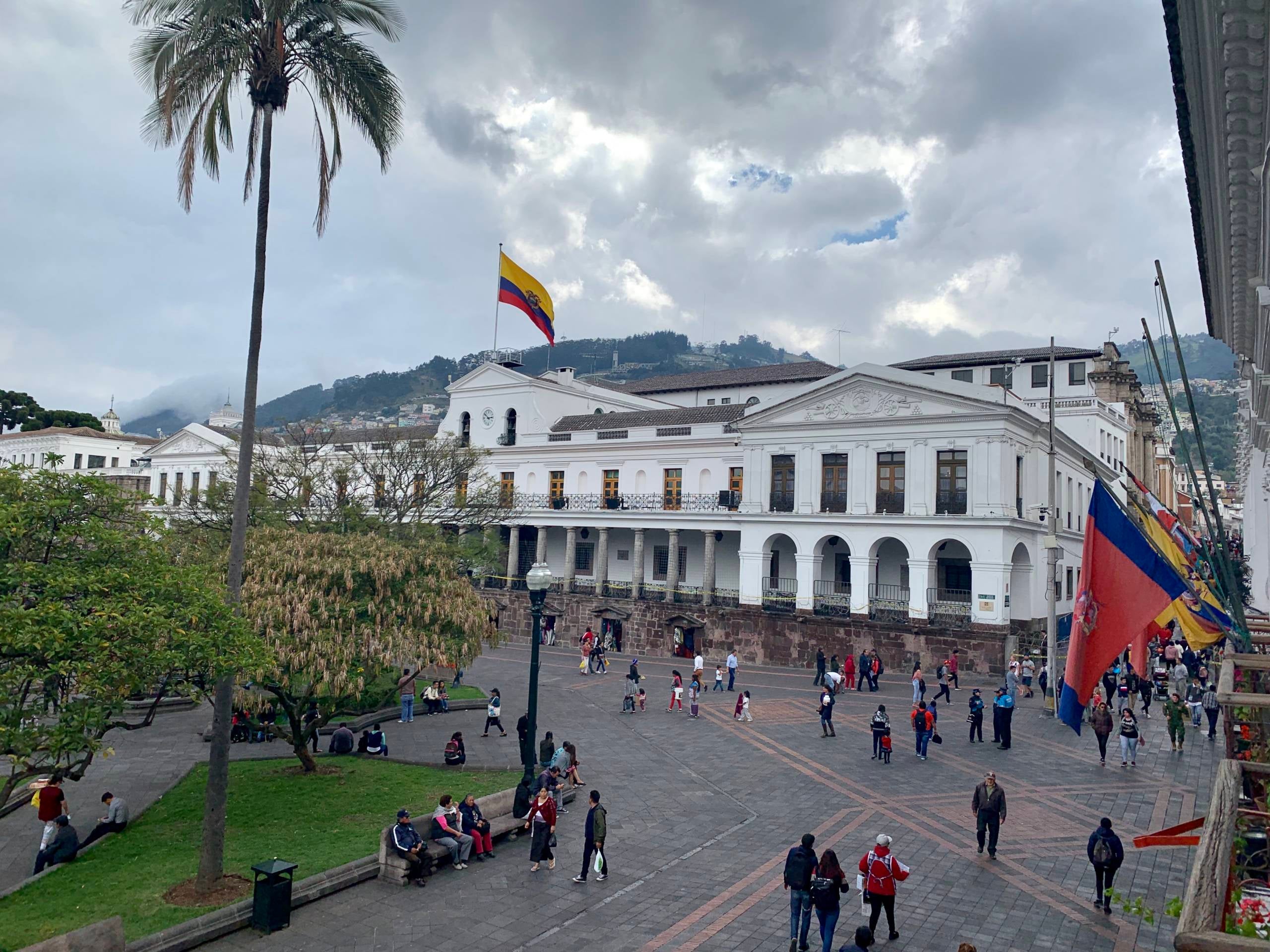
Ecuador is open for tourism, and as of Oct. 20, all COVID-19-related entry requirements for both the mainland and the Galapagos Islands have ended, per the Ecuador Tourism website . However, all visitors must still fill out an online health declaration form and visitors to the Galapagos are still required to present a "transit control card" issued by the Government of Galapagos. See details here .
The U.S. State Department's travel advisory for Ecuador is Level 2: Exercise Increased Caution .
Visit the U.S. Embassy in Ecuador website for additional information.
According to the U.S. Embassy , vaccinated Americans can visit Guyana. As of June 18, all travelers over the age of 12 must present proof of being fully vaccinated against COVID-19 (at least two weeks past their final shot). Predeparture testing is no longer required to enter Guyana.
Restaurants are open and dining is allowed at 100% capacity. Mask-wearing in public is no longer mandatory but is strongly encouraged.
The U.S. State Department's travel advisory for Guyana is Level 3: Reconsider Travel .
According to the U.S. Embassy in Paraguay , the country no longer requires proof of vaccination or a negative COVID-19 test to enter.
The embassy also says that U.S. citizens do not need a visa for visits of up to 90 days for tourism or business. Face masks are no longer mandatory, but are recommended.
The U.S. State Department's advisory for Paraguay is Level 1: Exercise Normal Precautions .
The U.S. Embassy in Peru reports that direct flights from the U.S. are available and as of Nov. 1, Americans are now welcome to enter Peru without proof of COVID-19 vaccination or a negative test result.
Check the Peru Tourism website for additional updates.
The U.S. State Department's advisory for Peru is Level 3: Reconsider Travel .
Uruguay reopened to fully vaccinated international travelers on Nov. 1, 2021, and commercial flights have resumed. According to the U.S. Embassy in Uruguay , unvaccinated travelers can enter with testing. Here's what's required:
- Vaccinated travelers require proof of vaccination, but no longer require a pre-travel negative test.
- Unvaccinated travelers require proof of a negative PCR or antigen test taken within 72 hours before initiating travel (minors under age 6 are exempt)
- Proof of health insurance effective in Uruguay for the duration of your stay is required for all foreign travelers entering Uruguay.
While travelers are no longer required to wear masks, the State Department recommends wearing face coverings inside crowded buildings and on public transportation.
The U.S. State Department's advisory for Uruguay is Level 2: Exercise Increased Caution .
Current entry protocols require that U.S. travelers apply for and obtain a visa and all arriving air passengers must present proof of full vaccination, either with a physical card or a digital card (with a QR code). A booster dose is required if the second dose was more than 270 days prior. If unvaccinated, a negative COVID-19 PCR test taken within 72 hours of arrival is required. There are health screenings upon arrival, but no quarantine is currently required.
For additional information, check with the U.S. Embassy in Venezuela .
The U.S. State Department has issued a Level 4: Do Not Travel advisory .
Bangladesh requires international visitors, including those from the U.S. States, to be fully vaccinated or present proof of a negative COVID-19 test result, according to the U.S. Embassy in Bangladesh .
U.S. citizens need a valid visa or "no visa required" seal to enter. Fully vaccinated travelers do not need to present proof of a negative pre-travel test, but those age 12 and older who are unvaccinated or partially vaccinated must have a negative COVID-19 PCR test result taken within 72 hours of travel to Bangladesh.
The U.S. State Department's advisory for Bangladesh is Level 2: Exercise Increased Caution .
Cambodia, which reopened for tourism early in 2022 now has no pre-travel testing or proof of vaccination required for visitors as of Oct. 6, according to the U.S. Embassy in Cambodia .
All travelers must obtain a visa to enter the country and are encouraged to purchase COVID-19 health insurance valid in Cambodia.
The U.S. State Department's advisory for Cambodia is Level 1: Exercise Normal Precautions .
China was where COVID-19 emerged, and the country suspended entry for nearly all foreigners — including all foreign spectators for the Beijing Winter Olympics, which took place Feb. 4-20, 2022 — and slashed the volume of international passenger flights to and from the country in March 2020. An outbreak in Xian in December 2021 and January 2022 resulted in a monthlong lockdown of the city's 13 million residents and another wave in March resulted in lockdowns in Shanghai and Guangzhou. Ongoing "zero-COVID" lockdowns have resulted in protests around the country in November that the government moved quickly to suppress , later announcing an easing to the length of the lockdowns it imposes.
The State Department's travel advisory for China remains at Level 3: Reconsider Travel , mainly due to arbitrary enforcement of local laws.
Strict anti-travel measures remain in place and tourism isn't allowed. The U.S. Embassy in China says that U.S. citizens with valid resident permits and visas can enter China "under certain conditions."
The latest health notice posted by the Embassy of the People's Republic in the U.S. on Nov. 12 requires that travelers to China obtain a COVID-19 PCR (nucleic acid) test from a certified lab, taken within 48 hours of departure, and then apply for a "health code" to receive a verified "green code" to present when boarding their flight. According to the U.S. Embassy, all arriving passengers are then screened and subject to a minimum 10-day quarantine. They may also be required to install location-tracking software on their phones to access public spaces and businesses.
For additional details on requirements for traveling to China, check with the Chinese Embassy in Washington, D.C., the U.S. Embassy in China and with your airline.
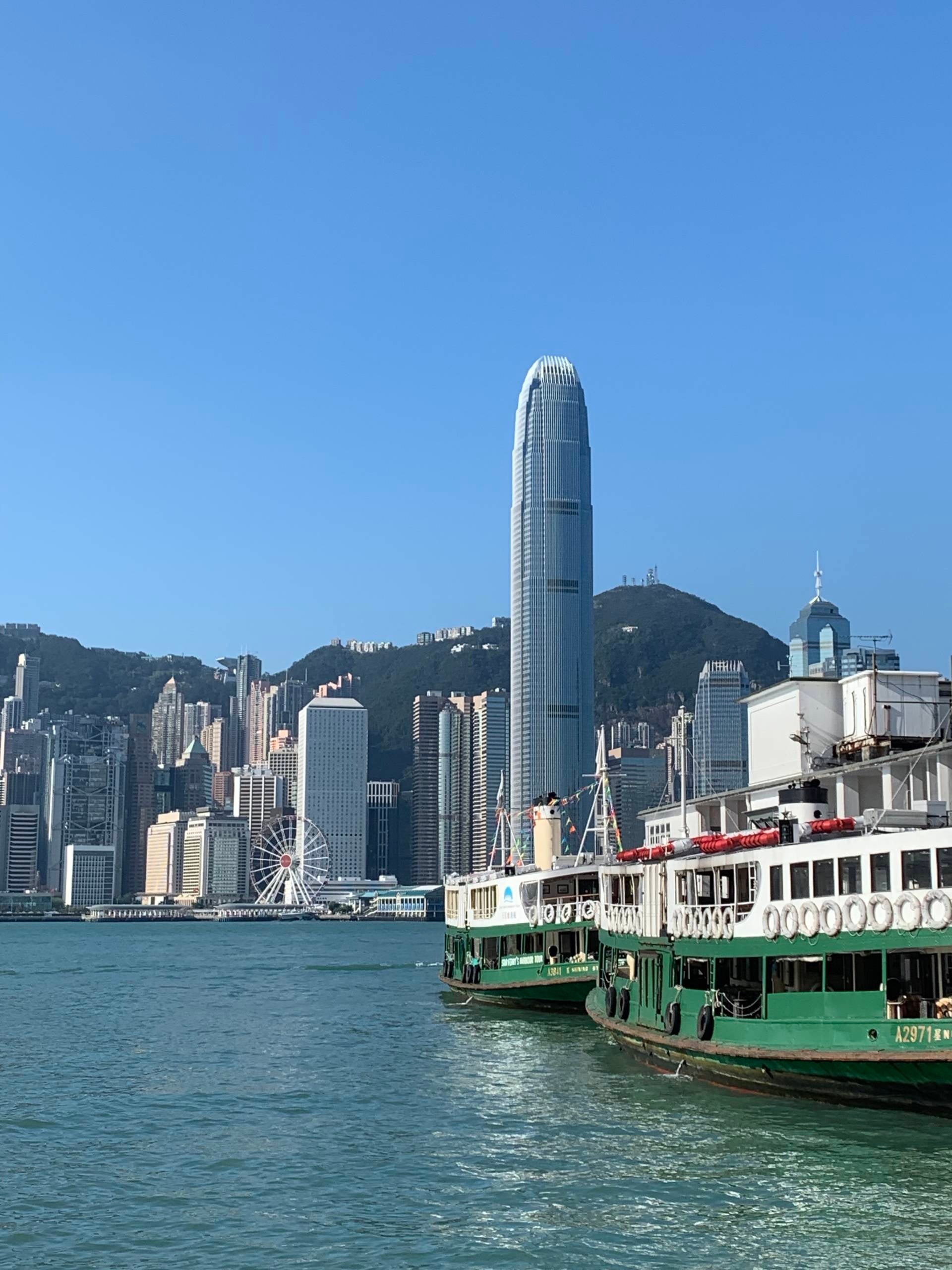
As of May 1, nonresident foreigners who are fully vaccinated can again enter Hong Kong, but proof of vaccination and multiple tests, both before departure and after arrival, are required.
According to the U.S. Consulate General Hong Kong & Macau , Americans can visit Hong Kong, but they must present either a record of full vaccination; a letter from a doctor certifying recovery from COVID-19 plus one dose of a recognized COVID-19 vaccine; or a letter from a doctor attesting to the traveler's inability to receive a COVID-19 vaccine due to a medical condition. Unvaccinated children under the age of 12 are permitted to enter Hong Kong when accompanying a vaccinated parent or caregiver.
As of Sept. 23, all travelers also must take a laboratory rapid antigen test within 24 hours of their flight and declare the negative result on an online Health & Quarantine Information Declaration . They must then present the generated QR code when checking in for their flight.
All mandatory hotel quarantine requirements have ended, but according to the U.S. Consulate General, upon arrival, all travelers will undergo a COVID-19 PCR test, with results available in 24 hours. They will be released immediately to begin a seven-day period of medical surveillance at their homes or accommodation. During the first three days, they will have an amber code and must avoid certain places under the Vaccine Pass scheme. During the remaining four days of medical surveillance, they will have a blue code and face no movement restrictions. On Day 2 (i.e. the day after arrival), they must undergo a PCR test at a community testing center (for free) or at a government-recognized medical facility (for a fee), and they must conduct RATs on days 1-7. A positive result on any of these tests, with accompanying COVID symptoms, will result in immediate hospitalization; a positive result with no symptoms will result in transfer to a Community Isolation Centre or COVID hotel. Please note that arriving travelers without Hong Kong cell phone numbers may have trouble receiving communications from Hong Kong health authorities concerning their COVID test results.
Complete details are available here and here .
Transit passengers are allowed as of April 1, according to Airport Authority Hong Kong. Transit passengers are international travelers who are only flying into Hong Kong in order to catch another flight. Transit passengers cannot leave the airport.
Related: Hong Kong airport to allow transit passengers as part of reopening
Additional details on entry requirements and testing for travelers are here and here . FAQ can be found here .
The U.S. State Department's advisory for Hong Kong is Level 3: Reconsider Travel .
The U.S. Embassy in India notes that travel to India for tourism and other short-term purposes has resumed fully for individuals holding tourist or e-tourist visas. Valid visas, which were previously suspended due to COVID-19-related precautions, have been fully reinstated and are valid for travel until their printed expiration dates.
According to the U.S. Embassy, all international passengers age 5 and older must either present a vaccination certificate proving full vaccination (India recognizes the CDC vaccination card) or a negative COVID-19 PCR test result taken within 72 hours of travel. As of Nov. 22, it is no longer necessary to upload the certificate or test results to the Air Suvidha portal .
Passengers may be tested again upon arrival (2% will be selected at random) and must self-monitor for 14 days. U.S. citizens who must travel to India are strongly urged to get fully vaccinated before travel and continue to take personal health safety measures to protect themselves.
The U.S. State Department's advisory for India is currently Level 2: Exercise Increased Caution .
Indonesia is open again for tourism. On Feb. 4, 2022, Bali reopened to all fully vaccinated international visitors . And now the entry protocols are the same throughout Indonesia.
According to the U.S. Embassy in Indonesia , travelers age 18 and older entering the country through airports, seaports and land borders must be fully vaccinated, but pre-travel testing is no longer required. They will undergo a symptom check upon arrival and travelers may be tested if their temperature is above 99.5 degrees. All travelers are also required to have international health insurance valid for COVID-19 treatment and medical evacuation from Indonesia and download the PeduliLindungi app.
Travelers who cannot be vaccinated for medical reasons and have a letter from a medical doctor are allowed to enter, but are required to undergo a five-day quarantine. There is no quarantine for fully vaccinated travelers.
Travelers must also have a short-visit visa or other entry permit; visas upon arrival are again available.
The U.S. State Department's travel advisory for Indonesia is Level 2: Exercise Increased Caution .
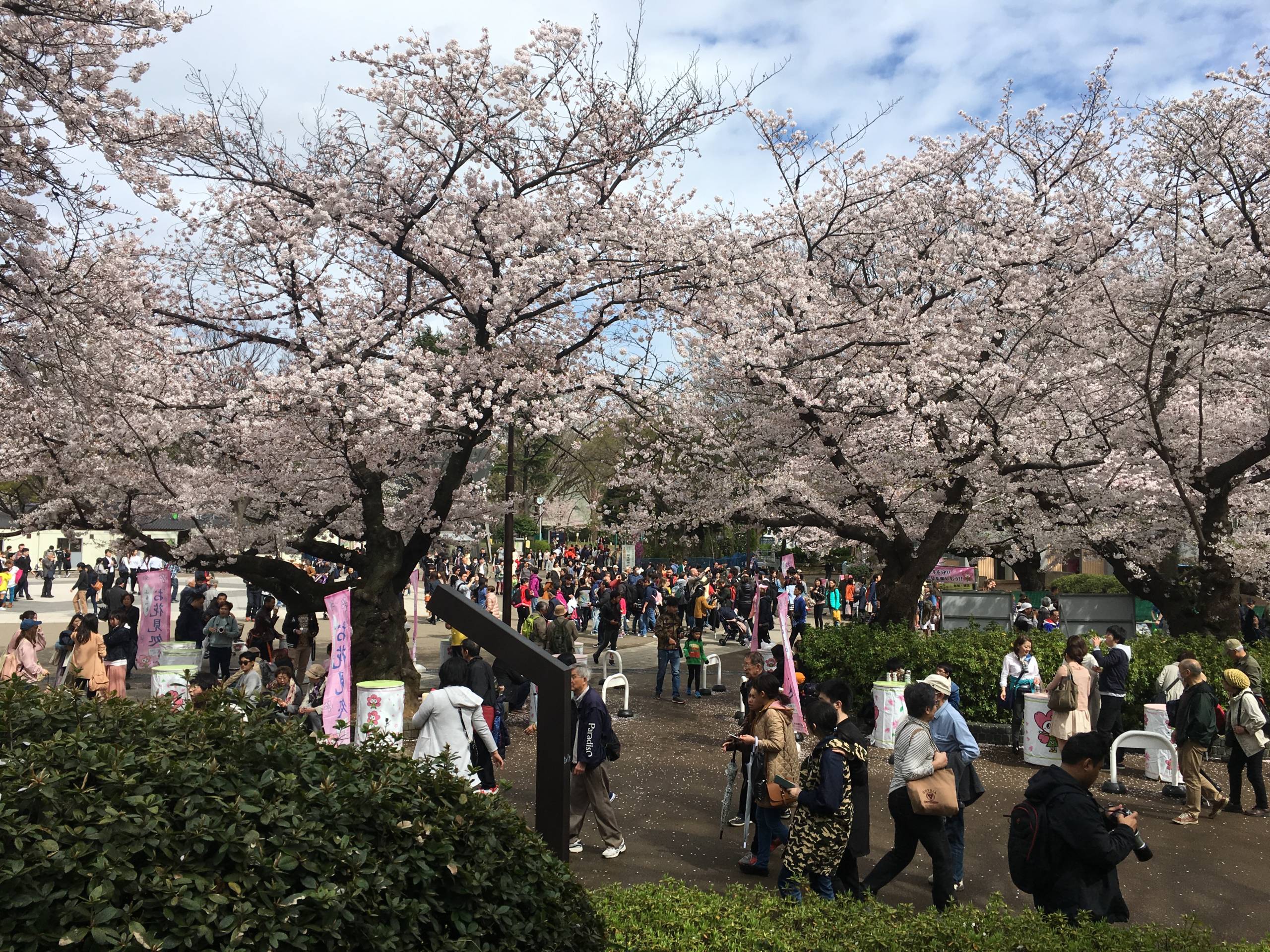
Japan reopened for visa-free tourism as of Oct. 11 .
The country had banned entry by all foreign nationals on Nov. 29, 2021, in response to the omicron variant and had been closed to tourism since 2020. It first began welcoming tourists on June 10 — but only on select tours with fixed schedules and guides.
Travelers age 18 and older who are fully vaccinated must present proof of vaccination. Unvaccinated travelers are permitted to enter Japan, but they must present a negative result of a COVID-19 PCR test taken within 72 hours of departure for Japan.
Requirements for accompanying children vary by age, with unvaccinated children age 6 to 18 required to present a negative COVID-19 PCR test taken within 72 hours while unvaccinated children under six years old not requiring a test. Details are here .
All arriving travelers must also present a completed health questionnaire. As of Nov. 1, travelers to Japan can pre-register here for airport immigration, Customs and vaccination review and use the Fast Track system at major airports throughout Japan.
The U.S. State Department's advisory for Japan is Level 1: Exercise Normal Precautions .
The landlocked Central Asian nation of Kazakhstan has reopened to Americans arriving via its international airports (visa-free for 30 days), according to the U.S. Embassy in Kazakhstan . International flights from Azerbaijan, China, South Korea, the Czech Republic, Germany and the United Arab Emirates have resumed.
A negative pre-travel COVID-19 PCR test is no longer required. The U.S. Embassy notes that travelers who enter with an elevated temperature will be isolated in a facility for infectious diseases.
The U.S. State Department's advisory for Kazakhstan is Level 2: Exercise Increased Caution . As of July 27, 2022, the U.S. Embassy in Kazakhstan advises travelers to reconsider travel to the country due to COVID-19 risk.
The U.S. Embassy in the Kyrgyz Republic says the entry ban for U.S. citizens was lifted in December 2020, but advises citizens that the country offers limited healthcare services. In the case of a COVID-19 infection, travelers might have a hard time getting the treatment they need.
Those who do visit Kyrgyzstan via airports in Bishkek, Osh and Issyk Kul no longer need to present either their original vaccine card showing full vaccination against COVID-19 or proof of a negative COVID-19 PCR test taken within 72 hours of arrival. But the U.S. Embassy still recommends carrying both since requirements are subject to change with little to no notice. U.S. citizens may now enter Kyrgyzstan from land crossings in Kazakhstan, but entering from land borders with China, Uzbekistan and Tajikistan is currently prohibited.
The U.S. State Department's advisory for Kyrgyzstan is Level 1: Exercise Normal Precautions .
As of May 9, fully vaccinated international travelers can enter Laos, but they must also apply for a visa, according to the U.S. Embassy in Laos . The CDC vaccination card is accepted as proof of vaccination. A negative PCR or antigen test is not required for entry.
The U.S. State Department's travel advisory for Laos is Level 2: Exercise Increased Caution .
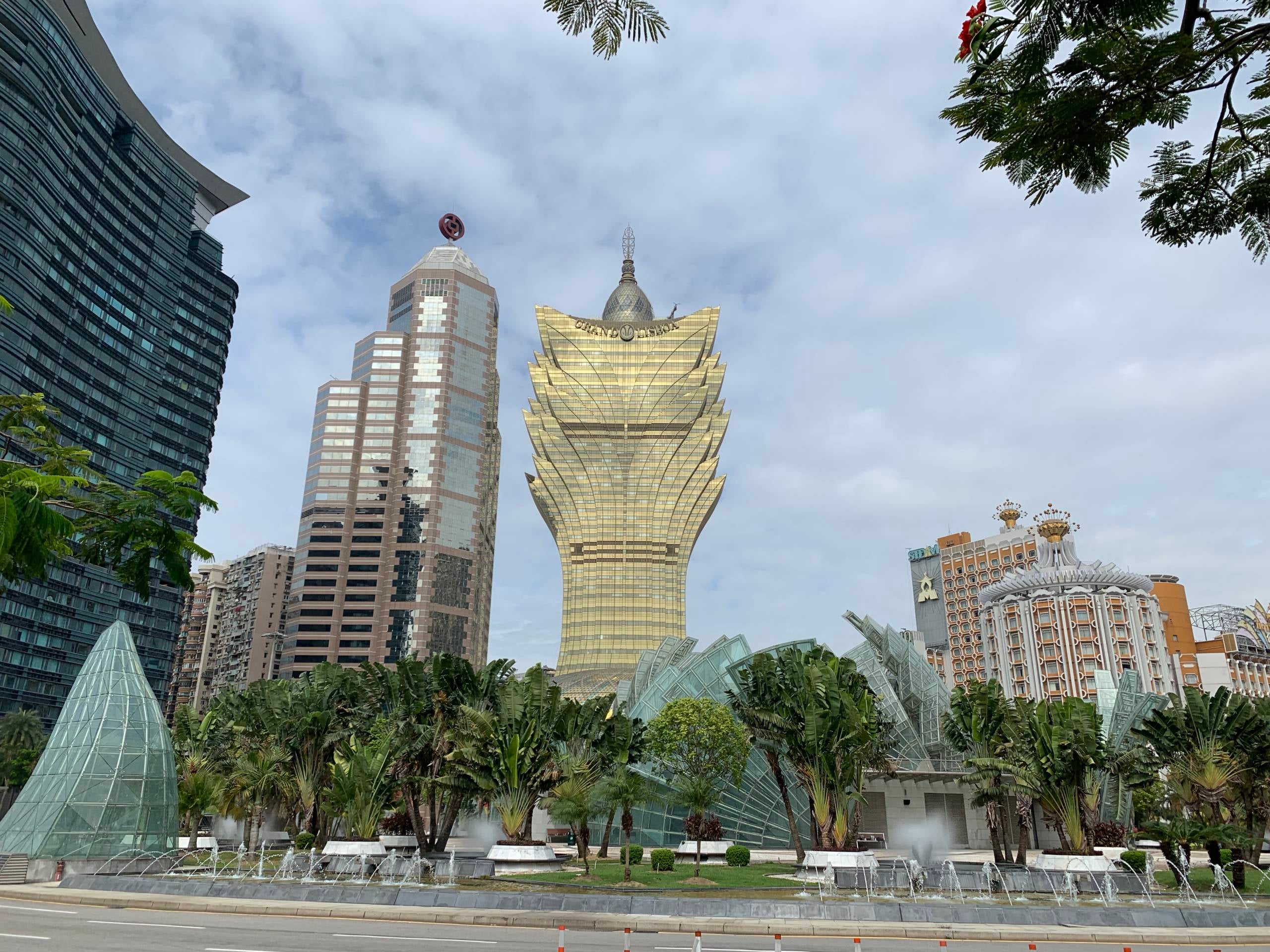
As of Sept. 1, passport holders of the U.S. and 40 other countries (including most of Europe, Canada, Australia, New Zealand, Japan, South Korea, Thailand, Malaysia and Singapore) can enter Macau without prior approval. They are, however, subject to the testing and quarantine requirements stipulated for all visitors. As of Nov. 13, travelers from beyond those previously stipulated may also enter if they fall into certain categories.
According to the U.S. Consulate General Hong Kong & Macau , travelers must present proof of a negative COVID-19 nucleic acid test (PCR) conducted within the past seven days, 48 hours or 24 hours, depending on their point of origin. Details can be found here .
See links on the U.S. Consulate General website for full details.
All outbound travelers from Macau must also test negative within seven days of departure.
The U.S. State Department's advisory for Macau is Level 3: Reconsider Travel .
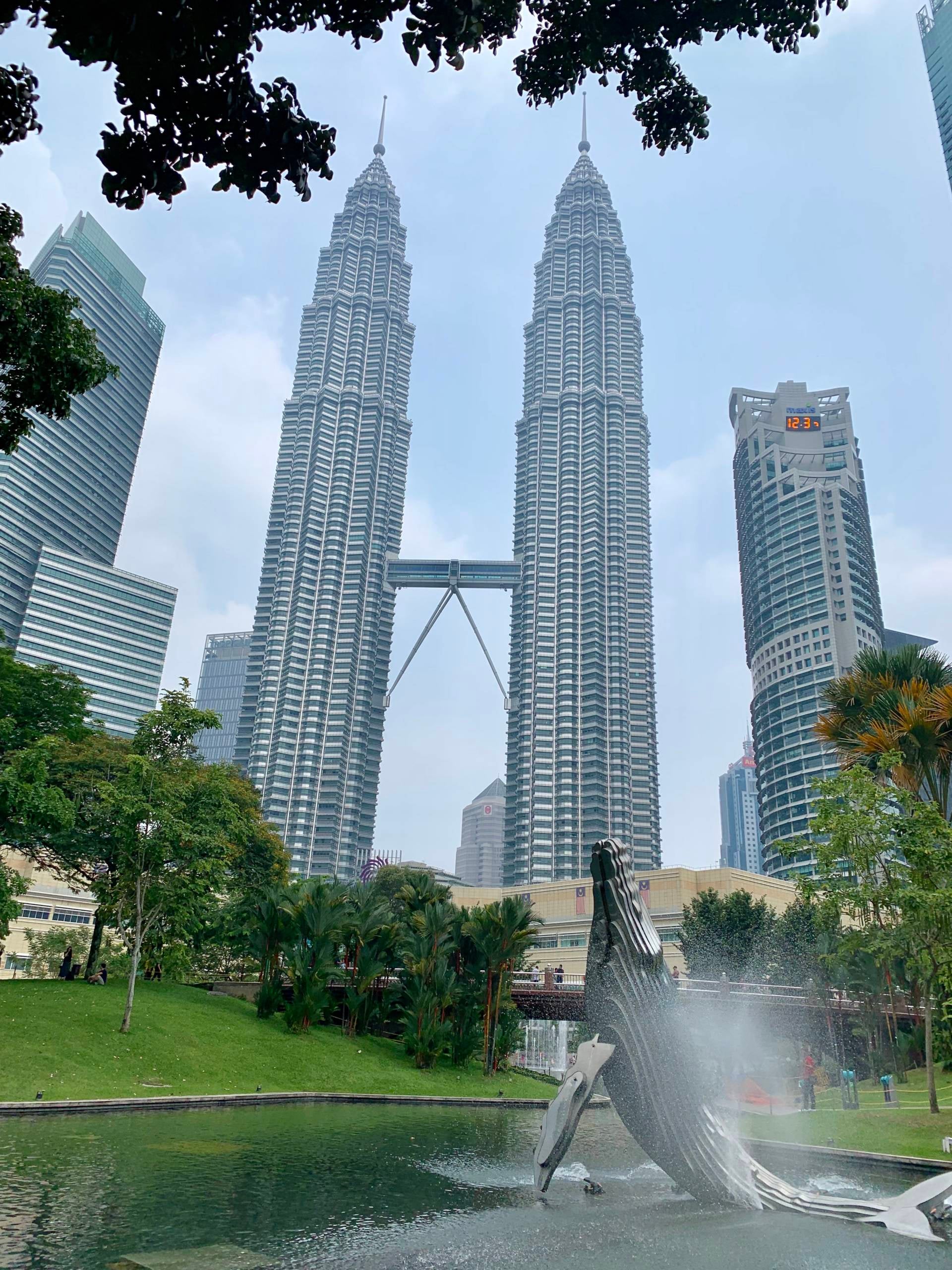
As of Aug.1, Malaysia has lifted all entry restrictions on foreign nationals, according to the U.S. Embassy in Malaysia . U.S. citizens and other non-Malaysian foreign travelers can now enter the country without proof of vaccination or a negative COVID-19 test result.
The embassy reports that arriving travelers are no longer required to download the MySejahtera app and complete the digital predeparture form, but the app should still be downloaded anyway to indicate ta traveler's risk status while in Malaysia and some businesses may ask to check the app before allowing entry.
Entry restrictions may change with little advance notice. Requirements may also vary throughout different regions of the country. The U.S. Embassy recommends checking the social media accounts of the Malaysian Ministry of Health and the Malaysian Immigration Department for the most recent updates on COVID-19 procedures.
The U.S. State Department's advisory for Malaysia is Level 1: Exercise Normal Precautions .
The Maldives
Travelers to the Maldives are no longer required to present proof of a pre-travel negative test as of March 14, when the island nation's public health emergency was revoked . However, travelers (with the exception of arriving tourists and returning residents of the Maldives) are encouraged to take a PCR test between three and five days after arrival.
Related: Where you can travel with no COVID-19 test required
According to the Maldives Immigration website, travelers do not need to be vaccinated for entry. However, all international visitors, including Americans, must still complete a traveler declaration within 72 hours prior to travel. A free 30-day tourist visa will be issued upon arrival. Further details can be found here .
If a traveler tests positive or is exposed to someone with COVID-19 while visiting the Maldives, they must complete a government-mandated quarantine at their own expense.
The latest update on resort openings can be found here .
Emirates is offering connections through Dubai from major global cities including Chicago. Etihad resumed flights from Abu Dhabi, United Arab Emirates, to the Maldives starting in July 2020. Turkish Airlines also started flights in July 2020.
Additional information can be found on the U.S. Mission to Maldives website . The U.S. State Department's advisory for the Maldives is Level 2: Exercise Increased Caution.
Mongolia lifted its restrictions on outbound and inbound travel in June 2021 and ended pre-travel testing requirements in March 2022, according to the U.S. Embassy in Mongolia .
U.S. citizens are allowed to visit, according to the U.S. Embassy, and do not need a visa for a stay of under 90 days (but for stays of more than 30 days, travelers are required to register and failure to do so will incur a fine of $100-$300). Passengers do not need to be vaccinated, but they must fill out a medical declaration form upon arrival.
The U.S. State Department's advisory for Mongolia is Level 1: Exercise Normal Precautions .
Nepal has fully reopened to tourists and as of March 10, 2022, all travelers arriving by air may now receive on-arrival visas (subject to proof of vaccination or negative test results).
According to the U.S. Embassy in Nepal , changes to restrictions and requirements can be enacted with little notice. With the March 10 changes , travelers can enter with proof of full vaccination and those who are not fully vaccinated (and older than 5 years of age) can enter by presenting proof of a negative COVID-19 PCR test taken within 72 hours of boarding their flight for Nepal.
For more information, check the Embassy of Nepal in Washington, D.C. , or Nepal's Department of Immigration .
The U.S. State Department's advisory for Nepal is Level 2: Exercise Increased Caution .
Pakistan has reopened for Americans. However, the U.S. State Department discourages travelers from visiting Pakistan at present due to terrorism and violence .
According to the U.S. Embassy , vaccinated individuals can enter Pakistan with proof of full vaccination, while unvaccinated individuals over the age of 12 must present the results of a negative PCR test taken within 72 hours of boarding their flight.
Americans wishing to travel to Pakistan will need a visa.
The U.S. State Department's advisory for Pakistan is Level 3: Reconsider Travel .
The Philippines
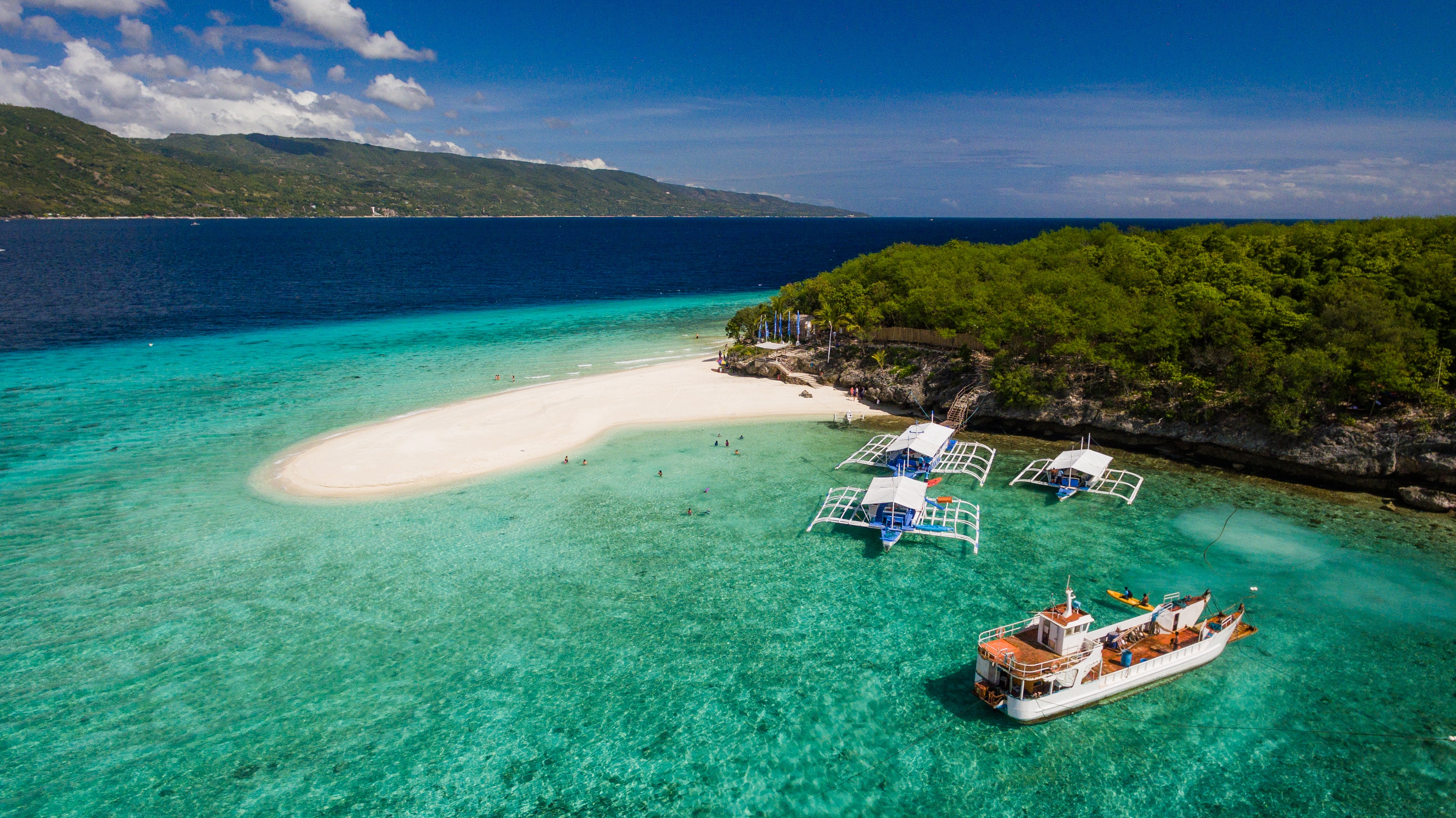
According to the U.S. Embassy in Manila , the Philippines is now granting entry to both fully vaccinated and unvaccinated visitors from countries that are permitted visa-free travel for up to 30 days, including the U.S., but when entering they must have a valid departure ticket within that time frame.
All travelers must complete a Bureau of Quarantine e-Health Declaration Card within 72 hours of travel to the Philippines to receive a QR code. Unvaccinated or partially vaccinated travelers must present proof of a negative laboratory-based rapid antigen test taken within 24 hours of departure. Travelers should also expect health screenings at ports of entry in the Philippines.
Children under the age of 15 are exempt from the vaccination or testing requirements. Details can be found here .
The U.S. State Department's advisory for the Philippines is Level 2: Exercise Increased Caution .

As of April 1, all fully vaccinated travelers (and children under 12 regardless of vaccination status) are able to enter Singapore quarantine-free via any flight. Details can be found here .
With the April 1 changes, travelers must complete an electronic SG Arrival Card and upload a digitally verifiable vaccination certificate within 72 hours of travel. Fully vaccinated adults and their accompanying children age 12 and below no longer need to provide proof of a negative predeparture COVID-19 test, but anyone age 13 and above who is unvaccinated or partially vaccinated must show proof of a negative COVID-19 PCR or antigen test taken within two days of departure for Singapore.
Travel insurance covering at least $30,000 in COVID medical and quarantine costs is required. Installing and activating Singapore's TraceTogether app is also suggested.
See the Singapore Airlines website and U.S. Embassy in Singapore website for additional information.
The U.S. State Department's advisory for Singapore is Level 1: Exercise Normal Precautions .
South Korea
As of Oct. 1, South Korea has eliminated pre-travel and post-arrival testing for all travelers, regardless of vaccination status.
However, visitors are encouraged to register their travel and health information in the Q-code system before departing for South Korea to speed the airport arrival process.
For Information on arrival protocols, check the Incheon Airport website . Additional details are available on the U.S. Embassy in the Republic of Korea website and on the Embassy of the Republic of Korea in the USA website.
The U.S. State Department's advisory is Level 1: Exercise Normal Precautions .
All travelers to Sri Lanka can visit without quarantine as of April 20, although they need to have a valid tourist visa and mandatory local health insurance ($12 for coverage for one month).
Those who are fully vaccinated no longer need to present proof of a pre-travel negative test while unvaccinated travelers must be tested in their own country and provide proof of a negative COVID-19 PCR test taken within 72 hours of their flight or a negative antigen test taken within 48 hours.
Visit the U.S. Embassy in Sri Lanka website for additional updates.
The U.S. State Department's advisory for Sri Lanka is Level 2: Exercise Increased Caution
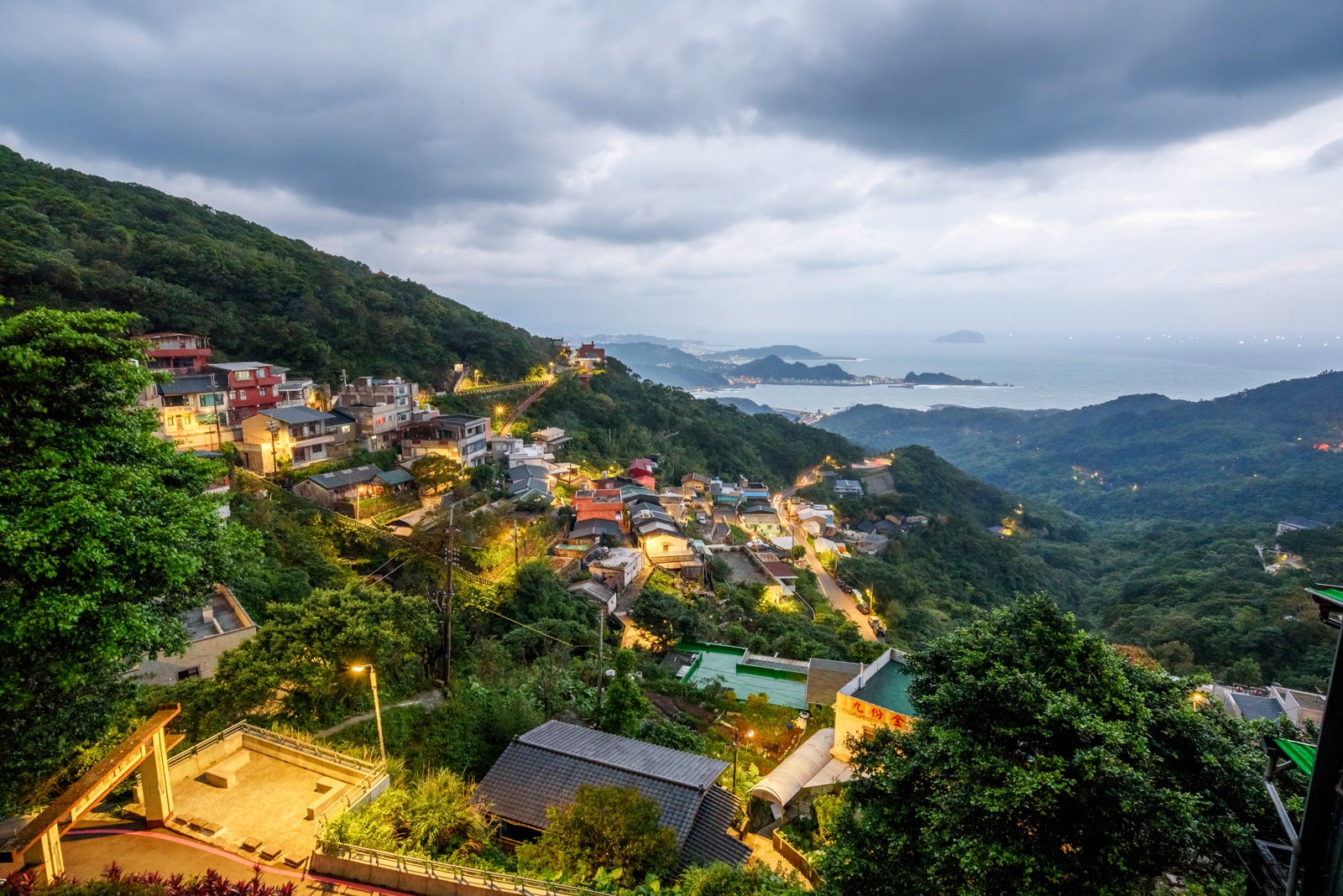
Taiwan on Sept.12 restored visa exemption for U.S passport holders and entry for Americans is now permitted.
As of Aug. 15, Taiwan has dropped the pre-travel testing requirement for entering the country. As of Oct. 13, quarantine requirements have ended but travelers must still undergo health screenings upon arrival and abide by seven days of self-initiated epidemic prevention (including staying one person per room) and use the rapid test kits given to them upon arrival as instructed.
Details can be found here . For additional information see the American Institute in Taiwan's website .
The U.S. State Department's advisory for Taiwan is Level 1: Exercise Normal Precautions .
Tajikistan never had a full lockdown, and most businesses, hotels and restaurants reopened on June 15, 2020.
According to the U.S. Embassy in Tajikistan , all Americans need a Tajik visa for entry (as well as government permission in advance if seeking to enter via a land border) and those age 3 and older must show a COVID-19 vaccination certificate or the results of a negative COVID-19 PCR test issued within 72 hours of arrival when boarding flights to Dushanbe International Airport (DYU). These test results must then be verified by Dushanbe authorities.
The U.S. Embassy also notes that access to medical care in the country may be limited and that "the Government of Tajikistan frequently adjusts its entry and exit requirements in response to the COVID-19 pandemic, and changes to the policy are not immediately made available to the public." An unexpired visa is also required to leave Tajikistan.
The U.S. State Department's travel advisory for Tajikistan is Level 2: Exercise Increased Caution .
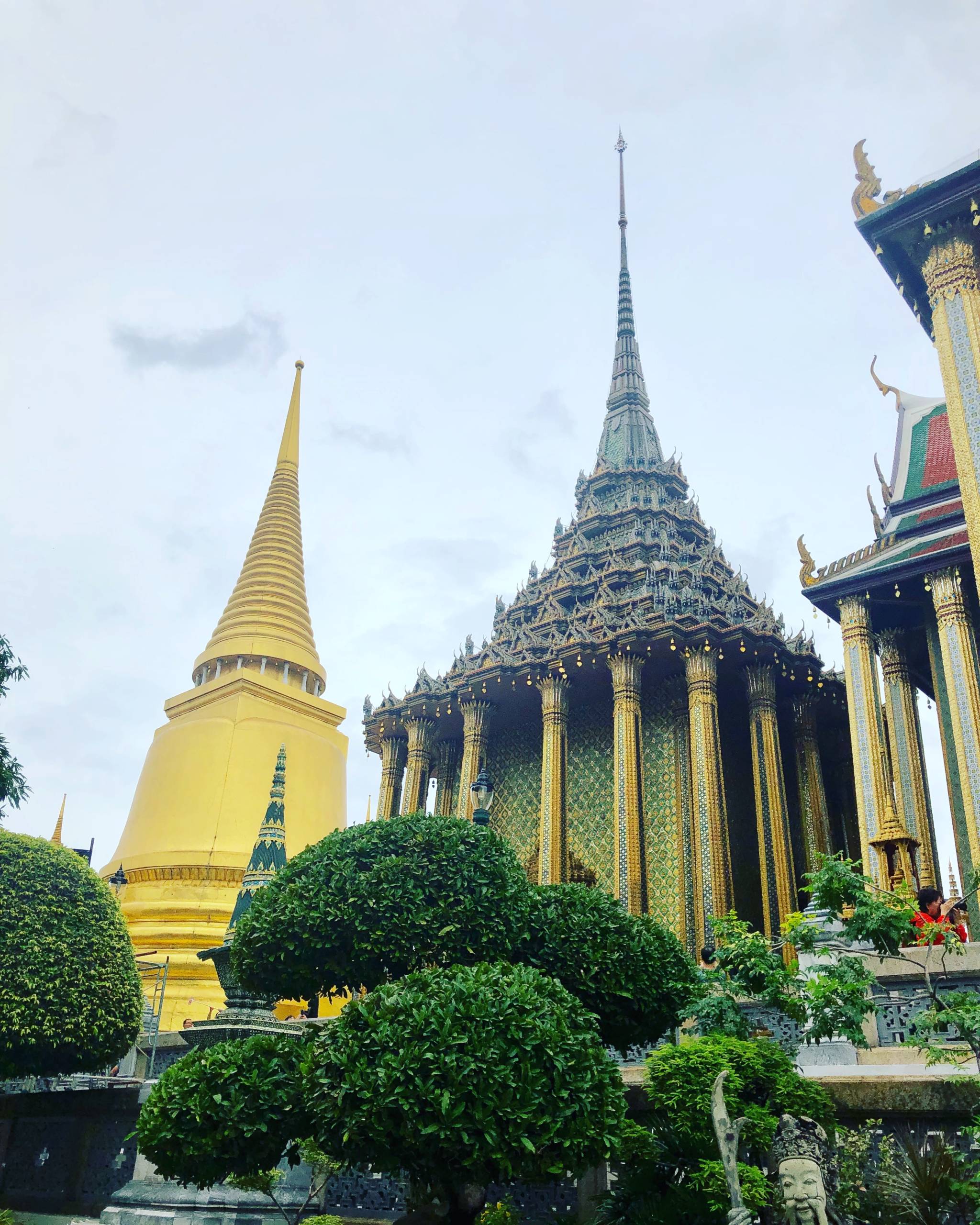
As of Oct. 1, travelers to Thailand no longer need to show proof of vaccination or a negative COVID-19 test to enter the country.
Since April 1, 2021, U.S. passport holders have also not been required to obtain a visa for a tourist visit of up to 45 days in Thailand.
For further information on visiting Thailand, check the U.S. Embassy in Thailand's website and the Royal Thai Embassy's website.
The U.S. State Department's travel advisory for Thailand is Level 1: Exercise Normal Precautions .
Turkmenistan
According to the U.S. Embassy in Turkmenistan, U.S. citizens are allowed to visit the country, but both the U.S. State Department and the CDC heavily discourage going there. Although Turkmenistan just lifted its suspension of all international flights , few commercial airlines offer flights into the country.
The government has not acknowledged any cases of COVID-19 within the borders of Turkmenistan , and the U.S. Embassy in Turkmenistan suggests that the government in Turkmenistan "may be disinclined to do so if cases were confirmed."
Any private U.S. citizen seeking to enter Turkmenistan will be required to present proof of a negative COVID-19 PCR test and a serology certificate confirming the presence of antibodies, both taken within 48 hours of departure from the U.S. or other point of origin. All travelers will also undergo a PCR test upon arrival ($44), followed by an at-home quarantine of three days. Another PCR test ($44) is required to exit quarantine.
The U.S. Embassy notes, "The government of Turkmenistan can and does change quarantine requirements and arrival procedures for private citizens with little advance notice."
U.S. State Department has issued a Level 3: Reconsider Travel advisory.
Uzbekistan is open to Americans. U.S. citizens need a visa for entry, but as of June 10, proof of vaccination or a negative COVID-19 test is no longer required for entry, according to the U.S. Embassy in Uzbekistan .
The U.S. State Department's advisory for Uzbekistan is Level 1: Exercise Normal Precautions .
On March 15, Vietnam reopened to foreign tourists after two years of widespread travel restrictions. Pre-pandemic visa-issuing policies have now resumed and all COVID-19-related mandatory quarantine requirements for new arrivals have been lifted.
As of May 15, travelers no longer have to show proof of a negative COVID-19 test to be allowed into Vietnam. Still, the U.S. Embassy in Vietnam recommends that travelers check with their airline to confirm if tests are needed for the airline or for transit to other countries.
Check with the Vietnam Embassy in the U.S. for additional information.
The U.S. State Department's advisory for Vietnam is Level 1: Exercise Normal Precautions .
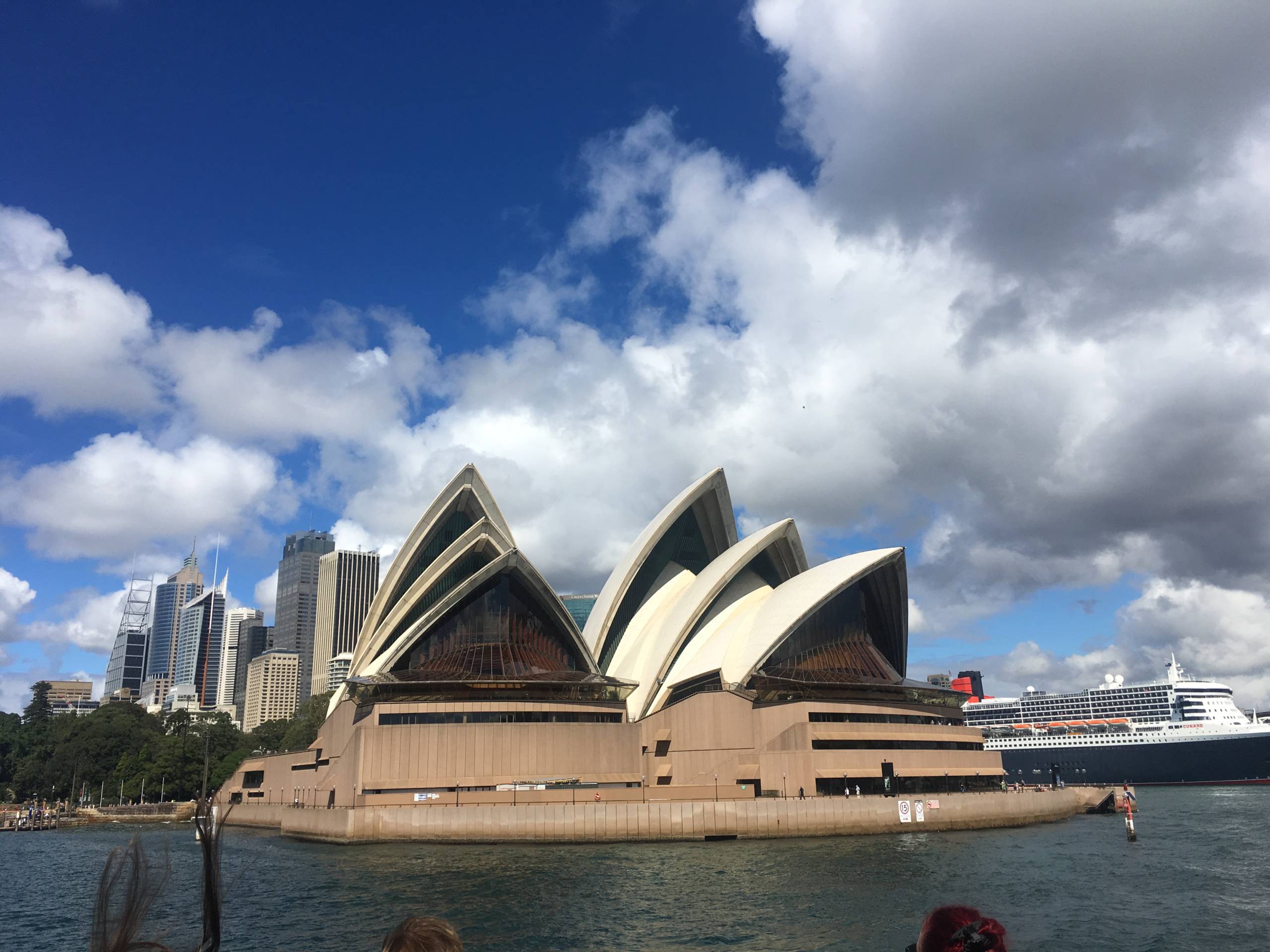
Australia had remained closed to most foreign visitors for two years, although that changed on Feb. 21, 2021, when the country finally reopened to fully vaccinated international visitors. And as of July 6, requirements for proof of vaccination or pre-travel testing have been lifted. Health screenings at ports of entry still stand. Details are here .
All international arrivals in Australia do still need to apply for an electronic visa .
Australia also reopened to cruise ships in February 2021.
Related: It's official: Australia is scrapping its pre-travel testing
Check the U.S. Embassy in Australia website for updates.
Qantas has resumed international flights between Sydney and Los Angeles, London and other cities. American, Delta and United are also offering flights from the U.S. to Australia.
The U.S. State Department's advisory for Australia is Level 1: Exercise Normal Precautions .
French Polynesia
The Islands of Tahiti are now open to all U.S. visitors, regardless of vaccination status. And since French Polynesia is an overseas territory of France, as of Aug. 1, travelers flying to Papeete from Los Angeles, San Francisco, Seattle, Noumea and Auckland no longer need to provide proof of vaccination or a negative test result or present a sworn statement.
Note: Any non-U.S. citizen flying through the U.S. to get to French Polynesia must be fully vaccinated to enter the U.S. by air.
Updates can be found here . Additional information is available on the Air Tahiti Nui website .
If you're itching to travel to French Polynesia, there are lots of options for getting there. Be sure to check out our guide on the best ways to get to Tahiti using points and miles . The destination is home to some famous hotels, such as the Conrad Bora Bora Nui and the Hilton Moorea Lagoon Resort & Spa .
The U.S. State Department's advisory for French Polynesia is Level 1: Exercise Normal Precautions.
Fiji began allowing fully vaccinated travelers from select countries, including the U.S., for tourism as of Dec. 1, 2021, after having been in strict lockdown since March 2020 with no tourism allowed for more than 18 months. Fiji reopened to fully vaccinated travelers from all countries on April 7, 2022.
To enter Fiji, fully vaccinated travelers age 16 and older need to present proof of full vaccination, but predeparture COVID-19 test requirements have been lifted. Children under age 16, when accompanied by a vaccinated adult, do not need to be vaccinated.
As of April 7, travelers do need to have travel health insurance valid for COVID-19 in Fiji.
Check for updates here and visit the U.S. Embassy in Fiji website for additional information. The U.S. State Department's advisory for Fiji is Level 1: Exercise Normal Precautions .
New Zealand
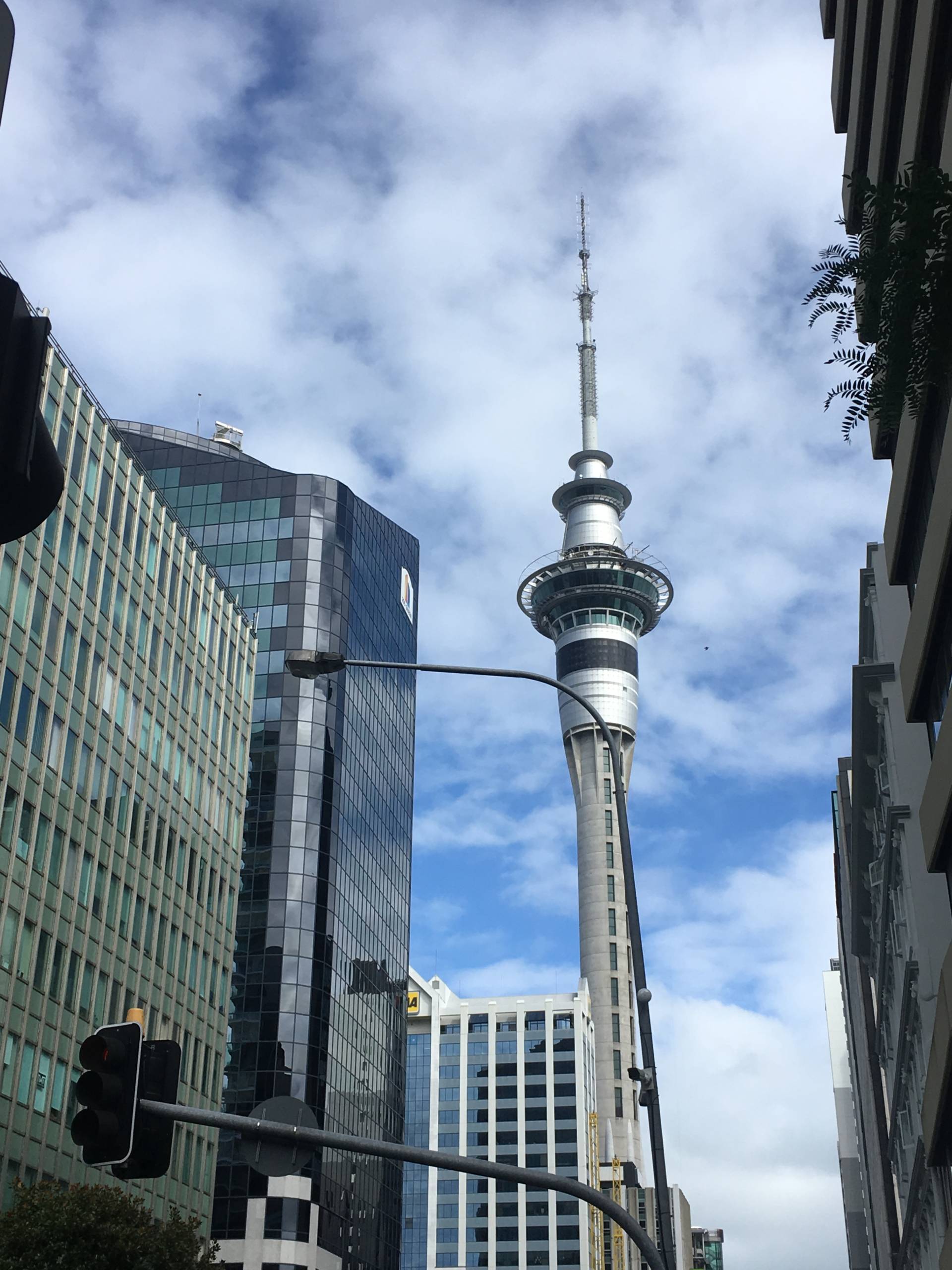
Americans who are fully vaccinated have been allowed to visit New Zealand since May 2, but as of Sept. 13 and Oct. 20, all COVID-related entry requirements, including being vaccinated, have been lifted.
However, any traveler from a visa-waiver country (including the U.S.) must obtain a New Zealand Electronic Travel Authority . Details can be found here .
The U.S. State Department's advisory for New Zealand is Level 1: Exercise Normal Precautions.
As of Aug. 1, foreign nationals are able to enter Samoa, according to the U.S. Embassy in Samoa. And since late September, there are no longer any vaccination or pre-travel testing requirements for Americans seeking to enter Samoa.
The U.S. State Department's advisory for Samoa is Level 1: Exercise Normal Precautions .
U.S. citizens can enter Tonga for tourism purposes, as of Aug. 1, according to the U.S. Embassy in Fiji, Kiribati, Nauru, Tonga, and Tuvalu .
Those who do travel to Tonga need to be fully vaccinated and present a negative rapid antigen test taken within 24 hours of arrival. Check with your airline for the most up-to-date testing requirements.
The U.S. State Department's advisory for Tonga is Level 1: Exercise Normal Precautions .
Middle East
According to the U.S. Embassy in Bahrain , U.S. travelers have been permitted to receive a visa upon arrival and enter Bahrain since Sept. 4, 2020.
As of Feb. 20, 2022, Bahrain no longer requires pre-travel testing or testing upon arrival, no matter a traveler's vaccination status. If travelers plan to go to Saudi Arabia (one Bahrain's neighboring countries) from Bahrain, however, the U.S. Embassy notes that COVID-19-related restrictions might be enforced or changed with little to no notice. The embassy discourages travelers from flying into Bahrain solely to go to Saudi Arabia.
Face masks are now optional in all indoor public spaces and indoor dining has returned to full capacity.
The U.S. State Department's travel advisory for Bahrain is Level 2: Exercise Increased Caution .
Americans had been able to visit Israel if fully vaccinated, and as of March 1, even unvaccinated travelers can enter the country .
According to the U.S. Embassy in Israel , there are no longer any COVID-19 entry requirements or restrictions for travelers. Additional information is available here .
The U.S. State Department's advisory for Israel is now indicated with individual summaries for the country's regions, with a Do Not Travel warning for Gaza.
Jordan is open to Americans, according to the U.S. Embassy in Jordan. All arriving passengers must register online before the flight, but pre-travel and arrival COVID-19 test requirements were dropped as of March 1, 2022. Passengers are encouraged to check with their airlines for specific requirements, though.
All travelers must have travel health insurance valid in Jordan and must complete their online Gateway2Jordan registration to receive a QR code to be presented upon boarding their flight.
The U.S. State Department's advisory for Jordan is Level 2: Exercise Increased Caution .
Americans can once again travel to Kuwait without the need to test or quarantine, according to the U.S. Embassy in Kuwait . Travelers seeking to enter will only be permitted in with either a valid visa or a residency permit. Electronic visas (eVisas) are available for U.S. citizens on the Ministry of Interior website.
According to the U.S. Embassy, as of May 1, proof of vaccination is no longer required to enter.
The U.S. State Department's advisory for Kuwait is Level 1: Exercise Normal Precautions .
As of March 28, registration on the Ministry of Public Health Pass platform has been canceled and travelers no longer need to show their enrollment before being permitted to board a flight bound for Lebanon.
As of March 1, fully vaccinated passengers who received their last dose of a COVID-19 vaccine (or a booster shot) within the past six months are exempt from performing a PCR test or rapid antigen test in their country of departure and from being tested upon arrival at Beirut's airport.
All unvaccinated travelers to Lebanon over the age of 12 must present a negative PCR or rapid antigen test taken within 48 hours of boarding their flight to enter the country, per the U.S. Embassy in Lebanon . All unvaccinated passengers, except those under the age of 12, are also now required to take a PCR test upon arrival at Beirut Airport and refrain from going out in public for 24 hours until receiving a negative result.
The U.S. State Department's advisory for Lebanon is Level 3: Reconsider Travel .
International flights to Oman have resumed and as of May 23, all COVID-19-related entry restrictions have been lifted, according to the U.S. Embassy in Oman . However, the embassy notes that travelers to Oman "may be requested to present a vaccination certificate indicating they have received at least 2 doses of a Sultanate-approved COVID-19 vaccine. The last dose is required to be taken at least fourteen (14) days ahead of the estimated arrival time."
The Sultanate is currently accepting the following approved vaccines: AstraZeneca, Pfizer, Moderna, Johnson & Johnson, Sinovac, Sinopharm, Sputnik V, Novavax, CanSino, Covaxin and Sputnik Lite.
The Royal Oman Police resumed all visa operations and services on Sept. 1, 2021. All travelers are also required to have travel health insurance that is valid in Oman and covers the cost of COVID-19 treatment for at least a month.
The U.S. State Department's advisory for Oman is Level 2: Exercise Increased Caution .
Qatar , which is hosting the 2022 World Cup from late November to mid-December, welcomes foreign tourists and as of Nov. 1, COVID-19-related entry measures have been dropped . Details can be found here .
U.S. citizens do not need a visa to enter Qatar for visits of up to 30 days. Check here and see the website of the U.S. Embassy in Qatar for more information.
Full details on entry requirements are available on Qatar's Ministry of Public Health website .
The U.S. State Department's advisory for Qatar is Level 1: Exercise Normal Precautions .
Saudi Arabia
Fully vaccinated and boosted Americans can travel to Saudi Arabia, and as of March 5, 2022, the country has removed all COVID-19-related testing and quarantine restrictions. According to the U.S. Embassy in Saudi Arabia , fully vaccinated travelers to the kingdom are:
- No longer required to provide proof of a negative PCR or rapid antigen test upon arrival.
- No longer required to undergo any mandatory COVID-19 quarantine upon arrival.
According to the U.S. Embassy, all persons in Saudi Arabia still need to register to show proof of vaccination via the Tawakkalna app by a Ministry of Health-approved vaccine (Pfizer, Moderna, AstraZeneca, Johnson & Johnson, Sinopharm, Sinovac, Covaxin, Sputnik and Covovax). It is used to enter all government and private establishments, as well as for public transportation and domestic air travel. All travelers must also obtain a visa and have health insurance valid in Saudi Arabia.
The U.S. State Department's advisory for the country is Level 3: Reconsider Travel.
U.S. travelers are not able to enter Syria at this time. The U.S. State Department's advisory for Syria is Level 4: Do Not Travel .
United Arab Emirates
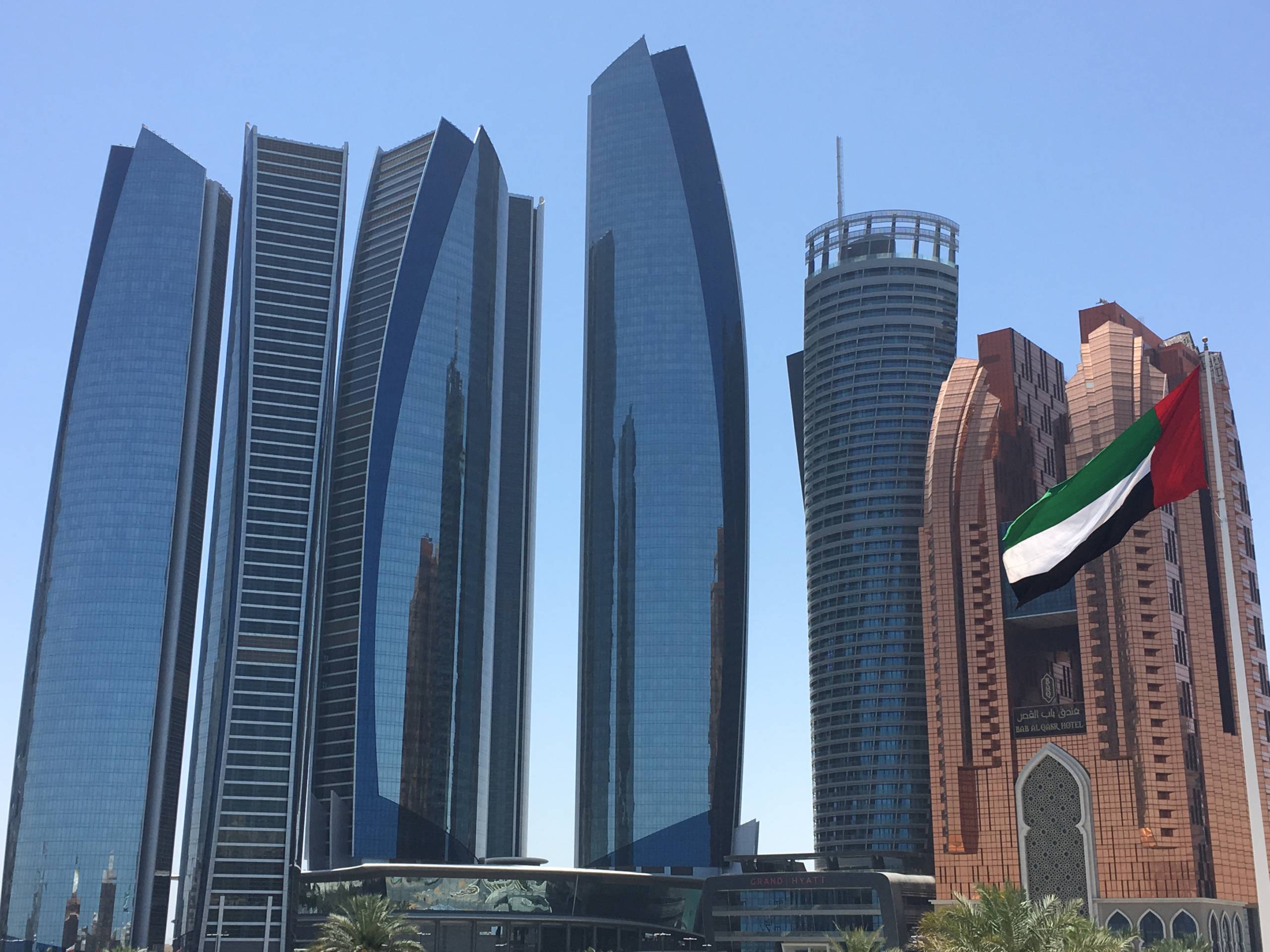
The United Arab Emirates is open to tourism and Americans are welcome — without the need to provide proof of vaccination or a negative PCR test as of Nov. 7 .
For complete information on traveling to Dubai, check the Emirates website . Details for Abu Dhabi are available here .
The U.S. State Department's advisory for the UAE is Level 3: Reconsider Travel .
The U.S. State Department has maintained a Level 4: Do Not Travel advisory for Yemen due to issues with terrorism, civil unrest, health risks, kidnapping, armed conflict and landmines. The embassy in Sanaa suspended operations in early 2015, and U.S. citizens in Yemen will not be able to rely on emergency services from the U.S. government.
All travelers entering on U.S. documents are required to have a visa from the Yemeni government before entering the country, and passports must have an additional six months of validity from the date of departure.
According to the U.S. Embassy in Botswana , as of Aug. 28, all Americans are permitted to enter Botswana without proof of COVID-19 vaccination or pre-travel testing.
The U.S. State Department's advisory for Botswana is Level 1: Exercise Normal Precautions .
Democratic Republic of Congo
The Democratic Republic of Congo reopened its borders in August 2020. It is perhaps best known for Virunga National Park, which reopened on April 1, 2021 .
According to the U.S. Embassy , as of Oct. 1, fully vaccinated travelers no longer need to present proof of a negative pre-travel COVID-19 PCR test taken within three days of travel to enter or depart the DRC.
However, all unvaccinated international travelers age 11 and older must arrive with proof of a negative COVID-19 test taken within three days of their departure to the DRC. Upon arrival, unvaccinated travelers age 11 and older must also take a second COVID-19 test at the airport. Travelers should register their information and pay for the test ($45) at inrbcovid.com before they begin their travels and must self-quarantine until they receive a negative test result, usually within 24 hours.
Americans need a visa to visit as well as a WHO card with proof of yellow fever vaccination and proof of health and medical evacuation insurance valid in the DRC.
To exit the DRC, all unvaccinated travelers age 11 and older must pay for and present proof of a negative COVID-19 test from an approved lab taken within three days of travel ($30).
The U.S. State Department's advisory for the Democratic Republic of Congo is Level 3: Reconsider Travel .

International tourism resumed in Egypt in July 2020 and the country is now open to Americans — with no restrictions to entry as of June 2022.
Americans do still need a tourist visa , available on arrival or before arrival via online enrollment . But there are no quarantine requirements and the need to present proof of a negative COVID-19 PCR or antigen test with a QR code was lifted June 17, according to the U.S. Embassy in Egypt . The latest travel advisories are also available here .
The U.S. State Department's warning is Level 3: Reconsider Travel .
Related: Dreaming of visiting Egypt
Ghana's Kotoka International Airport (ACC) reopened for regular international service on Sept. 1, 2020, and the country's land and sea borders reopened on March 28, 2022. According to the U.S. Embassy in Ghana , Americans are allowed to enter the country and all passengers arriving by air must be fully vaccinated (if age 18 or older) and fully vaccinated travelers no longer need to present proof of a negative pre-travel COVID-19 test.
The embassy notes: "All persons 18 years old and above arriving in Ghana will be required to provide evidence of full vaccination for a COVID-19 vaccine. Citizens of Ghana and foreign residents who are not fully vaccinated, will, however, need to provide a negative PCR test result no more than 48-hours old, will undergo an antigen test upon arrival in Ghana, and will be offered vaccination upon arrival. Ghana's Foreign Missions have been instructed to make vaccination a requirement for visa acquisition."
Ghana's Ministry of Public Health has ended its mandate for the use of face masks in public, but social distancing and good hand hygiene are still recommended.
The U.S. State Department's advisory for Ghana is Level 2: Exercise Increased Caution.
Kenya reopened to tourism on Aug. 1, 2020, and Americans are currently welcome to visit. According to the U.S. Embassy in Kenya, all visitors must fill out a mandatory online health form (to obtain a QR code for scanning upon arrival) and have a valid vaccination certificate. If unvaccinated and eligible to visit (and over age 5), travelers must have proof of a negative COVID-19 PCR test taken within 72 hours of departure for Kenya and then take a rapid antigen test (at a cost of $30) upon arrival.
Before travel, both vaccination and test results documents (for eligible unvaccinated visitors) must be uploaded prior to travel into the Panabios system.
All visitors also need to obtain an e-visa.
Face masks are no longer mandatory in public but are recommended in some indoor situations.
The U.S. State Department's travel advisory is now Level 2: Exercise Increased Caution .
According to the U.S. Embassy in Malawi , Americans are allowed to enter Malawi. As of June 1, travelers who can show a digital COVID-19 vaccination certificate no longer need a pre-travel PCR test to enter. With the white CDC card, however, electronic proof of a negative COVID-19 PCR test taken within 72 hours of arrival is required.
Travelers who are unvaccinated need to show a negative COVID-19 PCR test taken with 72 hours of arrival in Malawi.
All travelers must use the Trusted Traveler framework for online authentication of their vaccination or PCR test documents. Details are available here .
More information is available on the Malawi Tourism website .
The U.S. State Department's advisory for Malawi is Level 2: Exercise Increased Caution.
According to the U.S. Embassy in Mauritius , the island nation dropped its pre-travel testing requirement as of March 12 — and as of July 1, there are no longer different rules for vaccinated and unvaccinated travelers. Both groups do need to fill in Mauritius' All in One Travel Form to generate an arrival QR code.
Details of travel requirements and travel alerts for Mauritius can be found here .
The U.S. State Department's advisory for Mauritius is Level 1: Exercise Normal Precautions .
Related: Why Mauritius should be at the top of your travel to-do list
Morocco reopened to foreign visitors on Feb. 7, 2022 , reversing a ban on air travel that was instated in November of 2021.
All COVID-19-related entry requirements were lifted on Sept. 30, with the exception of the completion of a health form .
The U.S. State Department's advisory for Morocco is Level 2: Exercise Increased Caution .
According to the U.S. Embassy in Mozambique , U.S. citizens can enter Mozambique and a visa is required. Visas should be obtained in the U.S. (in New York City or Washington, D.C.) before travel to Mozambique, the embassy says, because visas upon arrival, while available for tourists, are not guaranteed.
Travelers must provide proof of full vaccination or a negative COVID-19 PCR test administered in their country of origin within 72 hours of departure. Children up to age 11 are exempt from this requirement. Travelers should expect health screenings upon arrival and there are many regulations and restrictions in effect for commercial businesses and gatherings. Masks are required in all closed spaces.
Although the government of Mozambique does not require exiting travelers to take COVID-19 tests, individual airport agents might. Travelers should check their airline's requirements ahead of time.
Currently, the U.S. State Department's advisory for Mozambique is Level 2: Exercise Increased Caution .
Namibia has been open for tourism since Sept. 1, 2020, and all COVID-19-related entry requirements have now been lifted. For further information, check the health section of the Visit Namibia website and the U.S. Embassy in Namibia .
The U.S. State Department's advisory for Namibia is Level 1: Exercise Normal Precautions .
Nigeria reopened its airports for domestic travel on July 8, 2020, and international flights resumed in August 2020. All tourists are again welcome, including Americans.
According to the U.S. Embassy in Nigeria , arriving international passengers age 18 and older must have verifiable proof of being fully vaccinated or, if unvaccinated or partially vaccinated, present proof of a negative COVID-19 PCR test taken within 48 hours of departure on the first leg of their journey. A protocol issued in September 2021 requires all international visitors to register via the Nigeria International Travel Portal and upload test results or vaccine certificates prior to travel.
In addition, all travelers who are unvaccinated or partially vaccinated are required to take additional COVID-19 PCR tests on day two and day seven after arrival (and they must register and pay for them beforehand to obtain a QR code). The U.S. Embassy in Nigeria says that travelers might face penalties if they do not comply with COVID-19 regulations while in Nigeria.
Arrival testing details can be found here .
The U.S. State Department has issued a Level 3: Reconsider Travel advisory for Nigeria.
Republic of the Congo
The Republic of the Congo, located in Central Africa between Gabon and the Democratic Republic of the Congo, is allowing U.S. travelers to visit. According to the U.S. Embassy in the Republic of the Congo , there are no longer any COVID-19-related entry restrictions for the country.
The U.S. State Department's advisory for the Republic of the Congo is Level 2: Exercise Increased Caution .
Rwanda is open to American tourists. According to the U.S. Embassy in Rwanda , COVID-19 testing is not required for entry.
Rwanda offers visas on arrival for people of all nationalities.
Visitors to Rwanda's national parks are no longer required to provide negative COVID-19 test results to enter, but must fill out a guest registration and indemnity form and submit it electronically. Details are available here .
Face masks are no longer required nationwide in public spaces, but are recommended.
The U.S. State Department's advisory for Rwanda is now Level 1: Exercise Normal Precautions.
U.S. citizens can visit Senegal. While international flights to Senegal have resumed, most land borders, with the exception of The Gambia, remain closed to tourist traffic, according to the U.S. Embassy .
The embassy also reports that proof of COVID-19 vaccination or a negative pre-travel test are no longer required for entry to Senegal.
The U.S. State Department's advisory for Senegal is Level 1: Exercise Normal Precautions .
The Seychelles began welcoming vaccinated Americans in February 2021. As of March 25, 2021, unvaccinated U.S. travelers can visit. Details can be found here .
All visitors require travel authorization via the online portal and must present valid travel and health insurance that covers, at a minimum, COVID-19-related isolation, quarantine and clinical care.
Fully vaccinated travelers (a booster dose is required for those age 18 and older if the second dose was more than six months prior) and those who have proof of having tested positive in the past two to 12 weeks no longer need to present proof of a negative pre-travel test to enter. Those who are unvaccinated must present proof of a negative COVID-19 PCR test taken within 72 hours or a rapid antigen test taken within 24 hours of their flight and upload the test results to the online portal.
Visitors may only stay at licensed establishments or liveaboards that have been certified by the Public Health Authority. They must also have travel health insurance valid for treatment in the Seychelles.
The U.S. State Department's advisory for Seychelles is Level 1: Exercise Normal Precautions . Check the U.S. Embassy website for updates.
Sierra Leone
All travelers to Sierra Leone are required to register online to receive a Sierra Leone Incoming number, according to the U.S. Embassy in Sierra Leone .
As of April 13, a pre-travel COVID-19 test or a test upon arrival is no longer required for travelers who are fully vaccinated.
Partially vaccinated or unvaccinated travelers no longer have to present proof of a negative pretest, but will be tested upon arrival and must pay the fee online when registering for their Sierra Leone Incoming number.
Proof of yellow fever vaccination is also required.
When departing Sierra Leone, an Outbound number is required for all travelers and those who are unvaccinated or partially vaccinated must present proof of a negative test taken within 48-72 hours of departure.
The U.S. State Department's travel advisory for Sierra Leone is Level 2: Exercise Increased Caution .
South Africa
South Africa reopened to tourism on Oct. 1, 2020, and as of Nov. 11, 2020, U.S. citizens can enter for tourism purposes, according to the U.S. Embassy in South Africa . As of June 22, 2022, all COVID-19-related entry requirements have been dropped; proof of vaccination or a negative test is no longer required to enter South Africa. However, all arriving travelers must fill out a health questionnaire .
Related: The 6 best ways to get to South Africa on points and miles
Details can be found here and on South African Airways' website .
The U.S. State Department's advisory for South Africa is Level 2: Exercise Increased Caution .
U.S. citizens can enter Tanzania with a vaccination certificate containing a QR code (the CDC card does not have one, but one can be accessed via the VAMS system or via Global Haven ). Vaccinated travelers do not need to take a COVID-19 test upon entry.
Tanzania currently requires all unvaccinated or partially vaccinated travelers to present a negative COVID-19 PCR test result containing a QR code and taken within 72 hours of their flight to Tanzania or Zanzibar. They may also be tested upon arrival at their own cost. ($10 in Tanzania and $25 in Zanzibar).
Related: Dreaming of Tanzania
All travelers must complete an online Health Surveillance Form within 24 hours prior to arrival to receive a unique health code. U.S. tourists need a visa to visit Tanzania. All travelers will undergo screening upon arrival.
For more information, see the U.S. Embassy in Tanzania's website .
The U.S. State Department's advisory for Tanzania is Level 2: Exercise Increased Caution .
Americans can currently travel to Uganda.
According to the U.S. Embassy , all arriving passengers must have a visa applied for online and approved by the Ugandan government and those age 6 and older must present proof of full vaccination or a negative COVID-19 PCR test from an accredited laboratory in the country of origin taken no more than 72 hours before boarding their flight for Uganda. Carrying paper copies of both vaccine certificates and test results are required.
The U.S. Embassy also notes that the government of Uganda requires that all departing passengers age 6 and older present proof of full vaccination or a negative PCR COVID-19 test taken within 72 hours of departure. This requirement is mandatory for all departing passengers out of Uganda even if the destination country does not require it.
The U.S. State Department's advisory for Uganda is Level 3: Reconsider Travel .
Zambia , home to Victoria Falls and known as a top safari destination, is open to international travelers, including Americans.
According to the U.S. Embassy in Zambia , the country requires proof of full vaccination or a negative COVID-19 PCR test taken within 72 hours of travel (travelers below age 12 are exempt). Tourists from the U.S. and certain other countries no longer need a visa, but they will be subject to health screenings (all travelers must submit a health declaration form) upon arrival and symptomatic individuals may be required to submit to testing and/or self-isolation.
The U.S. State Department's advisory for Zambia is Level 1: Exercise Normal Precautions .
Zimbabwe reopened its borders to international flights on Oct. 1, 2020, and Americans can visit for tourism. All travelers arriving and departing are required to have proof of full vaccination or a negative COVID-19 PCR test issued by a recognized facility and taken within 48 hours of their time of departure for Zimbabwe. Details are here .
A yellow fever vaccination is also required, according to the U.S. Embassy in Zimbabwe .
Travelers who have received at least three doses of a WHO-approved vaccine are exempt from mandatory wearing of face masks in public, with the exception of public transport and certain indoor spaces.
The U.S. State Department's advisory for the country is now Level 2: Exercise Increased Caution .
Additional reporting by Katherine Fan, Jordyn Fields, Jane Frye, Jacob Harrison, Donna Heiderstadt, Liz Hund, Brian Kim, Stella Shon, Caroline Tanner and Mimi Wright.
Cambodia Lifts Entry Ban on Visitors From 6 Nations
May 20th, 2020 at 9:30 AM EDT
Travel bans are beginning to slowly lift in a piecemeal fashion. Cambodia, now with a reported zero cases, will be a case study for how it goes.
Rosie Spinks
Cambodia has lifted a ban on entry of visitors from Iran, Italy, Germany, Spain, France and the United States that had been put in place to curb the spread of coronavirus, the health ministry said on Wednesday.
Despite the easing , foreign visitors would still need to have a certificate no more than 72 hours old confirming that they are not infected with the novel coronavirus and proof of $50,000 worth of health insurance while in Cambodia, the ministry said.
They also would be quarantined for 14 days after arrival at government designate place and tested for the coronavirus, a ministry statement said, but did not specify where.
“All passengers, both Cambodian and foreign, who are travelling to Cambodia, are admitted to waiting centres for the COVID-19 tests and that they are waiting for results from the Pasteur laboratory,” Health Minister Mam Bunheng said in a statement, referring to respiratory disease caused by the coronavirus.
The Health Ministry said on Saturday that the last patient with the coronavirus has recovered and left hospital, leaving the Southeast Asian country with zero cases.
Cambodia has reported 122 cases of the virus that causes COVID-19 and no deaths from the disease since it emerged in China and started spreading around the world, infecting more than 4.5 million and killing about 300,000 since January.
(Reporting by Prak Chan Thul; Editing by Kay Johnson and Christian Schmollinger)
Copyright (2020) Thomson Reuters. Click for restrictions
This article was from Reuters and was legally licensed through the NewsCred publisher network. Please direct all licensing questions to [email protected] .
The Daily Newsletter
Our daily coverage of the global travel industry. Written by editors and analysts from across Skift’s brands.
Have a confidential tip for Skift? Get in touch
Tags: cambodia , coronavirus , southeast asia , tourism , travel ban
Photo credit: Tourists in Cambodia Reuters
Text search
Covid papers ‘not needed’ upon entry to Kingdom
- 4 October 2022
- The Phnom Penh Post
- Pandemics / Public health
- COVID-19 / Travel restriction
Cambodia has apparently taken the final step towards full reopening of the country without Covid-19 restrictions by removing all requirements for inbound travellers, who until now had to show health certificates indicating that they have tested Covid-19 negative in the past 72 hours as well ...
Mom Kunthear https://www.phnompenhpost.com/national/covid-papers-not-needed-upon-entry-kingdom
Japan suspends entry of interns over Omicron concerns
- 6 December 2021
- Khmer Times
- International relations / Pandemics / Public health
Japan suspended the allowance of Cambodian interns or workers to enter to the country due to Covid-19 Omicron as major fears have been raised over this new variant, which is reported to be highly transmissible, has a higher reinfection rate and has spread to 38 ...
Yim Sreylin https://www.khmertimeskh.com/50982929/japan-suspends-entry-of-interns-over-omicron-concerns/
Travel ban lifted on passengers from 10 African countries
Following the suggestion made by Prime Minister Hun Sen last week, the Health Ministry yesterday has lifted the ban on travellers from 10 African countries or who have a history of travelling to those countries, which had been put in place over concerns after the ...
Khmer Times Staff https://www.khmertimeskh.com/50982926/travel-ban-lifted-on-passengers-from-10-african-countries/
Cambodia bans travellers from 10 African countries
- 30 November 2021
Cambodia has issued a decision banning travellers from 10 countries in Africa or who have a history of traveling to these 10 countries in the last 3 three weeks. ...
Khmer Times Staff https://www.khmertimeskh.com/50979335/cambodia-bans-travellers-from-10-african-countries/
Cambodia lifts 15 months long ban on flights from Malaysia, Philippines and Indonesia
- 25 October 2021
Cambodia has lifted the temporary flights ban from Malaysia, Philippines and Indonesia. ...
Khmer Times Staff https://www.khmertimeskh.com/50957702/cambodia-lifts-15-months-long-ban-on-flights-from-malaysia-philippines-and-indonesia/
Curfew imposed in Stung Treng province amid the first case of COVID-19
- COVID-19 / curfew / Travel restriction
Authorities in Stung Treng province have imposed a curfew in the province and shuttered restaurants and cafes for 14 days in a move to curb the spread of COVID-19. ...
Khmer Times Staff https://www.khmertimeskh.com/50849499/curfew-imposed-in-stung-treng-province-amid-the-first-case-of-covid-19/
Indian nationals barred from entering Cambodia due to COVID fears
- 28 April 2021
The Ministry of Health has announced that Indian nationals will be barred from entering Cambodia until further notice, due to concerns over the extent of the COVID-19 crisis in India ...
Khmer Times Staff https://www.khmertimeskh.com/50846653/indian-nationals-barred-from-entering-cambodia-due-to-covid-fears/
Gov’t imposes inter-province travel ban ahead of New Year
- 7 April 2021
The government has imposed inter-provincial travel ban from April 7-20 in a bid to contain the spread of Covid-19. However, Phnom Penh and neighbouring Kandal province are treated as one administrative region, so travel between them can continue. ...
Gov’t imposes inter-province travel ban ahead of New Year Mom Kunthear https://www.phnompenhpost.com/national/govt-imposes-inter-province-travel-ban-ahead-new-year
US Embassy in Cambodia issues alert on restrictions on travel between provinces
- 18 March 2021
- COVID-19 / Travel restriction / U.S embassy in Cambodia
According to media reports, the Cambodian government has given provincial administrations authority to implement restrictions on travel between provinces in response to the current COVID-19 outbreak. ...
Khmer Times Staff https://www.khmertimeskh.com/50826538/us-embassy-in-cambodia-issues-alert-on-restrictions-on-travel-between-provinces/
Provinces tighten travel restrictions
- 15 March 2021
Authorities in some provinces have restricted entry at their borders by setting up checkpoints and requiring travellers suspected of any exposure to persons or places linked to the February 20 community outbreak of Covid-19 to quarantine for 14 days. ...
Long Kimmarita https://www.phnompenhpost.com/national/provinces-tighten-travel-restrictions
Flights from Philippines banned as 13 infected fly in from Manila
- 13 August 2020
The government, advised by the Ministry of Health, has issued an official statement announcing the temporary suspension of flights from the Philippines, effective from Thursday ...
Khann Chan Virak https://www.khmertimeskh.com/50753943/flights-from-philippines-banned-as-13-infected-fly-in-from-manila/
Cambodian government agrees in principle to waive $50,000 insurance policy and $3,000 deposit for incoming travelers
- 23 July 2020
Prime Minister Hun Sen has approved in principle to eliminate the $3,000 deposit, and $50,000 insurance for investors, business people and experts. ...
Sok Chan https://www.khmertimeskh.com/50747552/cambodian-government-agrees-in-principle-to-waive-50000-insurance-policy-and-3000-deposit-for-incoming-travelers/
Anti-virus measures in place
- 21 May 2020
The government yesterday announced the lifting of the entry ban on people from six countries, more than two months after it was put in place to prevent imported virus cases from entering Cambodia. ...
Ben Sokhean https://www.khmertimeskh.com/50725246/anti-virus-measures-in-place/
Government lifts travel ban for people from six countries
The government announced the lifting of the travel ban for people from six countries but they need health certificates issued by their individual country to confirm they are free of coronavirus. ...
Ben Sokhean https://www.khmertimeskh.com/725131/government-lifts-travel-ban-for-people-from-six-countries/
Government lifts travel ban after KNY
- 17 April 2020
Prime Minister Hun Sen yesterday lifted an inter-provincial travel ban across the Kingdom to ease traffic jams after the Khmer New Year holidays came to an end. ...
Ben Sokhean https://www.khmertimeskh.com/50714182/government-lifts-travel-ban-after-kny/
Government imposes seven days travel restriction
- 10 April 2020
- Government / Public health
Prime Minister Hun Sen yesterday issued an order for a week-long ban on all travel across the country from one district to another in a move to stem the spread of the coronavirus pandemic in the Kingdom. ...
Ben Sokhean https://www.khmertimeskh.com/50711454/government-imposes-seven-days-travel-restriction/

- Ask Question
- Report Problem
- Send Feedback
- Submit Resources
Do you have questions on the content published by Open Development Cambodia (ODC)? We will gladly help you.
Have you found a technical problem or issue on the Open Development Cambodia (ODC) website?
Do you have a new idea that could help transform the Open Development Cambodia (ODC) website? We will be glad to hear it.
Tell us how we're doing.
Do you have resources that could help expand the Open Development Cambodia (ODC) website? We will review any map data, laws, articles, and documents that we do not yet have and see if we can implement them into our site. Please make sure the resources are in the public domain or fall under a Creative Commons license.
Disclaimer: Open Development Cambodia (ODC) will thoroughly review all submitted resources for integrity and relevancy before the resources are hosted. All hosted resources will be in the public domain, or licensed under Creative Commons. We thank you for your support.
Thank you for taking the time to get in contact!
Opinion Trade pact would be a bonanza for Africa — if it can be made to work
The AfCFTA goes a long way toward fulfilling the dream of a united continent.

The United States, Mexico and Canada trade with one another under a pact that replaced the long-standing North American Free Trade Agreement, or NAFTA. The Europeans have their single market and common currency. Southeast Asian countries have a free-trade agreement. And 11 Pacific Rim countries have formed their own free-trade group with the unwieldy acronym CPTPP.
But what stands to be the behemoth of global trade pacts is one you’ve probably not heard of: the African Continental Free Trade Area , or AfCFTA.
Its scope is enormous, comprising 54 countries, 1.3 billion people and a combined gross domestic product of $3.4 trillion. It covers a geographic area three times that of the United States — big enough to cover the United States, China, India and much of Western Europe combined.
And its ambition is breathtaking. It aims, in the next decade, to lift 30 million to 50 million Africans out of extreme poverty and boost incomes across the continent by $450 billion, a 7 percent gain. The AfCFTA was first agreed to in 2018 , launched in 2021 and, in January, South Africa made the first shipment under the pact, sending refrigerators and freezers to Kenya .
If successfully carried out — the big “if” — it would go a long way toward fulfilling the dream of early pan-African leaders such as Ghana’s Kwame Nkrumah , who warned his fellow Africans at the dawn of independence: “ We must unite now or perish .”
For a continent often seen to be at war with itself, a free-trade agreement would be a game changer.
In economically successful regions — North America, Europe, Asia — countries trade primarily with one another. That’s far from the case in Africa. Only about 13 percent of Africa’s trade is within Africa. (By contrast, Europe’s internal trade is around 60 percent.) African countries trade far more with Europe and, increasingly, with China than with one another.
But can Africa’s new trade agreement really transform the continent? Lessons from elsewhere are instructional, and give rise to caution alongside some optimism.
The first lesson is that it takes time before trade pacts are fully in place and the results become apparent. Europe’s first attempt at economic integration was something called the Coal and Steel Community , launched in 1952, well before I was born. It was 50 years later that I wrote about the final rollout of the euro to replace national currencies and the painstaking negotiations over the Treaty of Nice, which enabled the European Union to allow Eastern European nations to join.
The Southeast Asian bloc, known as the Association of Southeast Asian Nations, or ASEAN, likewise took decades to become fully formed and functional; it’s still a work in progress.
None of the world’s existing trade agreements eliminate tariffs entirely, or cover 100 percent of products. Countries are always fighting to keep exemptions for national products they want protected or consider “sensitive” — for instance, tropical fruits, coffee and rice in Southeast Asia.
Enforcing open trading rules is another challenge, requiring heightened customs controls and inspection regimes at porous borders where smuggling is rife.
Perhaps the biggest obstacle for African countries is their dismal infrastructure. The former colonial powers typically built only enough infrastructure to ship Africa’s natural resources from the nearest port to London, Paris, Brussels or Lisbon. They rarely built roads, railways or bridges to connect African countries to one another.
Nkrumah, who was leader of Ghana from 1957 to 1966, wrote in a 1963 essay titled “Why Africa Must Unite,” “Our few and negligible roads and railways lead, ultimately, to some port. In a sense they have become symbols of our economic subservience and our dependence on trade outside the African continent.” More than 60 years later, his lament remains depressingly accurate.
Also, African countries have reached various levels of development, from regional economic giants such as Nigeria, South Africa and Kenya to some of the poorest countries on Earth, including South Sudan, Burundi and Niger. I have reported on how difficult it has been for the E.U. to absorb the poorer countries of Eastern Europe , and ASEAN’s difficulties adding Cambodia, Laos and Myanmar to its bloc. The challenge for Africa looks even greater.
Creating a free-trade area typically goes hand in hand with easing travel restrictions, since businesspeople need to move freely across borders. In Africa, this is already starting to happen. Kenya, Rwanda, Gambia, Benin and Seychelles now allow visa-free entry to all Africans . South Africa dropped visa requirements for a host of African countries. And the eight-nation East African Community allows borderless travel for its members.
The easy movement of people has turned Nairobi’s run-down Eastleigh neighborhood into a vibrant commercial center filled with Somali traders hawking goods ranging from cheap clothing to Chinese-made cellphones to gold jewelry. And Eastleigh’s shiny new BBS Mall is filled with Somali-owned shops. But locals are now concerned about crime and potential infiltration by al-Shabab terrorists.
Similarly, South Africans complain bitterly about migrants from Nigeria, Malawi, Zimbabwe and Somalia arriving illegally to take their jobs. Some populist South African politicians have accused the ruling African National Congress of having an “open border policy.”
For all these reasons, it will probably take years, if not decades, for the AfCFTA to be fully put in place. Once in force, though, the pact could increase the flow of internal trade and regularize standards and regulations across the continent, making it easier for outsiders — including U.S. firms — to do business. And it could give Africa a unified voice in negotiating on the global stage.
The AfCFTA remains a far cry from a United States of Africa. But it can put Africa on a path to greater prosperity. On a continent awash in bad news, that’s something to cheer about.


IMAGES
VIDEO
COMMENTS
There is no required Covid-19 testing on arrival. All travelers to Cambodia will be required to either : a) present a hard copy of a vaccination record showing that they have received a complete vaccination schedule (booster not required). b) have a pre-booked quarantine hotel or $2000 in cash to pay for a 14-day quarantine hotel.
the new travel conditions and the implementation of health and tourism safety measures for travellers entering cambodia in the context of "a new normal" . 17 Permission for fully vaccinated tourists and travelers entering to the Kingdom of Cambodia without quarantine.
Heng Chivoan. Cambodia has apparently taken the final step towards full reopening of the country without Covid-19 restrictions by removing all requirements for inbound travellers, who until now had to show health certificates indicating that they have tested Covid-19 negative in the past 72 hours as well as showing their vaccination cards ...
Cambodia Entry Requirements. On June 10, authorities announced a requirement that all foreign travelers entering Cambodia pay a deposit of $3,000 upon arrival at airport s for mandatory COVID-19 testing and potential treatment services. On June 8, authorities released a fee schedule for these testing and treatment services.
Country-Specific Information. According to the Ministry of Health authorities, as of May 9, 2023, Cambodia has had a total of 138,736 confirmed cases of COVID-19, and 3,056 deaths since the onset of the pandemic in early 2020. The U.S. Embassy encourages Americans to adhere to all requirements and to check this page regularly for updates.
Cambodia has announced that it will lift quarantine requirements for unvaccinated or not fully vaccinated inbound travelers, but they will be required to undergo a rapid antigen test upon their ...
Cambodia lifts entry ban on travelers from several African countries as of Dec. 6. Other COVID-19 measures remain in effect.
Meanwhile the number of new COVID-19 cases in the country remains small while the vaccination campaign continues PHNOM PENH--Cambodia has removed travel restrictions on passengers coming from three Southeast Asian countries as the authorities are gearing up to relaunch the economy In a state
COVID-19: Cambodia lifts entry requirements. Foreigners who enter Cambodia are no longer required to show a health declaration or COVID-19 vaccination certificate upon arrival at land, sea and air entrances from October 3, reported the country's Health Ministry. The ministry required keeping remote temperature checkers at the entry and exit ...
Cambodia to lift quarantine requirements for unvaccinated international travelers from July 11. Eased domestic COVID-19 measures in place.
CAMBODIA - Cambodia Lifts Entry Requirements for International Travelers. October 3, 2022 October 4, 2022. After easing COVID-19 travel restrictions earlier this year, Cambodia has lifted even more of its requirements for international travelers. This news comes just a few days after Thailand ended the remainder of its COVID-19 restrictions.
Cambodia on Wednesday lifted its travel ban on six countries, including the United States, nearly two months after the government first imposed restrictions on incoming travel due to concerns of the spread of COVID-19. The six countries listed in the ministry's statement released on May 20, 2020, are the United States, France, Germany, Italy ...
Cambodia - Level 1: Exercise Normal Precautions. O C. Reissued with obsolete COVID-19 page links removed. Exercise normal precautions in Cambodia. Some areas have increased risks. Read the entire Travel Advisory. Exercise increased precautions in: Phnom Penh due to crime. Very remote areas of Battambang, Banteay Meanchey, Pursat, Siem Reap ...
Cambodia, Southeast Asia's favourite amongst travellers, lifts travel restrictions and is welcoming tourists back after containing the Coronavirus spread. Advertisement By: Priyanka Chakrabarti Published: May 21, 2020 11:12 AM IST
Call us in Washington, D.C. at 1-888-407-4747 (toll-free in the United States and Canada) or 1-202-501-4444 (from all other countries) from 8:00 a.m. to 8:00 p.m., Eastern Standard Time, Monday through Friday (except U.S. federal holidays). See the State Department's travel website for the Worldwide Caution and Travel Advisories.
The criminal activity includes employment scams, drug and human trafficking. During your trip: exercise a high degree of caution at all times. avoid walking alone after dark. report any criminal incidents to the local police of the jurisdiction, before leaving Cambodia.
The government yesterday informed Vietnam regarding its decision to lift the ban on cross-border movement via borders shared with the country but said prevention guidelines remain in place to mitigate risks of coronavirus transmission. ...
Mother Nature Cambodia Blocked from Traveling to Accept the Right Livelihood Award. The Cambodian Government should reverse travel restrictions on three representatives of Mother Nature Cambodia so they can accept the Right Livelihood Award in Stockholm, Climate Rights International said today. On September 28, 2023, Right Livelihood announced ...
Mongolia lifted its restrictions on outbound and inbound travel in June 2021 and ended pre-travel testing requirements in March 2022, according to the U.S. Embassy in Mongolia. U.S. citizens are allowed to visit, according to the U.S. Embassy, and do not need a visa for a stay of under 90 days (but for stays of more than 30 days, travelers are ...
Rosie Spinks. Cambodia has lifted a ban on entry of visitors from Iran, Italy, Germany, Spain, France and the United States that had been put in place to curb the spread of coronavirus, the health ...
How to apply: Apply at the border/checkpoint (during your journey by bus or plane you will be given the entry form to fill out). Cost: approx. $30USD + processing charge. (Subject to change.) What do you need to apply? A passport with at least six months validity from the intended period of stay in Cambodia.
Cambodia lifts 15 months long ban on flights from Malaysia, Philippines and Indonesia 25 October 2021 ... According to media reports, the Cambodian government has given provincial administrations authority to implement restrictions on travel between provinces in response to the current COVID-19 outbreak. ...
Cambodia lifts cross-border travel restrictions with Vietnam. A file photo of Cambodians leaving for Vietnam before the countries banned cross-border travel in a bid to stem the spread of COVID-19. Swift News Daily. The government yesterday informed Vietnam regarding its decision to lift the ban on cross-border movement via borders shared with ...
Creating a free-trade area typically goes hand in hand with easing travel restrictions, since businesspeople need to move freely across borders. In Africa, this is already starting to happen.